Strong Mid- to High-end Hungarian Hotel Pipeline
Hungary, and the region, is again seen as an increasingly attractive tourism and business destination. Guest nights have been on an upward trajectory; however, they are still below pre-pandemic levels, with the market negatively impacted by war and costs. 10
‘Revenge’ no Longer Needed as an Excuse to Travel
Travel-crazed Hungarians just won’t stop exploring, with early bookings through the roof against the economic odds. The Budapest Business Journal looks at the drivers of outbound tourism with a seasoned expert. 12
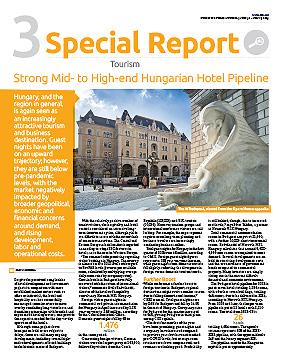
Commitment and Ambition
SOCIALITE
Rare Chance to see Rock ‘n’ Roll Legend Iggy Pop in Hungary
On July 30, rock and roll icon Iggy Pop will play Veszprém’s newly opened pop-up venue Factory’ard CulturePark. He appears with his band as part of the VeszprémBalaton 2023 European Capital of Culture
Pessimistic Forecast From Think-Tank
The Hungarian economy will shrink by 0.5% this year, according to the latest forecast by economic think-tank GKI, a much worse prediction than the government’s expectation of a 1.5% increase. 3
Having grown over the last two decades from humble start-up to robust international corporation, Gloster Group now says it is making strategic moves to expand its footprint. 7

MOL Campus Aims to Lure Employees Back to the Office
MOL Campus, the tallest building in Budapest at 143 meters, is positioning itself as the office of the future, offering innovative and attractive workspaces designed to entice employees back from the home office era. 8
program. 30
NEWS
HUNGARY’S PRACTICAL BUSINESS BI-WEEKLY SINCE 1992 | WWW.BUDAPESTBUSINESSJOURNAL.COM
Tourism SPECIAL REPORT INSIDE THIS ISSUE BUSINESS
HUF 2,100 | EUR 5 | USD 6 | GBP 4 VOL. 31. NUMBER 13 | JUNE 30 – JULY 13, 2023
SPECIAL REPORT
Photo by Márton Pribék.
EDITOR-IN-CHIEF: Robin Marshall
EDITORIAL CONTRIBUTORS: Balázs Barabás, Zsófia Czifra, Kester Eddy, Bence Gaál, Gergely Herpai, David Holzer, Gary J. Morrell, Nicholas Pongratz.
LISTS: BBJ Research (research@bbj.hu)

NEWS AND PRESS RELEASES: Should be submitted in English to news@bbj.hu
LAYOUT: Zsolt Pataki
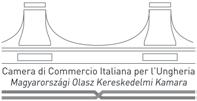
PUBLISHER: Business Publishing Services Kft.


CEO: Tamás Botka
ADVERTISING: AMS Services Kft.
CEO: Balázs Román
SALES: sales@bbj.hu
CIRCULATION AND SUBSCRIPTIONS: circulation@bbj.hu
Address: Madách Trade Center 1075 Budapest, Madách Imre út 13-14, Building B, 7th floor. Telephone +36 (1) 398-0344, Fax +36 (1) 398-0345, www.bbj.hu
What We Stand For: The Budapest Business Journal aspires to be the most trusted newspaper in Hungary. We believe that managers should work on behalf of their shareholders. We believe that among the most important contributions a government can make to society is improving the business and investment climate so that its citizens may realize their full potential.
The Budapest Business Journal, HU ISSN 1216-7304, is published bi-weekly on Friday, registration No. 0109069462. It is distributed by HungaroPress. Reproduction or use without permission of editorial or graphic content in any manner is prohibited. ©2017
BUSINESS MEDIA SERVICES LLC with all rights reserved.
IN PRAISE OF THE TOURIST DOLLAR
When it comes to the Hungarian economy, tourism is big business. According to no less a figure than Kam Jandu, the CEO of Budapest Airport, the company that runs Ferenc Liszt International, it accounts for “approximately 13%” of the country’s gross domestic product. I assume that figure includes both direct and indirect contributions, but even so, it is an impressive amount. Website statista.com says, “Hungary’s revenue from travel and tourism is expected to reach USD 1,555 million in 2023.”
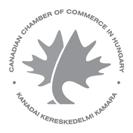
According to the same source, more than 46 million tourist trips were made to Hungary in 2022, of which almost 13 million were overnight. Most tourists came from Slovakia and Romania: 9.2 million and 7.5 million, respectively. International tourists visiting Hungary spent HUF 2.3 trillion in 2022, Statista says, a significant increase compared to the preceding years, which set a low bar as they were severely affected by the COVID-19 pandemic. Accommodation and restaurants accounted for approximately one-third of the spending, followed by shopping and wellness-related expenditure.
it none-the-less: It was my gateway to Hungary when I came here for the first time on January 5, 1998, back when it was still called Ferihegy.

It had a facelift in 2005 when it was used for low-cost carriers and presumably will be given something rather grander now, as Jandu estimates the reopening involves a cost “of more than EUR 120 million.” He says work could start “immediately” once the planning permissions are granted. There’s an even more grand scheme in mind, mind you: Budapest Airport hopes to open Terminal 3 in 2030, a project “that can be expected to cost more than EUR 1.5 bln.” The need is clear. By next year the airport expects to be back to pre-pandemic numbers of passengers, and there is a limit to how many can be accommodated in Terminal 2A and 2B. Currently, it handles 15-16 million. Terminal 1 could add 4.5-5 million. But Jandu has big dreams, as you will discover inside.
VISIT US ONLINE: WWW.BBJ.HU

Why Support the BBJ?
• Independence. The BBJ’s journalism is dedicated to reporting fact, not politics, and isn’t reliant on advertising from the government of the day, whoever that might be.
• Community Building. Whether it is the Budapest Business Journal itself, the Expat CEO award, the Expat CEO gala, the Top Expat CEOs in Hungary publication, or the new Expat CEO Boardroom meeting, we are serious about doing our part to bind this community together.
• Value Creation. We have a nearly 30-year history of supporting the development of diversity and sustainability in Hungary’s economy. The fact that we have been a trusted business voice for so long, indeed we were the first English-language publication when we launched back on November 9, 1992, itself has value.
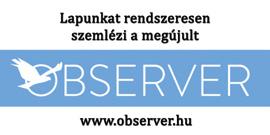
• Crisis Management. We have all lived through a once-in-a-century pandemic. But we also face an existential threat through climate change and operate in a period where disruptive technologies offer threats and opportunities. Now, more than ever, factual business reporting is vital to good decision-making.
For more information visit budapestbusinessjournal.com
No wonder, then, that the airport has plans to bring back Terminal 1, mothballed since the collapse of the Hungarian national flag carrier, Malév, back in February 2012. I didn’t particularly like the old Terminal 1 (in my memory, it was full of dark wood paneling and quite depressing if you were that way inclined), but I have a soft spot for
We also cast our eyes over the hotel scene, and not least the moves to make Budapest more attractive as a destination for the luxury market, and talk to both newcomers and veteran watchers of the sector. One thing is clear; for all that residents may complain about the tourists that throng our streets, Budapest is a place worthy of discovery and which people are increasingly keen to experience. And frankly put, the economy could not afford to go without them.
Robin Marshall Editor-in-chief
THEN & NOW
In the color photo, children are seen arriving at the official opening of the summer Elizabeth Camp in Zánka (147 km southwest of Budapest by road, on the northern shore of Lake Balaton) on June 27. Some 130,000 children are expected to attend the summer camp program this year. In the black-and-white picture from the Fortepan public archive, children wander around what was then known as the “Pioneers’ Town” site in Zánka 1979.
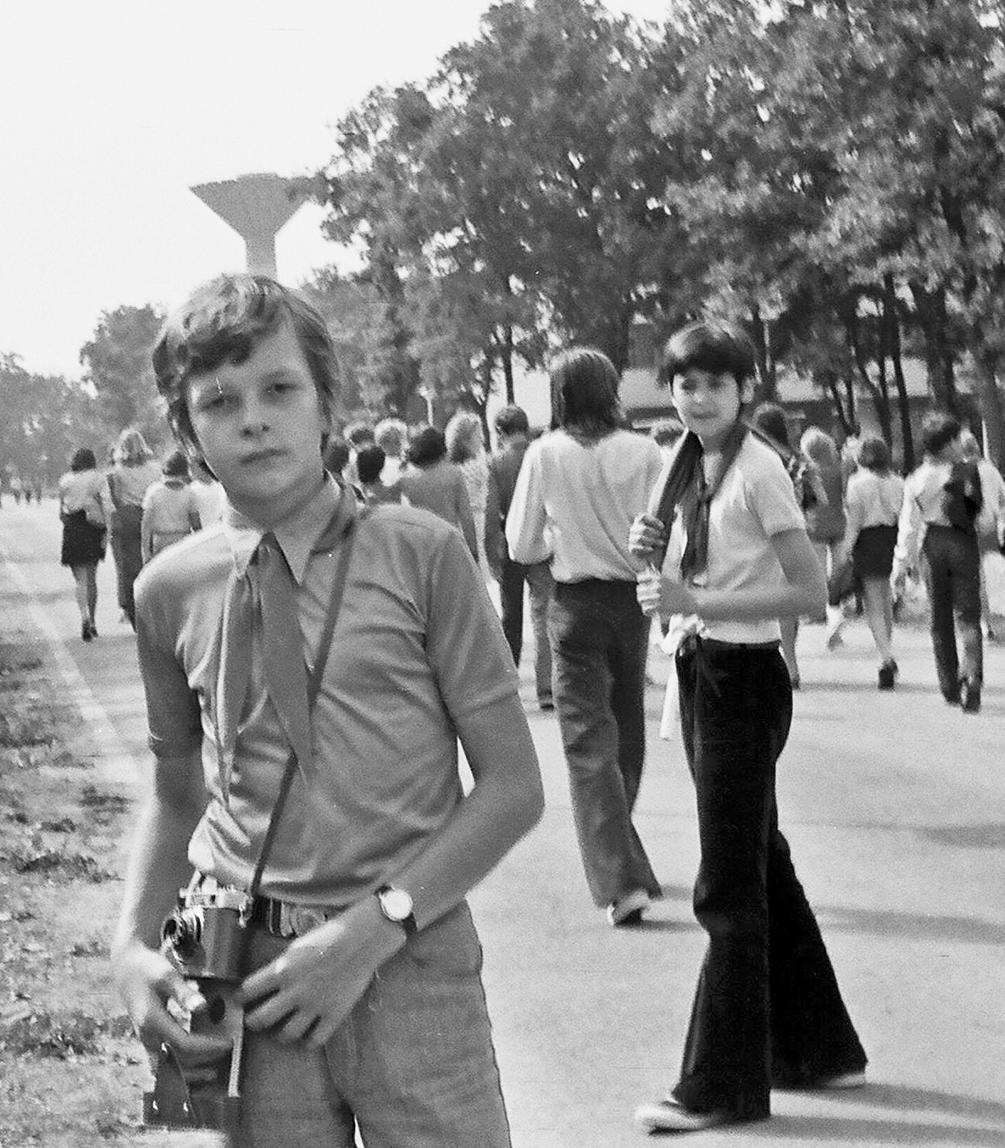

2 | 1 News www.bbj.hu Budapest Business Journal | June 30 – July 13, 2023
IMPRESSUM BBJ-PARTNERS THE EDITOR SAYS
Photo by Zoltán Máthé / MTI
Photo by Kornél Umann / Fortepan
Pessimistic Forecast From Economic Think-Tank
The Hungarian economy will shrink by 0.5% this year, according to the latest forecast by economic thinktank GKI, giving a much worse prediction than the government’s expectation of a 1.5% increase. However, it agrees inflation might drop to single digits by the end of the year.
In light of the latest macroeconomics data, economic think-tank GKI Gazdaságkutató (Economic Research Company) has published a rather pessimistic forecast for the Hungarian economy. The institute still expects this year’s GDP to fall by 0.5% (as stated in its March forecast), and the danger of an even more significant decline can only be prevented by the faster-thanforecasted expansion of agriculture.
GKI analysts recall that the recession continued in the first quarter of 2023 (for the third quarter in a row), was down by 0.2% compared to the previous quarter, and there was even a decline (by 0.9%) when compared to the same period of the last year. In the first four months, industrial production was down by 3.2%, construction by 7.7%, and retail turnover by 10.4% compared to a year earlier.
The document states that business expectations do not point to a quick recovery. In June, the service providers’ confidence index fell to +5,
the industrial confidence index to +7, and the construction industry and the commercial sector hit 38-month lows.
However, after last year’s significant drought-assisted decline, agricultural GDP might expand faster than previously expected.
As for Hungary’s industrial sector, GKI no longer expects growth this year; what’s more, it even considers a slight decrease a possibility. It also raised the anticipated rate of decline in the construction industry and retail trade to 10% and 4%, respectively. However,
General Government Balance in Hungary (January-May 2022/2023)
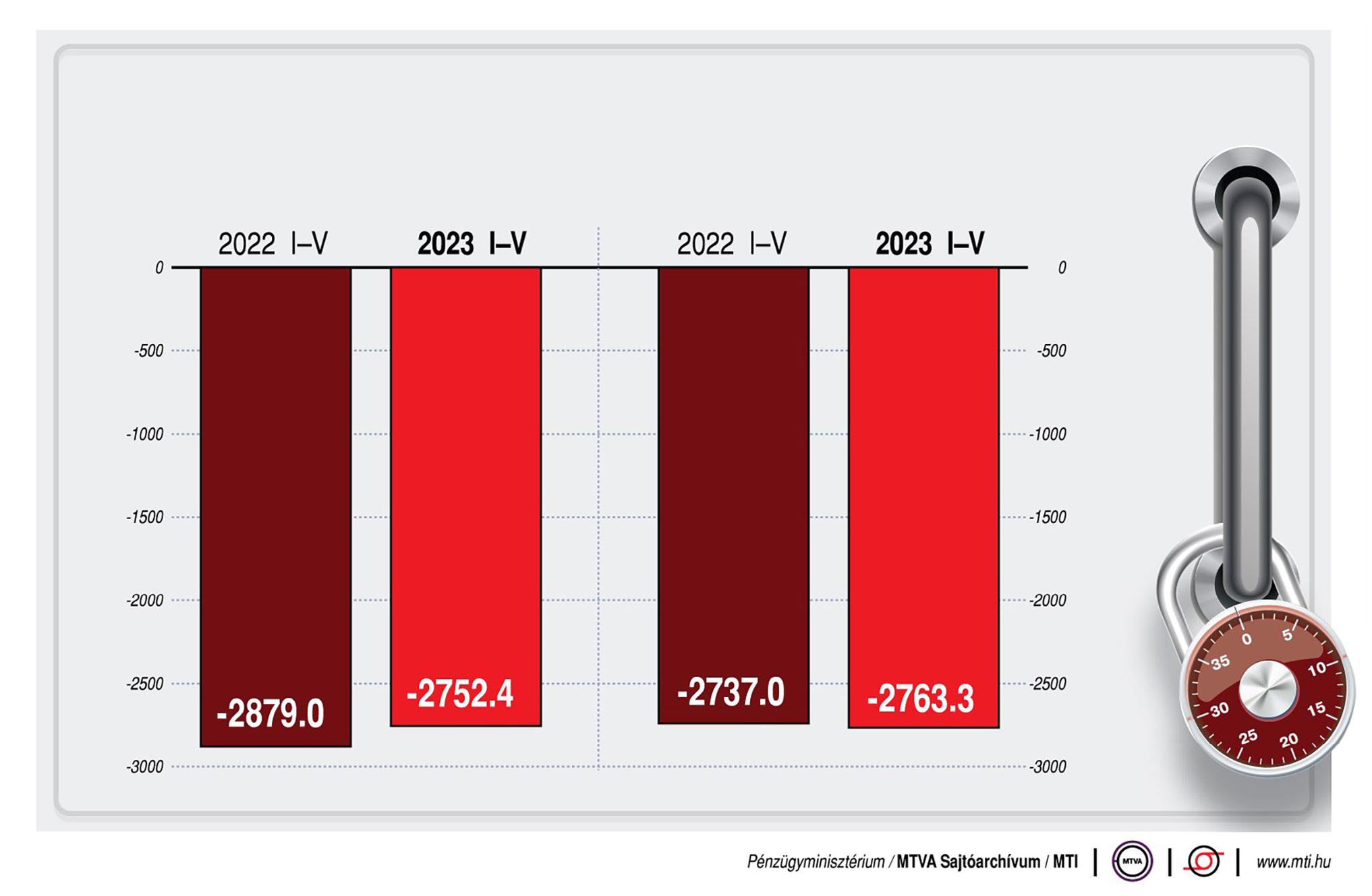
modest growth is likely in several of the service sectors; for example, finance, transport, tourism, and telecoms. Employment is expected to rise slightly this year, and the unemployment rate will increase only moderately from last year’s 3.6% to 3.9%.
Decreasing Consumption
GKI reduced the expected decline in consumption this year from 3% to 2.5%, as the volume of benefits in kind increased by a surprising 4.7% in the first quarter, the forecast reveals. However, GKI expects a 3.5% decline in the case of purchased consumption.
The think-tank finds the amended 2023 budget “unrealistic.” In its explanation, it emphasizes that in the first four months of 2023, the cash flow deficit of the general government exceeded 80%
of the annual target by the end of May (it stood at 81.3%). The explanation for this lies, on the one hand, in the overly optimistic growth forecast, such as an increase in consumption. The other reason is probably the lack of anticipated EU transfers.
While under-planned inflation has a positive effect on budget revenues (at least in the short term), it is a source of additional tensions and risks on the expenditure side. The rise in debt ratio is particularly worrying.
According to GKI, in the presence of significant uncertainty – depending on the arrival of EU transfers and the expenses paid in advance – without measures to improve the balance, the deficit could be 1.5% higher than planned in the budget.
The economic research company assumes that the government will handle about half of this excess deficit through adjustments and the other half in the form of waivers. In other words, the think-tank expects a deficit of around 4.7% compared to the government’s projected 3.9%. The reduction of the national debt in proportion to GDP will be helped by inflation in 2023, so it is possible to reduce the debt ratio to around 69%, GKI says.
Single-digit Inflation
Price increases of around 19% are expected throughout the year. The high pace is partly the result of lingering effects. For example, energy prices will raise this year’s price level until September and fuel prices until December. At the same time, the run-out of this base effect predicts a rapid price drop compared to the same period of the previous year. The biggest obstacle to further monthly price increases is the decrease in purchasing power, the document states.
All in all, a single-digit price increase might be achieved by the end of the year. However, a combination of core
inflation being higher than the increase in consumer prices, the expected rise in energy prices, the problematic situation of the budget, the elimination of price caps, the possible acceleration of wage growth, and, last but not least, the possibility of a significant weakening of the forint, could put the brakes on and slow or even prevent this from being achieved, GKI warns.
As for monetary policy, GKI expects that if the 100-point monthly interest rate reduction that has begun weakens the euro-forint exchange rate to more than
HUF 400,
it cannot be continued without interruption. The currently widespread opinion that the benchmark interest rate may drop to 13% as early as September (and would thus once again be the same as the base interest rate) may be too optimistic, GKI says.
However, during the fall or early winter, convergence could actually occur. In a favorable case, if inflation and especially the exchange rate make this possible, the reduction of the base interest rate might even begin this year, to about 12%.
At the same time, a severe weakening of the forint (for example, in the event of excessive speed in the interest rate reduction or the interruption of the EU negotiations) could halt the interest rate reduction process and, in extreme cases, even lead to further tightening.
www.bbj.hu Budapest Business Journal | June 30 – July 13, 2023 1News • macroscope
ZSÓFIA CZIFRA
billion forints Central budget balance General government balance*
* Excluding local government Source:
A biweekly look at real estate issues in Hungary and the region
Atenor Completes RoseVille Office Center Development Real Estate Matters
Leading Budapest office developer Atenor is set to deliver its latest office project, RoseVille, in Óbuda. In general, ongoing office projects are expected to continue. However, it remains a question when new development projects will be undertaken in the current uncertain economic environment with rising finance and development costs and more complex leasing processes.
Despite that uncertainty, commentators see continuing demand for new, sustainable, modern office space.
“One month before the handover of the first tenant’s premises, RoseVille obtained its occupancy permit. The environmentally conscious building, developed by Atenor with a rentable area of 15,500 sqm, will start operating in July this year,” says Máté Galambos, director of leasing at the firm. He expects the complex to be between 60% and
70%
occupied by July.
“We are currently signing new leases, which means more news to come soon,” he confirms.
The building, penned by the team led by Géza Szokedensci, co-founder and CEO at Artonic Design Ltd., is Breeam “Excellent” and Access4You “Gold” certified and ESG-compatible. Tenants already include Veeva Systems and L’Oréal.
Atenor says it was one of the first landlords in Budapest to sign so-called “green leases” for the project, located on Bécsi út in Óbuda.
The Belgium-based Atenor has been present in Hungary since 2008 and is known as a leading campus-style office developer. It has taken a similar approach in Bucharest. The concept aims to develop sustainable office and residential schemes that blend organically into the city landscape, enriching the surrounding communities with landscaped public spaces and a wide range of services.
Prelease Concluded
In another significant deal, Atenor has concluded a 16,000 sqm prelease with E.ON to fully let the first phase of its BakerStreet project in South Buda, which is due to be handed over in the second quarter of next year. A second 24,000 sqm project phase is scheduled for completion in late 2024.
At the same time, Atenor’s 72,000 sqm Aréna Business Campus on Hungária körút in District VIII, part of the outer körgyűrű or ring road, is being developed in four phases. The Breeam “Excellent” certified Building A has been in use since 2020. Building B could be handed over as soon as 2024, should the requirements arise, according to Galambos.
Orbán says Putin Remains ‘Strong’
The armed rebellion attempted by Russia’s Wagner Group over the weekend, in which leader Yevgeny Prigozhin led his mercenary group within 200 km of Moscow before withdrawing under unclear circumstances to Belarus, has done little to shake Prime Minister Viktor Orbán’s belief in the solidity of Russian President Vladimir Putin’s regime.
“When it is managed in 24 hours, it’s a signal of being strong,” Orbán told German publisher Axel Springer on June 27.
After railing against Russian military elites, whom he had accused of sabotaging Wagner’s efforts in Ukraine, Prigozhin launched an incursion into Russia with his thousands of his mercenaries on June 23, reportedly
meeting little resistance and managing to capture the headquarters of the Southern Military District in Rostov-on-Don.
The force was then reportedly en route to Moscow before halting on June 24 following negotiations with Belarusian president Alexander Lukashenko. Many Western leaders and commentators believe that Prigozhin’s rebellion demonstrates Putin’s growing inability to maintain order among his subordinates. The Hungarian prime minister, however, neglected to “see any major importance to that event.”
According to Orbán, “Putin is the president of Russia, so, if somebody has a speculation that he could fail or be replaced, [they] don’t understand the Russian people and the Russian power structures.”
The PM explained that, unlike Hungary or Germany “Russia operates differently than we do,” referring to a system in which power structures are “based on the army, secret service, police,” while also emphasizing the stability of such structures in the “military-oriented, minded country.”
Grain Ban Latest
Meanwhile, Hungarian Minister of Agriculture István Nagy pushed for the European Union to extend
The project is one of a limited pipeline of office projects in the Budapest market. Few others are expected to be undertaken in the near future as developers exercise caution given the uncertain office market environment.

Total supply in the Budapest office market has reached 4.3 million sqm according to the Budapest Research Forum, consisting of CBRE, Colliers, Cushman & Wakefield, Eston International, JLL, and Robertson Hungary. That may seem a sizeable figure, but the stock per capita is low; therefore, there is growth potential and an apparent undersupply, according to Cushman & Wakefield.
CBRE has traced a further 320,000 sqm of modern office space under construction in Budapest. The vacancy rate has risen to a little more than
12%.
The consultancy puts office completions for this year at 203,000 sqm.
“Processes have been extremely slow in the past few months, and I expect that the summer period will be even slower. Even though vacancy is on the rise, I can see demand on the market, which is a good sign,” notes Galamos.
“In the first quarter of 2023, renewals dominated the market in terms of leasing activity, but, in my opinion, tenants will have to be quick to make decisions with the rather limited new office stock that is about to enter the market,” he warns.
Ukraine
Roundup Crisis
its ban on importing select agricultural products from Ukraine past its current expiration date of September 15 at a meeting of EU agricultural ministers in Brussels on June 27.
The EU agreed to restrict the import of several agricultural products from Ukraine, including wheat, maize, rapeseed and sunflower seed, to member states Hungary, Bulgaria, Poland, Romania and Slovakia following the unilateral introduction of import restrictions by several of the member states, notably Hungary and Poland. Following its introduction on May 2, the EU chose to extend the prohibition on June 5, the day it had initially been set to expire.
Nagy justified the requested extension past September 15, arguing that while farmers retain the capacity to store this year’s harvest of wheat and rapeseed, they lack such storage space for maize and sunflower seed, thus emphasizing a need for a ban on the import of at least these products until at least December 31.
On June 26, the European Commission granted farmers in these member states some EUR 100
million in support for storage costs and unsold grain as a consequence of the glut, which had been triggered by the exemption of customs duties and quotas for Ukraine in June 2022, in an effort to expedite exports to Africa and the Middle East.
Roughly EUR 15.9 mln of the total compensation was designated for Hungary, which Nagy said “wasn’t too much,” but he acknowledged it as a “symbolic gesture.”
Regarding the return of prisonersof-war delivered to Hungary by Russia, Ukrainian foreign ministry spokesman Oleg Nikolenko reported on June 23 that five have now been repatriated to Ukraine.
Deputy Prime Minister Zsolt Semjén initially announced on June 9 that Hungary had received a group of 11 Ukrainian POWs of Transcarpathian origin, a region with a sizable minority of ethnic Hungarians, through the cooperation of the Russian Orthodox Church. After claiming that calls to return the POWs had been ignored, Nikolenko announced the initial repatriation of three of the 11 POWs on June 20.
4 | 1 News www.bbj.hu Budapest Business Journal | June 30 – July 13, 2023
GARY J. MORRELL
NICHOLAS PONGRATZ
The RoseVille development on Bécsi út, Óbuda.
Hungarian Public Support for U.S. Weakens, Doubles for Russia
Some two-thirds of Hungarians believe membership in both the European Union (64% support) and Nato (68%) to be beneficial for the country, according to a survey entitled “The World Through Hungarian Eyes: Foreign Policy Attitudes in Hungary in 2023,” released earlier this month.

Underpinning this result, the survey, commissioned by the left-leaning Policy Solutions think tank, revealed that if asked in a referendum whether the country should retain membership of the North Atlantic defense alliance, 76% would vote to remain, including 72% of Fidesz voters.
“I was positively surprised when I saw these numbers [….]; 76% is decent. [This and] our last four surveys are quite consistent in saying that support for EU membership is around 70%, despite all the Euroskeptic propaganda that you can hear every day from the Hungarian government media,” András BíróNagy, director of Policy Solutions, told international journalists on June 14.
The survey, which delves into subjects ranging from Hungarians’ views on what the country’s foreign policy goals should be to the favorite international figures, reveals other facets of pro-Western public feelings. For example, 68% of respondents believe Sweden and Finland belong in Nato, a sentiment that has overwhelming support among voters for the leftist parties Momentum (87%) and Democratic Coalition (86%).
However, the survey has ominous findings for those who believe the country’s future is best served by cooperating closely with its Western allies and partners.
Notably, while 55% of respondents said that in terms of values, their country belongs to the West, 26% said Hungary should build closer relations with Russia, twice the proportion recorded to precisely the same question two years ago.
“Although from a low base, the number has doubled, which clearly shows the effect of the Russia-friendly communication of the Hungarian government in recent years, especially since the start of the war in Ukraine,” Bíró-Nagy said.
Lead Follower
Intriguingly, while on domestic issues, the Hungarian government tends to follow rather than form public opinion, when it comes to foreign policy, the survey indicates the reverse is true, especially among government party supporters.
For example, when given a list of 17 countries and asked which Hungary should have closer ties with, 67% of Fidesz voters favored Russia, compared to 34% of supporters of the former six-party opposition bloc.
As for the United States, Fidesz-voters put their Nato ally in second-bottom place on the list, although 64% still supported closer ties. However, this compares to
82%
of opposition voters opting for stronger U.S. links.
A fifth of respondents (21%) deem that America frequently launches wars and asserts its interests aggressively.
“After so many years of this Eastern Opening strategy, and being critical of the West, of Nato, of the United States, even the German government, even having clashes with the Norwegian government, which I would say is quite a big achievement […] such politics now can be seen in the foreign policy attitudes of Fidesz voters,” Bíró-Nagy said.
“The polarization which has characterized Hungarian politics on many other issues can now be seen in foreign policy as well. I think this is very sad news,” he added.
But perhaps the best illustration of how government media policies affect the thinking of Hungarians from all political persuasions is the public perception of the war in Ukraine. When respondents were asked about the economic effect of the European Union’s sanctions against Russia, a mere 11% believed that these had damaged Russia more than the European Union. Thirty-seven percent believe sanctions had been equally damaging to both sides, while 44%, agreeing with the government’s narrative, say that they have backfired and damaged the EU more than Russia.
“Of course, among Fidesz voters, this [last] number is way higher [at 56%] than for opposition voters [38%],” Bíró-Nagy said.
War Front
Respondents were also asked about the future of the war. Would Ukraine retake territory, would the front lines stay more or less unchanged, or would Russia expand its hold on Ukraine?
Opinions were mostly split between two options, with 39% expecting
Russia to take more territory in Ukraine and equally 39% saying the lines would remain essentially unchanged. Just 7% believe Ukraine would retake lands occupied by Russia.
“The mood in Hungary doesn’t reflect the international consensus at all. Nobody in the international sphere believes that Russia will gain more territory, […] but the Hungarian people don’t see it like that. I think this is again clearly the effect of what they hear in the news, what they hear from the prime minister and what they see in government-related news channels,” Bíró-Nagy said.
But this reasoning invites another question: if the government narrative continues against the European Union and Nato, will public support in Hungary wane for these institutions, just as it appears to have done regarding the standing of the United States? For BíróNagy, this is indeed a severe risk.
“I think we are in a really dangerous phase now, especially when it comes to the EU membership question,” he said, arguing that, from previous surveys focusing on the Union, the number one reason given by Hungarians for favoring EU membership is, “by a huge margin,” the money coming from Brussels. The second reason is the freedom to travel, work and study across Europe.
But with Hungary suspended from the Erasmus student program and significant funding from Brussels held in abeyance over rule of law issues and alleged backsliding on democracy, Hungarians can no longer fully enjoy these two top advantages of EU membership.
“My big fear is that Viktor Orbán and his government, [...] by reframing the narrative about why Hungary is not receiving EU funds and why Hungarian students cannot participate in the Erasmus programs if they can portray this as a punishment from the EU because we are standing up for conservative values, then, I believe the long-term support for Hungary’s EU membership is in danger,” he reasoned.
While cautioning that he did not imagine Hungary coming even “close to a Brexit scenario,” there is “a threat that support for the EU will not be as stable in the future as it has been over the last few years,” he said. A 10-page English survey summary can be found on the policysolutions.hu website.
Russian President Tops and Tails Int’l Persons’ Poll
With 95% of respondents recognizing his name and role, Vladimir Putin leads the list of 23 names of international politicians and public figures presented to Hungarian respondents in the Policy Solutions survey.
Pope Francis (91%) and former U.S. President Donald Trump (90%) followed the Russian President.
Britain’s Rishi Sunak and India’s Narendra Modi tied for the wooden spoon of this selection, recognized by just one in three of those quizzed.
Pope Francis was top of the pops for admiration, with a 60% favorable rating. In fourth place overall, Emmanuel Macron leads what might be termed the “genuine” politicians’ subtable, albeit with only 34% support.
Joe Biden was left struggling, coming in after China’s President Xi Jinping and garnering just 16% of supporters’ favor, ranking fourth from the bottom.
But the current U.S. President can at least take some consolation since he bested Vladimir Putin, who took bottom spot with just 9% support.
1 News | 5 www.bbj.hu Budapest Business Journal | June 30 – July 13, 2023
KESTER EDDY
If a Referendum Were Held on Whether Hungary Should Remain a Member of NATO or Leave NATO, how Would you Vote?
HR Trends Point to Little Expansion, Long Stagnation
Changes in the Solvency Index Y.O.Y. (Q1 2022-2023)
HR Matters
A monthly look at human resource issues in Hungary and the region
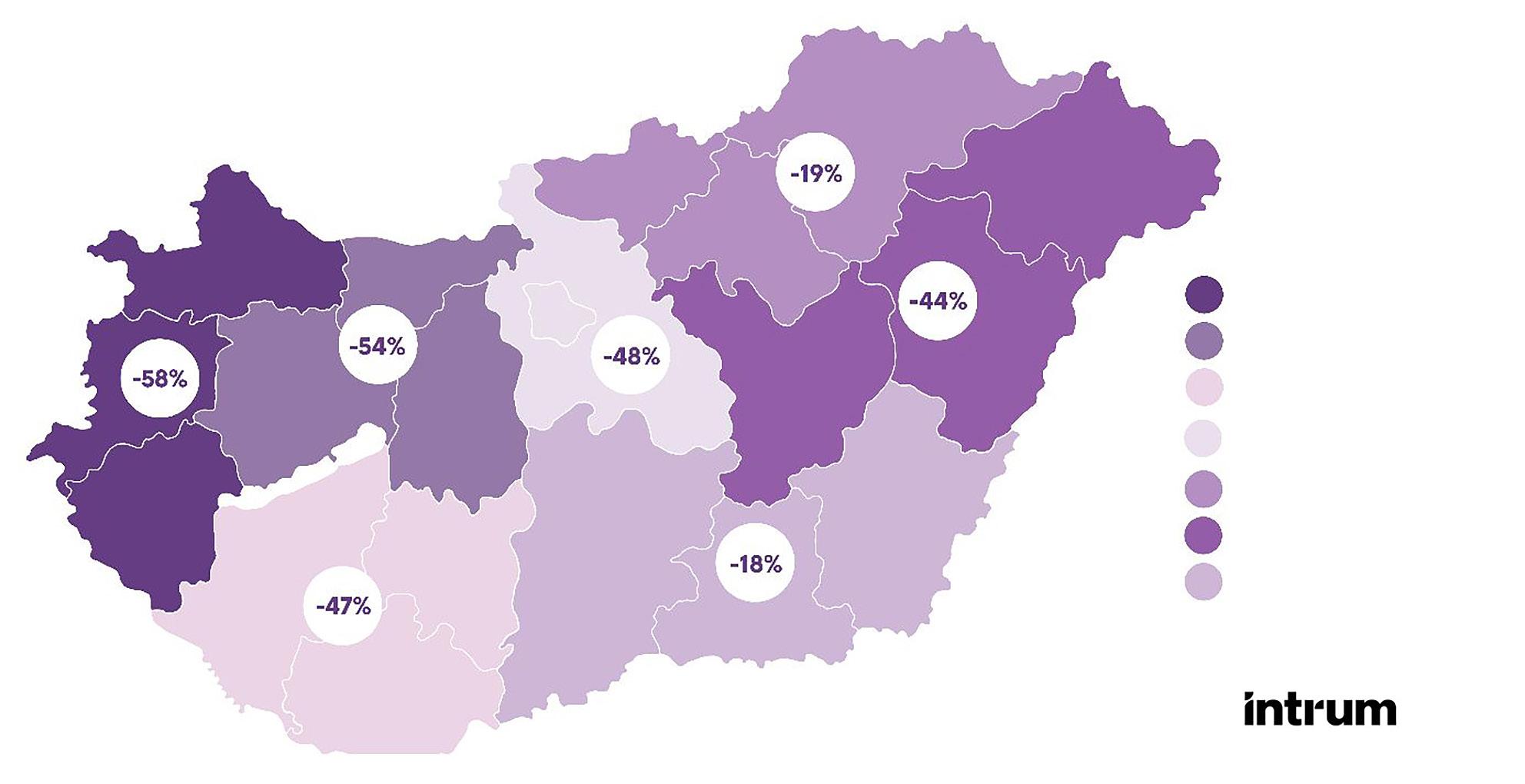
Western Transdanubia
Central Transdanubia
South Transdanubia
Central Hungary
North Hungary
Northern Great Plain
Southern Great Plain
Source:
recruit workers for Romanian companies are contributing actively to transferring them to the West, according to Romanian labor union officials.
Youthful Brain Drain?
with 41% stating that their appreciation at work could be regarded as average.
Compiled “by a group of independent experts acting in their personal capacities,” it ranked 136 countries around the globe according to the measured happiness of their inhabitants. In the top 10, we find developed countries, including Finland, Denmark, Iceland, Israel, Netherlands, Sweden, and Norway, indicating that, at this level, happiness is very much linked to the standards of living.
In the top 20, we find Czechia and Lithuania, a newcomer in this strata. Following that, living standards do not seem to have much impact on happiness: Romania is ranked 24th, while Poland and Hungary, with a higher GDP per capita, were ranked 39th and
51st,
respectively.
This discrepancy is probably related to the other five factors considered: health, having someone to count on, having a sense of freedom to make key life decisions, generosity, and the absence of corruption.
The perception of Western countries as lands of opportunity and happiness is reflected in the labor market.
Neighboring Romania, a country which, like Hungary, is struggling with a labor shortage, cannot retain most workers who arrive from third countries like Bangladesh. As news portal hotnews.ro puts it, “For people in Bangladesh, the dream country is not Romania.”
Of the 35,000 workers that have arrived from Bangladesh, only 1,500 currently live in Romania. For the others, Romania is merely a transit country, and they soon leave it for Italy, Germany or the United Kingdom. In many cases, Western labor force placement agencies that officially
In Hungary, the situation looks even more dramatic. Polls indicate that in the long term, even many born in Hungary plan to leave. Job search portal Zyntern studied the labor market preferences of 3,000 young (16-28) Hungarians, of which twothirds were residents of Budapest.
The most important factor when choosing a job is the salary, expected to be, on average, HUF 379,000 monthly net, a 17% increase compared to last year. Similarly essential factors are acknowledging their performance and working in a good team. The prospects of development and career are also highly regarded by young Hungarians.
They consider the most attractive workplaces to be multinational companies; 71% of the respondents are looking for opportunities in this segment. State administration is the least attractive, with 15% seeking jobs there.
The focus on multinationals is probably related to plans to work abroad: nearly half (47%) of the respondents hope to do so in the next five years. As for what companies are regarded as the most attractive, most of the answers indicated Hungarian ones, or at least Hungarian affiliates: Robert Bosch Kft., Magyar Telekom Nyrt., OTP Bank Nyrt. Runners-up were Richter Gedeon Nyrt., MOL Nyrt., Audi Hungaria Zrt., KPMG Hungary, Aldi Magyarország Élelmiszer Bt., Egis Gyógyszergyár Nyrt.
But how about those already employed? As we have previously seen, appreciation is a crucial factor for satisfaction. The K&H Youth Index, published recently, shows that a mere 36%
of those aged between 19 and 29 feel appreciated at work. This percentage has been more or less the same in the last decade,
Half of them consider their job stable, while up until mid-2020, this rate was higher, around 60-70%. On the other hand, contrary to the Zyntern findings, 40% are not considering leaving the country for work at all, although 32% said they might consider this a possibility.
Young employees (or future employees) may have specific expectations for salaries, but companies are not doing well currently. Intrum has polled 10,000 CEOs in 29 countries about their financial situation in Q1 of 2023. Almost half of them (48%) said their company is doing worse than a year ago, while in Hungary, this rate is somewhat higher, 51%; only 22% said their situation had improved compared to last year.
Inflation the Challenge
For most, the main challenge is inflation. High rates are hitting the cash flow hard, and supply chains have not recovered fully after the pandemic. Hungarian respondents share the general pessimism regarding inflation, namely that it will not drop significantly within two years.
Despite the grim prospects, some companies are planning to hire in the next quarter, albeit not many. According to a survey conducted by ManpowerGroup, 31% of Hungarian companies plan to expand their labor force, mainly those in the IT, logistics, auto and energy industries.
Almost half (48%) said they do not plan changes, while
18%
indicated they plan to make layoffs. Across the Hungarian regions, companies in Western Hungary are planning labor force reductions, while those in Central Hungary and Budapest are considering expansion.
This is doubly bad news for those living in Western Hungary, as this is
also the region where the solvency index has dropped most between Q1 2022 and Q1 2023, by 58%, according to a survey by Intrum and GKI. Solvency, an indicator of the family revenues remaining after paying utilities, food and other living expenses, shows that the financial situation deteriorated considerably within one year.
The perception of Western countries as lands of opportunity and happiness is reflected in the labor market. Neighboring Romania, a country which, like Hungary, is struggling with a labor shortage, cannot retain most workers who arrive from third countries like Bangladesh. As news portal hotnews.ro puts it, “For people in Bangladesh, the dream country is not Romania.”
There was also a significant fall, albeit to a lesser degree, of 48% measured in Central Hungary, including Budapest, where revenues are traditionally higher, but so are expenses: utilities, rents and products.
According to Intrum sales director Judit Üveges, the decrease is caused by structural, systemic issues in the economy, like the commercial balance and the high state deficit. Since these require a long period of correction, we can expect a long stagnation and slow growth, Üveges said.
6 | 1 News www.bbj.hu Budapest Business Journal | June 30 – July 13, 2023
BALÁZS BARABÁS
Before taking a closer look at the Hungarian labor force market, let us briefly look at a new report that is apparently unrelated to jobs and HR but undeniably linked to the quality of life: The World Happiness Report.
2 Business
Gloster Hosts 1st Investor Briefing to Share Future Path to Expansion
With the recent acquisition of P92 IT Solutions, Gloster Group says it has carved out a niche in the highly competitive IT sector. A company that has grown over the last two decades from a humble start-up to a robust international corporation, Gloster now says it is making strategic moves to expand its footprint.
The firm released its results and plans to shareholders and the press at an event at Stopper Úszóház (on the Pest embankment, near Árpád híd) on June 13. The evening program was attended by prominent figures from Gloster’s management, including Viktor Szekeres, the company’s board chairman, who spoke for more than an hour.
It featured trend analysis presentations, a roundtable discussion with well-known personalities Péter Oszkó and Tamás Korányi, and concluded on a lighter note with jazz music and casual conversations.

Gloster has seen a surge in revenue in recent years, positioning itself as a billion-dollar company. Critical to this growth has been the export of services from its international software development division, a team of more than 200 professionals.
These efforts have not gone unnoticed by financial markets. Gloster’s share price on the Xtend platform (launched
in 2017 to support the growth of mediumsized companies) is expected to rise, with analysts from Erste and Equilor setting promising 12-month targets. While the fluctuation of stocks can be unpredictable, it’s a promising sign of investor confidence.
Gloster’s recent acquisition of P92 IT Solutions marks a significant step in the former’s expansion strategy. P92, a seasoned player in the IT sector, brings an additional pool of more than 340 professionals. The move is expected to bolster Gloster’s market position, particularly in software development and cloud services, where P92 holds significant expertise.
At a recent press briefing, Szekeres disclosed the company’s strategic plan. “Our intent is to grow organically whilst pursuing strategic acquisitions in the software development and cloud computing sectors,” Szekeres stated. He also disclosed an ambitious goal.
“By 2025, Gloster aims to quadruple its figures from 2021.”
The June 13 event was an unprecedented move for Gloster, representing its first physical investor meeting since its establishment.
New Chapter
“This event signals a new chapter in Gloster’s journey. It’s a demonstration of our commitment to transparency and stakeholder engagement,” Szekeres remarked. How it will shape future investor relations and public image remains to be seen, but it’s undoubtedly a step towards establishing stronger bonds with its stakeholders.
Gloster started as a garage hardware firm and evolved into a software-focused international SME. Over the past five years, the company has completed nine acquisitions, expanding its services into a multitude of sectors.
From network infrastructure and security to monitoring and collaboration solutions, Gloster has diversified its product range and secured a more extensive customer base. Such steps have been integral to the company’s growth, turning Gloster into a household name in the Hungarian IT sector.
As Gloster embarks on its aggressive expansion strategy, market watchers are keen to see how the company will navigate the often turbulent waters of the
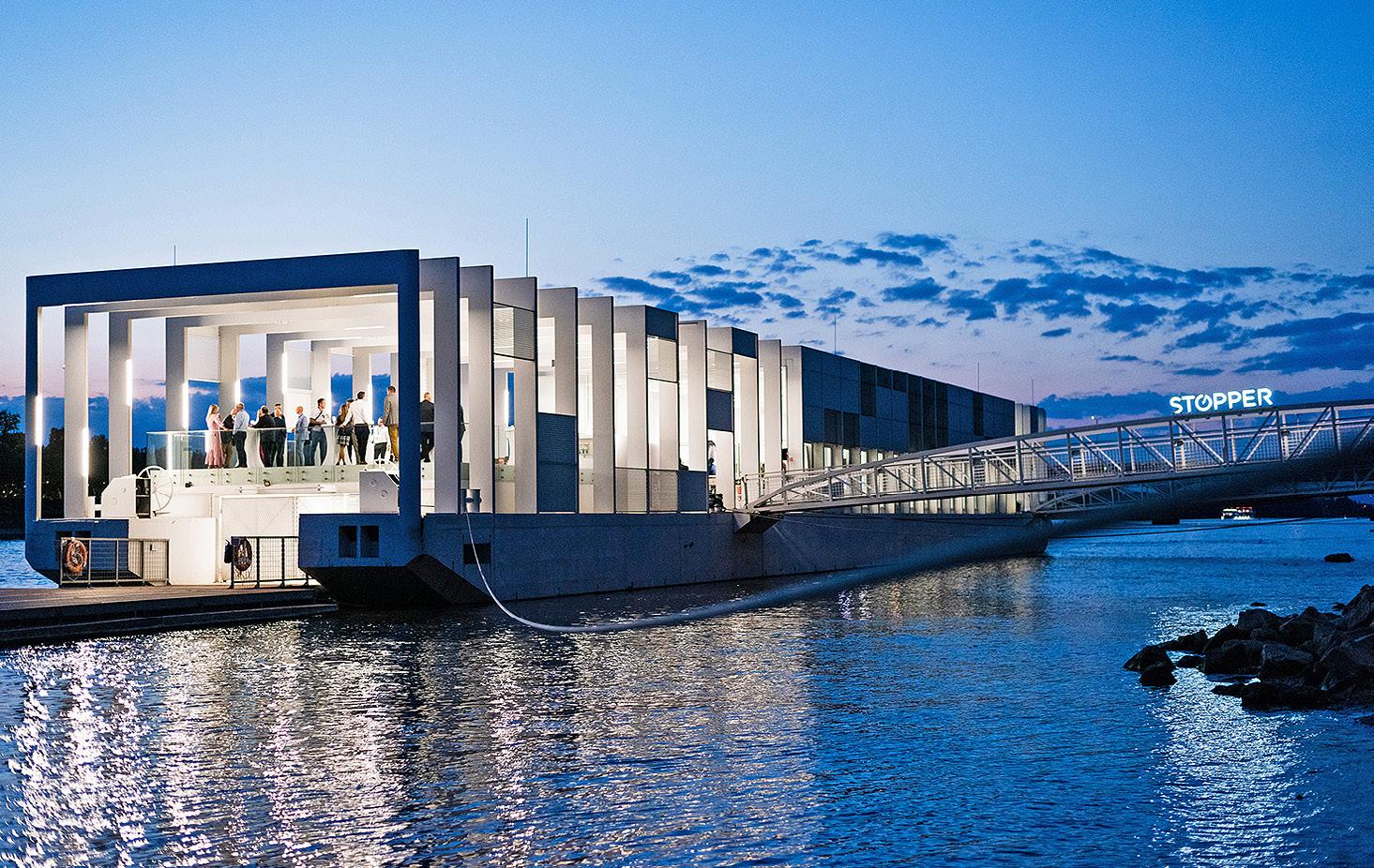
IT industry. The acquisition of P92 IT Solutions is a significant step, but the real test lies in Gloster’s ability to integrate and capitalize on P92’s capabilities.
Gloster’s journey serves as a blueprint for growth and transformation, market watchers suggest. Strategic moves, coupled with a committed workforce, have propelled the company into the billion-dollar revenue club.
However, continued success will depend on the firm’s adaptability and resilience in the face of evolving market dynamics. The newly acquired P92 IT Solutions offers distinct software development capabilities and a strong presence in cloud services, augmenting Gloster’s existing portfolio.
AI and IoT
The company’s R&D division is working on advanced solutions to meet the evolving needs of customers. Investments in cutting-edge technologies like Artificial Intelligence and the Internet of Things are part of the long-term strategy to stay ahead of the curve.
Amidst the established tech giants and emerging start-ups that populate Hungary’s IT sector, Gloster would seem well-positioned. Its diverse product range and customer-centric approach differentiate it from competitors.
Another noteworthy aspect of Gloster’s expansion strategy is its commitment to sustainable growth and corporate social responsibility. The company says it has made concerted efforts to implement eco-friendly policies and promote ethical standards across its operations. Furthermore, it actively supports local communities and encourages employee volunteerism.
Gloster’s social initiatives, particularly those promoting digital literacy, have been well received. Its “Digital Bridge” project, for instance, aims to reduce the digital divide by providing access to technology and education to underprivileged communities.
“Innovation is at the heart of Gloster’s business model,” Szekeres affirmed. The firm says its focus is on expanding its market share and maintaining its core values of innovation, sustainability, and social responsibility.
“Our commitment to these values, in conjunction with our ambitious growth plans, offers an exciting vision of the future,” Szekeres says.
GERGELY HERPAI www.bbj.hu Budapest Business Journal | June 30 – July 13, 2023
Viktor Szekeres, Gloster’s board chairman, spoke for more than an hour.
Gloster chose the Stopper Úszóház for its first shareholder presentation. Photo by Márton Pribék.
MOL Campus Aims to Lure Employees Back to the Office With Human-centered Spaces
MOL Campus, the tallest building in Budapest at 143 meters, is positioning itself as the office of the future, offering innovative and attractive workspaces designed to entice employees back from the home office era.
In a post-pandemic world where hybrid work models are becoming the norm, workplaces seek ways to retain talent and provide optimal working environments. The headquarters of energy company MOL, inaugurated less than a year ago, hopes to meet these demands by creating a work atmosphere that combines the comforts of home with the luxury of a hotel.
Unlike traditional Hungarian corporate offices, this structure stands out as Budapest’s tallest building. Absent are the usual MOL colors, logos, and corporate identity elements. Instead, it features bright, spacious spaces with plenty of natural light, panoramic views, and an abundance of live plants.
The design incorporates angled corners, natural woods, and a blend of monochrome and metallic finishes, while vibrant color combinations like pink and red, blue and green, and bright and pastel hues add a touch of elegance. However, an attractive appearance alone is insufficient to attract top talent.
“We wanted the employees to feel at home here, comfortable, in bright
spaces and surrounded by soft materials, cheerful colors and natural plants. This is to attract and retain young talent, providing them with a working environment where they can feel comfortable and work in an inspiring environment that stimulates their creativity,” said Balázs Turai, an architect at Minusplus, a 20-person architecture and design firm in Budapest, responsible for the interior design of the building.
Sense of Community
Emphasizing the human-centered aspect, the architects dedicated considerable thought to the functionality of the building.
Interior spaces were designed to maximize interaction, fostering community and inclusiveness.
“In designing the spaces, we tried to maximize the number of meeting points, supporting real human interactions to create inclusive, inspiring community spaces,” explains Donát Rabb, co-owner of Minusplus.
MOL Campus utilizes space in an innovative way, the designers insist, putting an emphasis on co-working. The podium houses various collaborative areas, such as project- and workshop rooms or coworking offices, while the 28-story tower’s “triplets” (three-floor department sections connected by internal staircases) serve as staff floors.
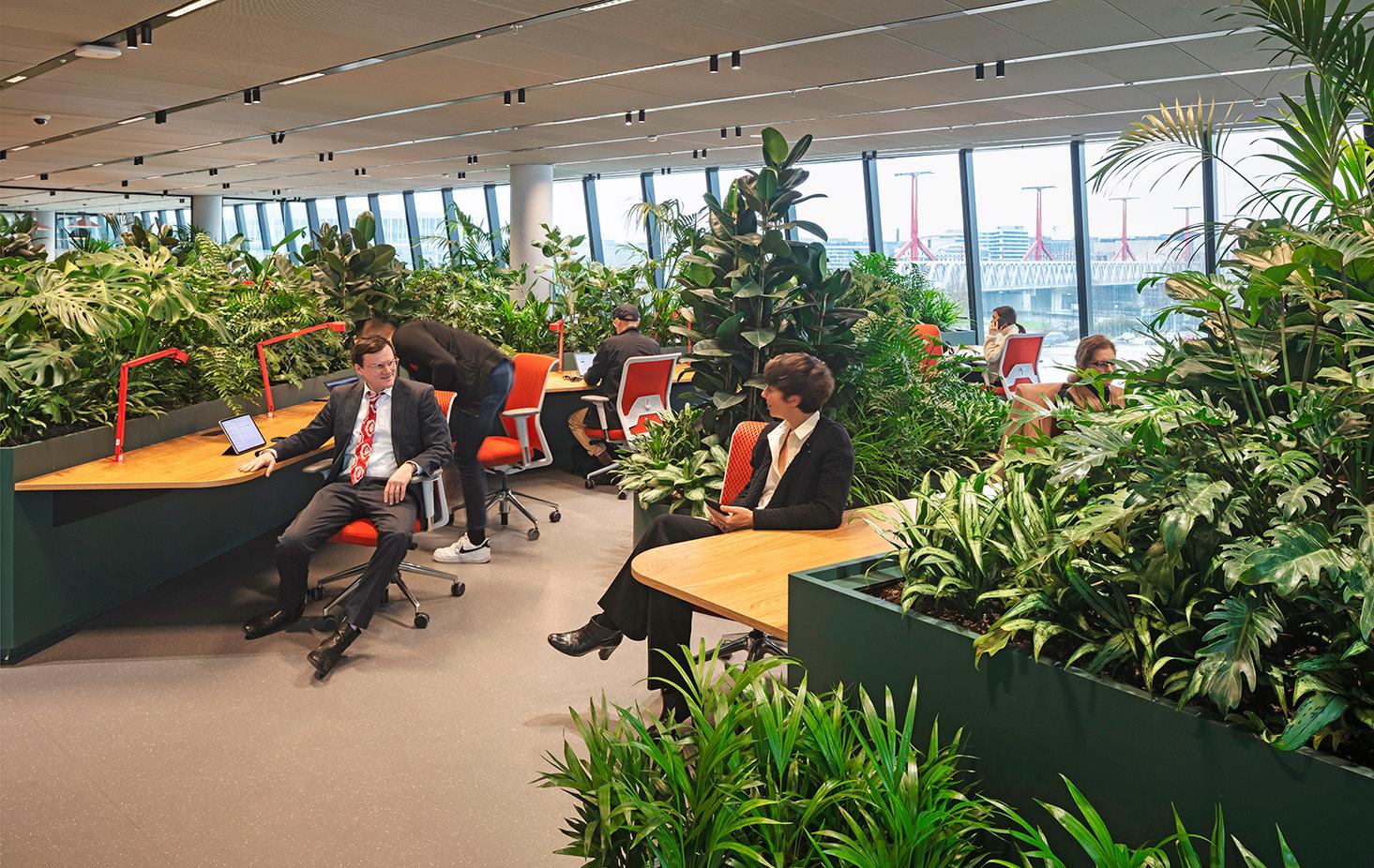
Lounges and tea kitchens are available on all levels, and each triplet has its own social areas to encourage teamwork. Desk sharing is implemented throughout the headquarters, meaning employees do not have designated desks. Instead, they can choose from different working zones in the triplets: group collaboration spaces at the bottom, focus workplaces in the middle, and quiet zones at the top.
However, those wishing to work alone are also catered for, as focus rooms and phone booths are scattered across the building to provide areas for individual work.
Additionally, MOL Campus offers conference rooms and various meeting, workshop, and project rooms in its podium section across five floors. This flexibility allows employees to select the most suitable environment
for their work. There is even a palm tree-filled working garden on the third floor for quiet and focused tasks.
Abundance of Amenities
The HQ also boasts an array of amenities to enhance the employee experience. The central atrium leads to the first-floor staff restaurant, which defies the stereotypical office canteen with double-height ceilings, panoramic views, and a terrace.
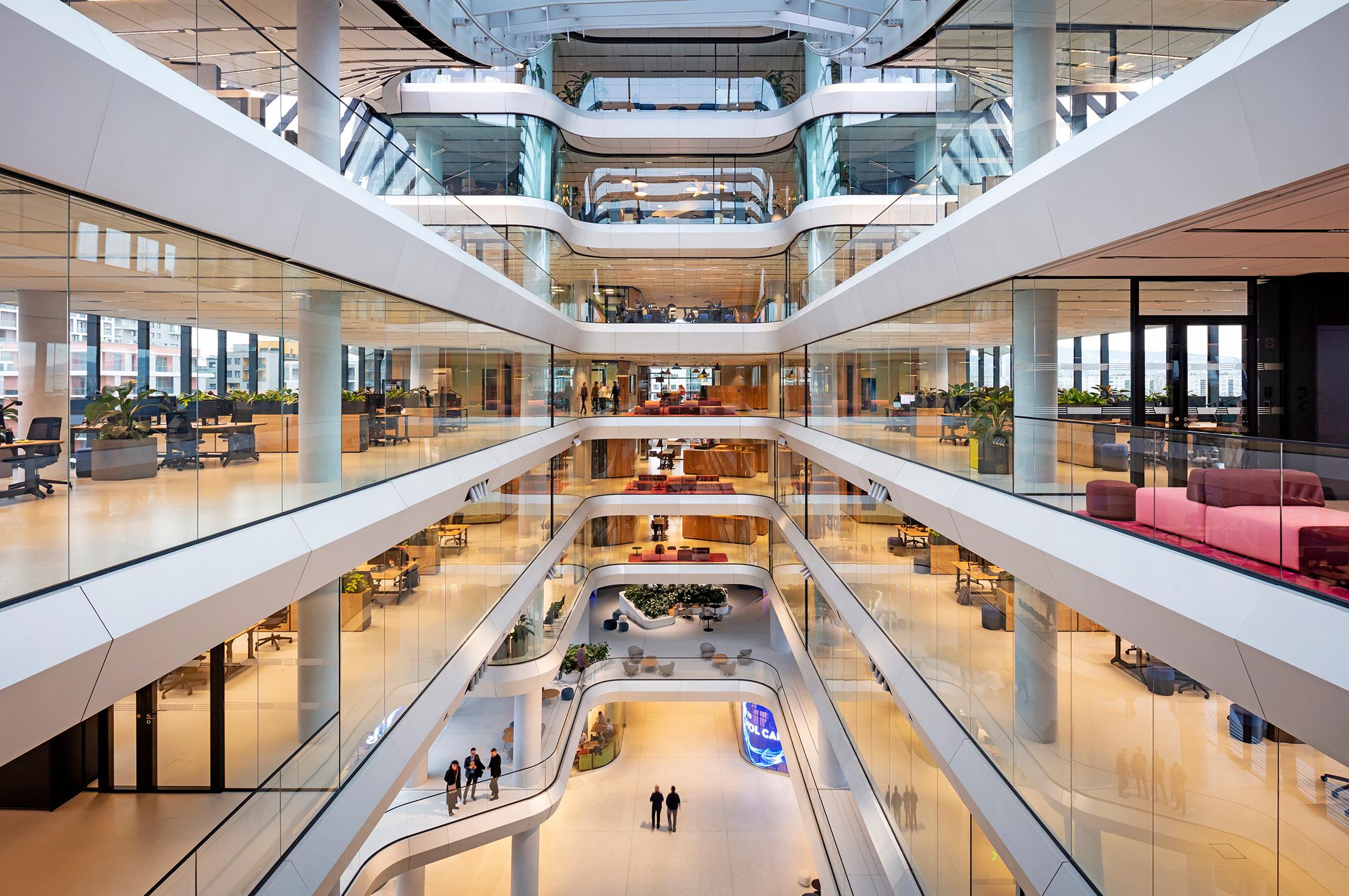
Adjacent to the restaurant, employees can find convenient services such as an IT and HR helpdesk, an internal post office, mobile phone shop, tailor, dry cleaner, and the company doctor’s office. On the ground floor, a fully equipped gym, with saunas, massage facilities, and a beauty salon and barber shop, create a “small town” ambience. These onsite services aim to alleviate the need for employees to seek them elsewhere while also promoting a healthy work-life balance.
In addition, a kindergarten exclusively for the children of MOL employees has also opened up next to MOL Campus. This means working parents don’t have to hurry before or after work to drop off or pick up their kids.
MOL Campus also boasts excellent views of Budapest, especially from the building’s panoramic roof terrace, some 120 meters above the ground. The vantage point is also accessible to members of the public who wish to take a look at one of the city’s many well-known landmarks. In addition, according to the current plans, a restaurant will open soon for those looking for a meal with a view.
8 | 2 Business www.bbj.hu Budapest Business Journal | June 30 – July 13, 2023
BENCE GAÁL
U.S. Fed Faces Difficult Decision on Capital Requirements for Banks
New regulations on capital requirements for U.S. banks are likely to be announced before the end of June. Corporate finance columnist Les Nemethy says that, while they are highly anticipated, they might impact not only the banking world but also U.S. and global economic performance.
After the 2008 Great Financial Crisis, U.S. banking regulations were tightened, and capital reserve requirements increased; given that, the 2023 bankruptcies of Silicon Valley Bank, Signature Bank, and First Republic Bank surprised many. What went wrong?
Ironically, it was U.S. Treasuries, supposedly a pillar of stability of the financial system, which proved to be the Achilles heel of the banking system. The U.S. Fed recently hiked the Federal Funds target rate from close to zero to more than 5% at breathtaking speed, causing the market value of U.S. Treasuries (and other long-term bonds) to plunge.
U.S. Treasuries not being held to maturity needed to be marked to market, creating huge losses for many banks, including those that went bankrupt.
Whenever banks go bankrupt, it is natural for regulators to re-examine and fine-tune regulations. Changes have been in the air for some time. At a recent Senate Banking Committee meeting on June 22, U.S. Federal Reserve chair Jerome H. Powell announced that some banks might face capital reserve increases of up to 20%.

“The capital requirements will be very, very skewed to the eight largest banks [….]. There may be some increase for other banks. None of this should affect banks under USD 100 billion in assets,” he said.
The situation reveals certain internal contradictions about why the U.S. Fed is in such a difficult situation.
Finance Matters
Poor Targeting of Regulations
First, the change in capital requirements does not seem to target the banks that need it most. It is the smallest (less than USD 100 bln in assets) and mid-sized banks (assets between USD 100 bln and USD 250 bln) that seem to need higher capital requirements the most (although a failure of a bank with assets exceeding USD 250 bln would impact the financial system the most).
“With capital standards, it’s always a trade-off. More capital means a more stable, more sound, and more resilient banking system. But it also, at the margin, can mean a little bit less credit availability, and also the price of credit can be affected, and there’s no perfect way to assess that balance.”
The recent instability in the U.S. banking system saw a migration of deposits from smaller to larger banks, so it is the smaller banks that presumably face the most significant stress. (Granted, given that large banks invest a good portion of these increased deposits into Treasuries, they, too, have some increased risk). Nevertheless, it seems that the Fed is applying
stricter regulations to those banks with the ability to bear the cost rather than those who need it most.
Macroeconomic Effect of Regulations
The increase in capital requirements will add to several factors already tightening liquidity in the United States when the U.S. economy may already be facing a recession.
(a) The Fed has switched from Quantitative Easing (QE) to Quantitative Tightening (QT), meaning that it is selling off Treasuries, draining the system of liquidity.
(b) During the months prior to the debt ceiling being raised, the cash reserves of the U.S. Treasury were drained. Now that the debt ceiling has been lifted, it is engaged in a massive issuance of Treasuries to replenish its cash reserves, once again draining liquidity from the financial system.
(c) On top of the above would now come an increase in banking reserves. The more money banks hold in reserve, the less they can lend. Given the nature of the fractional reserve system, every additional dollar held back diminishes lending by many dollars. Bank of America estimated that a 100-basis point increase in reserve requirements reduces lending by approximately USD 150 bln. Given that increased reserve requirements will primarily target the eight largest U.S. banks, and these banks do an enormous amount of lending outside America, the ramifications will be global.
You might recall that there are two ways of expanding the money supply: one, a central bank may “print” money, or two, there is bank lending. So, increasing capital reserve
requirements actually has the potential to diminish the money supply further.
The timing of these capital reserve increases is also interesting: firstly, because the U.S. and global economies are seeing growth forecasts revised downwards, with the potential of tipping into recession. And secondly, because we are in a period leading up to the U.S. presidential elections.
As Chair Powell recently stated: “With capital standards, it’s always a tradeoff. More capital means a more stable, more sound, and more resilient banking system. But it also, at the margin, can mean a little bit less credit availability, and also the price of credit can be affected, and there’s no perfect way to assess that balance.”
While he acknowledges the trade-off, one can only wonder why he downplays the effect on credit availability. Given that monetary tightening is a very recent phenomenon, with little past data or history, it seems that we are in some kind of giant economic and financial experiment where even the U.S. Fed appears to acknowledge its limitations. The Fed is between the proverbial rock and a hard place, groping its way forward.
2 Business | 9 www.bbj.hu Budapest Business Journal | June 30 – July 13, 2023
A biweekly look at financial issues in Hungary and the region
Les Nemethy is CEO of EuroPhoenix Financial Advisers Ltd. (www.europhoenix.com), a Central European corporate finance firm. He is a former World Banker, author of Business Exit Planning (www. businessexitplanningbook.com), and a previous president of the American Chamber of Commerce in Hungary.
Xxxxxxxxxxxxxx
U.S. Fed chair Jerome H. Powell: between a rock and a hard place. Photo by Domenico Fornas / Shutterstock.com.
3 Special Report
Tourism
Strong Mid- to High-end Hungarian Hotel Pipeline
Hungary, and the region in general, is again seen as an increasingly attractive tourism and business destination. Guest nights have been on an upward trajectory; however, they are still below pre-pandemic levels, with the market negatively impacted by broader geopolitical, economic and financial concerns around demand, and rising development, labor and operational costs.
GARY J. MORRELL
Despite the perceived complexities of hotel development and investment projects in comparison with more established market sectors such as office or industrial, the hotel and hospitality area has successfully encouraged some investors to move over by concluding long-term lease and franchise partnerships with branded and experienced hotel operators, who provide the expertise needed for the day-to-day operation of the hotels.
Although some projects have been put on hold or are subject to delays, there are still many ongoing developments, including several highend redevelopments of listed buildings in the historic center of Budapest.
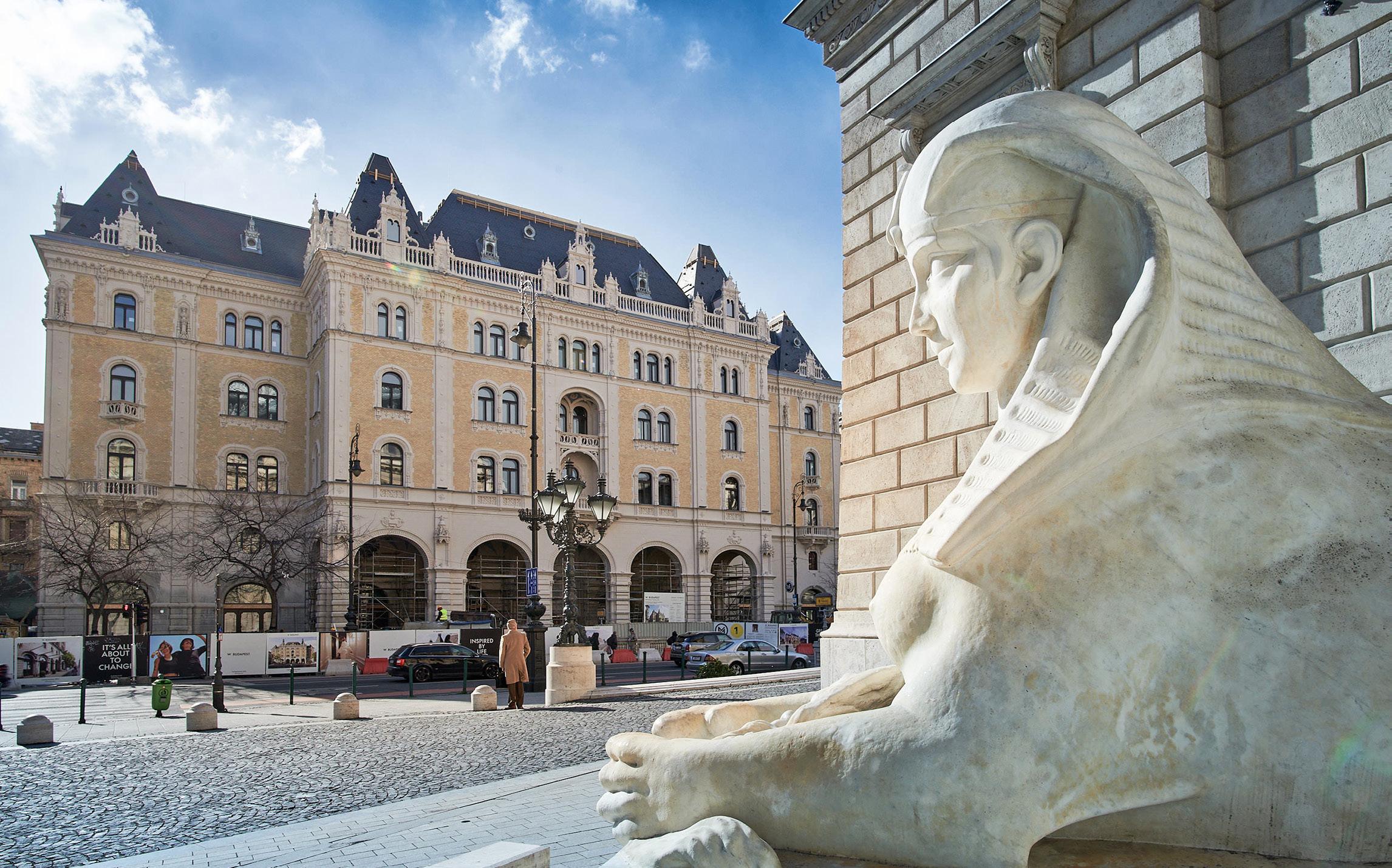
With the relatively positive number of tourist visitors, the hospitality and hotel sector is considered an attractive longterm investment option, although yields are difficult to assess with the current lack of concrete transactions. The Central and Eastern European hotel market is regarded as needing to adopt ESG features in hotels, as is the case in Western Europe.
“The summer looks promising regarding visitor bookings in Hungary. The country is almost back to 2019 levels with regard to RevPAR levels [revenue per available room, calculated by multiplying average daily room rates by occupancy rates].
Certain hotels in Budapest have fully recovered with the return of international visitors,” comments Attila Radvánszki, director of the hotel and hospitality consultancy Horwath HTL Hungary.
Foreign visitor guest nights in commercial and private accommodation for Hungary in April increased by 1.2% year-on-year to 2.88 million, according to the Central Statistical Office. Domestic guest nights fell by 6% to 1.476 million in the same period.
Concerning foreign visitors, German visitors were the largest group at 163,000, followed by visitors from the Czech
Republic (107,000) and U.K. tourists (90,000). However, tourism groups and international conference visitors are still lacking. For example, the expo segment requires more long-term planning and business travelers are increasingly conducting business online.
Total guest nights for Hungary in the first quarter of 2023 were 4.5 million, according to CBRE. Foreign guest night figures represent a 15% year-on-year increase, while guest nights from domestic tourists fell slightly, reflecting the divergence in foreign versus domestic tourism trends.
Further Boost
“While we forecast a further boost to foreign tourism in Budapest, regional destinations might await a weaker season due to falling domestic real income,” CBRE warned. Total guest nights rose by 0.6% for Budapest and fell by 14.5% in the rest of Hungary. Occupancy rates for Budapest for the quarter increased to 54%, putting Budapest in third place among CEE capitals.
“The first four months of the year have been promising; guest nights and occupancy have increased compared to previous years but have not reached pre-COVID levels, but average room rate increases have compensated, and revenues are looking good. Profitability
is still behind, though, due to increased cost levels,” says Péter Takács, a partner at Newmark VLK Hungary.
Total commercial accommodation rooms in Budapest are put at 21,000, with a further 10,000 short-term rental rooms. Radvánszki of Horwath HTL Hungary calculates that around 5,0006,000 new rooms are required to meet demand. Several developments are on hold due to rising development costs and the attractiveness of government bonds compared to commercial property. Many investors are simply sitting out in the current difficult financial and economic environment.
The Budapest hotel pipeline for 2023 is put at seven hotels totaling 1,289 rooms, with a further seven buildings, totaling 646 rooms, due to be delivered in 2024, according to Horwath HTL Hungary. From 2025 and later, the longer-term pipeline is put at 12 hotels with 2,119 rooms. The total from 2023-28 is
26
hotels
totaling 4,054 rooms. The upscale stratum represents 30% of the 20232025 pipeline, with the upper midscale 24% and the luxury segment 20%.
The pipeline outside the Hungarian capital is put at approximately
www.bbj.hu Budapest Business Journal | June 30 – July 13, 2023
The W Budapest, viewed from the Opera House opposite.
3,000 hotel rooms within three to four years, focusing mainly on the Balaton region and larger secondary cities like Debrecen, where they supplement industrial development projects.
CBRE has come up with slightly different figures of its own. It says the pipeline and projects under construction in Hungary stands at 3,000-plus rooms, 2,920 of which are scheduled for delivery this year, and a further 514 rooms in 2024. It says there have been no new projects undertaken as the longer-term pipeline is subdued, reflecting market concerns over demand and costs.
Stronger Occupancy
Horwath HTL expects 2023 to be stronger in occupancy based on the pace of room bookings and the scheduled events for the year.
“The first four months of the year have been promising; guest nights and occupancy have increased compared to previous years but have not reached preCOVID levels, but average room rate increases have compensated, and revenues are looking good. Profitability is still behind, though, due to increased cost levels.”
“Provided this happens with a projected average ADR [average income per room] increase of 5-10%, 2023 could easily become a new record year in the history of Budapest,” says the consultancy. Hungary is only 15% down on the prepandemic high in terms of guest nights compared to 2019, according to Takács.
One example of a developer better known for projects in other sectors embracing the hotel market is the Hungarian regional developer and investor Wing. It has concluded an agreement with Accor for a 12,000 sqm hotel within its 42,000 sqm Liberty office development complex in District IX, an emerging business and sports arena district. Somewhat unusually, this will be a dual-branded hotel with Ibis and Tribe each operating half of the 332 rooms.
The project is scheduled to be delivered by the year-end.
Budapest is now awaiting the arrival of several luxury brands, such as W and Autograph Collection from Marriott, Kimpton and Vignette Collection from IHG (InterContinental Hotels Group), and the Radisson Collection within the next 24 months. Other worldwide upscale brands, such as Mövenpick and Four Points by Sheraton, will arrive on the market soon, according to Radvánszki.
In Vörösmarty tér, the five-star Dorothea Hotel Autograph Collection Budapest will deliver 216 rooms this summer. The complex is being developed by the Hungarian BDPST Group and the Cretum Group, forming Dorottya Investment.

Significant Supply
“Everyone is watching the luxury sector because this is where there is significant new supply coming in: St. Regis (ex-Buddha Bar), W (the former Ballet Institute), Autograph Collection, Sofitel (under refurbishment), and the Gellért should start renovation soon. Budapest and these properties need to attract a significant volume of upscale travelers for these investors to make a good return,” comments Takács.
W Hotels is due to open the 150room and suite luxury W Hotel Budapest following the renovation of the UNESCOlisted Drechsler Palace, the former Ballet Institute, on Andrássy út this summer. The project by the Qatari QPR Properties has been ongoing for several years. It has been subject to a number of delays, reflecting the potential difficulties of developing in the historic center with the stringent and often complex planning regulations that require planning permissions from both city and heritage authorities.
The hotel is aimed at the luxury end of the market. It includes destination restaurants, food and beverage space, and a luxury spa that will be open to the wider public, all in a prime location opposite the State Opera House.
This is part of a notable trend in the Budapest hotel market for purchasing and redeveloping classical Central European buildings into hotels in UNESCOprotected locations. This gives the buildings a use-value while maintaining the feel of the city’s historic center.
The 16,000 sqm Drechsler Palace dates back to
1886.
It was designed in a French Renaissance and neo-Gothic style by Ödön Lechner and Gyula Pártos. It had been left
unused for around 20 years before reconstruction was undertaken by the DVM group with Bánáti + Hartvig Architects as the designers.
CEE hotel yields are difficult to estimate in the current environment. Further, the hospitality market has traditionally been less liquid than, for example, the office sector, as hotel investors tend to be more specific in their requirements and deals can be protracted.
CBRE estimates prime hotel yields for leased hotels moving out to 7.25%, rising to 8% for managed hotels. However, this lacks firm evidence due to the lack of transactions concluded. Takács puts yields for lease-operated assets at around 6% for a 10-year contract.
ESG-compliant
As with other real estate sectors, ESG and EU Taxonomy rules and adherence to ESG standards is increasingly central to a decision on a hotel investment.
“Our task is not only to authentically restore the much-deteriorated building and its interiors but also to prepare it to meet the technical requirements of a luxury hotel,” said the DVM group.
Famous Heritage
The hotel investor and developer BDPST bought the famous heritagelisted Gellért Hotel from Indotek Group. Renovation of the interior into a five-star hotel is due to begin with a scheduled completion date of 2026. Equilor Asset Management, owned by BDPST, has acquired the four-star Sofitel hotel and an adjacent building, also from Indotek. It is also undergoing refurbishment and is currently due to be finished next year.
Outside the capital, the high-end Le Meridien resort in Balatonfüred, on the northern side of Lake Balaton, is scheduled to deliver 102 hotel rooms and four restaurants in addition to 24
residential units in spring 2026. The EUR 6.8 million project, designed by Fazakas Architectural Office, will be the sixth Marriott brand hotel in Hungary but the first outside the capital. CBRE has traced 470 rooms under construction around Lake Balaton.
“ESG is an increasingly important consideration for institutional investors and brands. Investors are now asking whether an opportunity is ESGcompliant, often before asking the price. ESG compliance is going to be a key issue over the next few years and will have a big impact on pricing,” comments Radvánszki.
“It will become an important investment consideration to understand how much CapEx is required to comply with ESG standards; this is particularly important when considering the acquisition and refurbishment of a historic property,” he notes.
If you have a large, branded hotel in a gateway city or prime destination, you must be third-party certified or on track to become so, says Takács. If you are a private hotel investor or want to sell a hotel to a private investor, it is not yet a top priority to have ESG certification, but it is important to be energy efficient.
The obstacles facing developers in Hungary include the scarcity of available financing for hotel projects and the constantly increasing development costs, now reaching Western European levels. For the operators, while the labor shortage is not as pressing as it was back in spring 2022, it is still an issue due to the availability of a talented workforce, according to Radvánszki.
3 Special Report | 11 www.bbj.hu Budapest Business Journal | June 30 – July 13, 2023
“It will become an important investment consideration to understand how much CapEx is required to comply with ESG standards; this is particularly important when considering the acquisition and refurbishment of a historic property.”
The Liberty Tribe rooftop viewing terrace.
‘Revenge’ no Longer Needed as an Excuse to Travel
Travel-crazed Hungarians just won’t stop exploring, with early bookings through the roof against the economic odds.
The Budapest Business Journal looks at the drivers of outbound tourism with a seasoned expert.
Inflation is stuck well over 20% and amounting to three times the EU average, there’s a record weak exchange rate, and the economy is officially in recession. It is not an ideal setup for dreaming of a vacation if you are an average Hungarian consumer. Yet, rather than putting aside as much as possible for a rainy day, 2022 indicated a sweeping desire to travel in Hungary; early bird bookings in 2023 have followed the same path.
Hungarian tourists’ spending abroad hit an all-time high at HUF 1.075 trillion last year, double what they shelled out the year before. Citizens crossed the border
18 million
times, a 36% increase compared to 2021. The length of their stay was also up significantly, by 60%, according to Hungarian Central Statistical Office data.
The immediate post-pandemic era was labeled a time of “revenge travel,” with people making up for missed opportunities and thwarted plans. Now vengeance is not so much part of the equation, but the urgency to go places feels fiercer than ever.
Post-COVID Impact
The post-pandemic era impacted the industry in different ways.
For one, business travel has radically changed, and although migrating meetings online seemed temporary at first, they are more like the norm now.
“Companies prefer to cut expenses by minimizing business travel. However, there are still occasions when the magic of in-person meetings can’t be denied. Take the last Dubai Travel Expo, which drew incredibly big crowds, as usual,” Almásy notes.
The level of tourist activity has surprised the industry, and Gyula Almásy, the founder of the magazine Világjáró [Globetrotter] and owner of Carpe Diem Travel, was no exception. As he explains to the BBJ, early bookings in January and February were unprecedented, and the reasons for them are somewhat unclear.
There are surely some that are still determined to make up for postponed plans, while others want to preempt inflation-induced price hikes by clinching pre-season rates. And then there’s the bunch that spends all that extra cash on some adventure almost by default.
Cutting Cloth
“Even if airfares have doubled and other related costs have soared by 30-40%, travelers are willing to accept all that,” Almásy says. “They might downgrade services or go for a shorter stay, but there’s no way they would stay put.”
Another effect the lockdowns had was to freeze the operation of travel agencies. In Hungary, 998 of them were registered as of 2019, and although many suffered substantially because of collapsed markets, the number is pretty much the same at the moment. So, a cleansing never happened. The emergence of Itaka, a Polish market player, deserves mentioning in this context, as it has lately carpet-bombed the local market with super-lucrative deals. But its campaigns have been running with varying success.
In some instances, the price range clients set no longer quite matches the quality they had in mind, though. This is when they are advised to top up that budget a little so that they get the experience they deserve, he says.
Because of super-strong early bookings, the big “if” is what June brings, and it also remains to be seen what momentum the fall and Christmas will have when it’s time to hit exotic destinations. But for now, it’s the classic destinations topping the charts: Croatia, Greece and Türkiye. The latter is wellknown for its all-inclusive packages offering exceptional value.
All-inclusive was the ultimate buzzword among Hungarian travelers last summer, according to Google Trends, and apparently it hasn’t lost its appeal since then.
“This is what more and more people want, and service providers are adjusting, with a growing number of hotels offering
The good news for travelers is that last summer’s airport personnelrelated issues, which led to lengthy queues, are unlikely to repeat themselves as headcounts have recovered. On the other hand, this year is not without risk, either. Strike waves threaten to turn smooth trips into chaotic nightmares more frequently than before, whether it’s Lufthansa’s personal control workers, French air traffic control staff or Heathrow security personnel (31 strikes are planned between June and August at the British airport).
such deals,” Almásy acknowledges. And it is middle-class families that are increasingly showing an interest in this kind of break as they aim to put a cap on their vacation-related expenses.
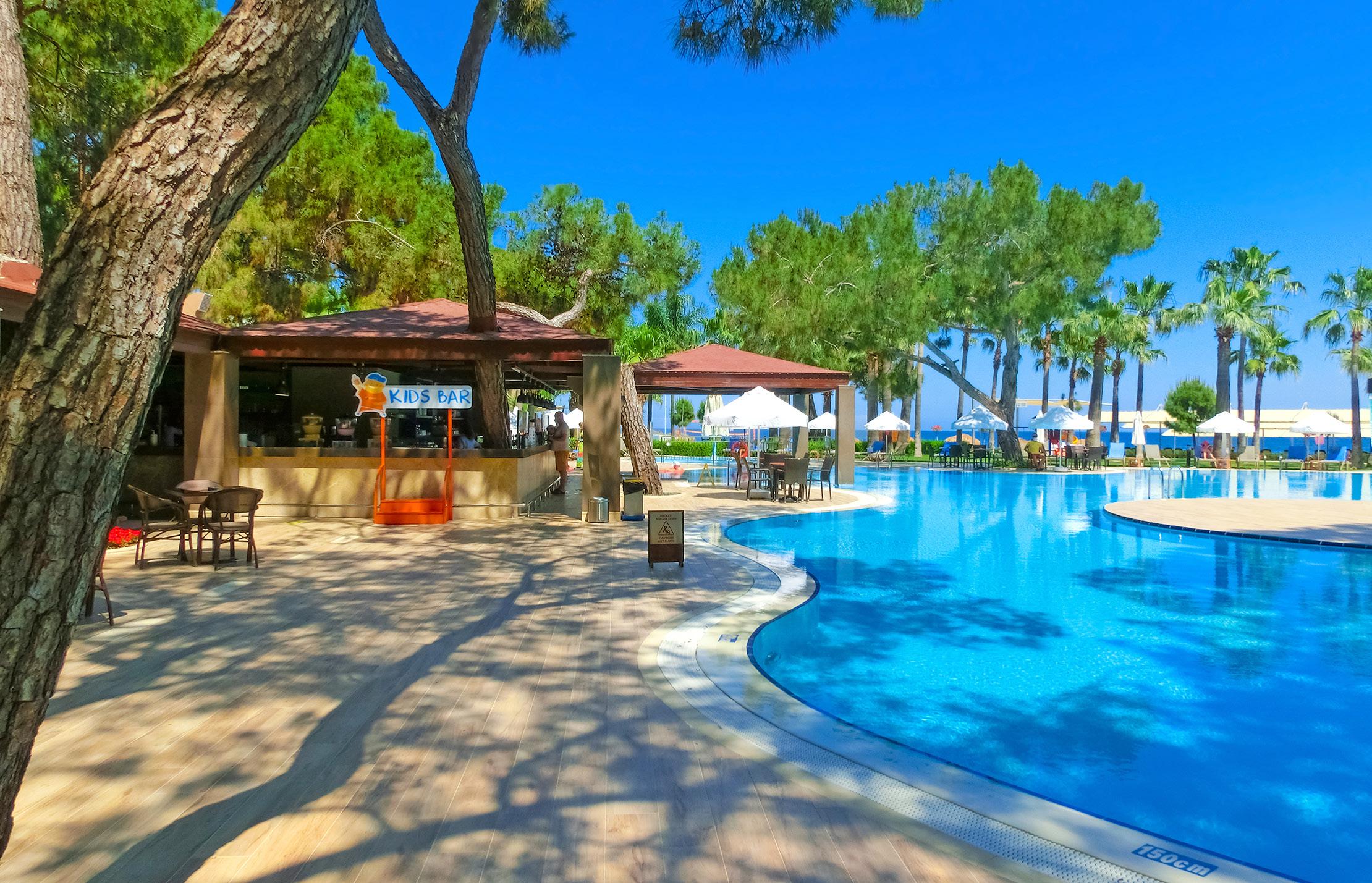
Trending Travel
Also trending is group travel. Popular destinations like Andalusia or Cambodia are fully booked for the fall, a somewhat unexpected development.
The growing demand for cruise travel is apparent as well. Capacities are reaching pre-pandemic levels this year, although the American companies that used to dominate the market aren’t yet a full speed ahead. U.S. tourists are, though, as they fill cruise ships on the Mediterranean. They all want to benefit from the variety of services such vacations offer, from entertainment to the possibility of visiting several places during a single trip.
Travel-related uncertainties that come in different forms place a higher value on professionally organized trips. Travel agencies can provide a stronger safety net compared to when you travel on your own. And having an exceptional personal network works magic, too.
“Once, a client was dissatisfied with a room somewhere in Malaysia, so I gave a call to the general manager who I know personally to sort it out. He did so right away,” Almásy says. He takes pride in being on friendly terms with a vast number of rank-and-file industry pros worldwide.
In most cases, a travel package booked through an agency will cost you much less, thanks to the special deals they can secure. And that’s more than the cherry on top of the peace of mind you get when everything is organized for you in advance and according to your needs.
12 | 3 Special Report www.bbj.hu Budapest Business Journal | June 30 – July 13, 2023
BBJ STAFF
All-inclusive holidays to Türkiye remain popular. View shows the five-star Seven Seas Hotel Life at Göynük, Antalya. Photo by Solarisys / Shutterstock.com
Budapest Airport Must Develop so Hungary can Grow
The Budapest Business Journal talks with Kam Jandu, the relatively new CEO at Budapest Airport (BUD), about his flight path to the top job, developments at Ferenc Liszt International Airport, and future plans.
ROBIN MARSHALL
BBJ: Congratulations on the promotion. You were at the airport for almost 12 years before leaving to work in the management of Munich Airport in 2021. You returned to BUD just over a year later. Could you not keep away, or was this a case of succession planning?
Kam Jandu: Budapest has been my home for almost a decade and a half now, and Budapest Airport has grown on me and become part of my everyday life. I never thought of my positions at Budapest Airport as mere jobs but as a vocation, a commitment. Once you get a taste of the unique world of the airport, it is very difficult to leave. In addition, we have taken on a lovely challenge with our shareholders to make Ferenc Liszt International Airport the best in Europe. We have succeeded in doing so, as this spring, we won this very prestigious international award, while we were also named the best airport in the region for the tenth time. We are just as proud that the global airport rating agency Skytrax Audit has upgraded Budapest Airport to four stars on a scale of five. There is much hard work and perseverance behind these results, and I wanted to be part of the next phase of evolution. It was not succession planning as such, as I left the group and was recruited back to become CCO again. Now, 10 months later, the board nominated me for the position of CEO, which is both an honor and a real privilege.
BBJ: In your previous role as CCO, you flew back to the United Kingdom quite a bit, which you said gave you a chance to understand better the BUD passenger experience and that of other airports. Given the step up to CEO, will you be flying back less often?

KJ: I used to, indeed, but since returning, this is less frequent, even though my two adult daughters and several family members live in the U.K. I think it is imperative that we experience other airports as much as possible to ensure that we remain on track to deliver the
outstanding results we have around quality and best-in-class. There are many services where we are leading the way, and others come to learn from us; for example, the technology behind passenger screening. Of course, there are also processes where we can learn from others and utilize their experience. We are constantly learning from each other, and if we want to maintain quality, this comes from international benchmarks and passenger feedback, not from subjective comments or illinformed opinions.
BBJ: You have said one of your priorities is expanding the number of routes, particularly long-haul destinations to the United States and Asia. Is there any low-hanging fruit here? What should we expect to see added, and when?
KJ: Flights to China are making a steady comeback; recently, we welcomed a flight to Ningbo, a new destination on our schedule. With flights to Shanghai, Beijing and Chongqing, we now provide direct access to four cities in China, and
I am very confident that we will soon be able to bring Xi’an and Chengdu back on our schedule. Seoul, Doha and Dubai were also available from Hungary during the pandemic. Unfortunately, we still have to wait for the North American region: New York, Chicago, San Francisco and Toronto. We have high expectations for next year and our award-winning airline development team is regularly on the road to convince new airlines to start.
BBJ: There always seems to be a construction project about to start, ongoing, or winding up at the airport. The next significant ones are renovations for Terminal 1 (due to reopen with expanded capacity in 2026) and Terminal 3 (phase one to start in 2030). How much will these cost, and what should we expect from them?
KJ: You are right: we have been building, expanding and refurbishing practically non-stop since 2019. We are currently constructing a car park in front of the terminal building and
adding additional stands and warehouse buildings to Cargo City. In four years, airport investments have reached HUF 100 billion, and the two most significant feats are yet to come.
The reason for reopening Terminal 1 is that we need to provide extra capacity for the growing number of passengers until Terminal 3 is completed. Tourism accounts for approximately 13% of the country’s GDP, and the airport is a critical player in this value chain, as foreign tourists are the largest source of revenue in the sector, and they typically arrive in Hungary by air. Tourism can only develop further if there are more foreign visitors; to achieve this, the airport first needs to be expanded to handle up to 20-25 million passengers.
By the end of next year, we will reach our pre-COVID record passenger number, and this can continue to grow dynamically in the coming years if the airport infrastructure is ready. Terminal 1 could serve an additional 4.5-5 million passengers on top of the existing 15-16 million, meaning that we could handle passengers comfortably and with very high quality until the planned opening of Terminal 3 in 2030. Once the building permit is received, construction can start immediately. If this were not to happen, tourism and new trade growth would also stop, which would mean a loss of at least HUF 100 bln a year for the Hungarian economy, including related sectors. Indications show that our plans for Terminal 1 reopening involve a cost of more than EUR 120 million.
In the meantime, preparations for the construction of Terminal 3 are ongoing, with studies and phasing being prepared, and we are preparing for a global design competition. Based on international benchmarks, such a terminal can be expected to cost more than EUR 1.5 bln. In parallel with this, the entire vicinity of Terminal 2 will be renewed to transform the whole airport. We expect from these developments that the airport will be able to serve and support the development of tourism in Hungary, as the country is very attractive for international visitors and also a critical hub for Hungarians to travel to regular and new destinations, so why should we not envisage up to 30 million passengers!
BBJ: Finally, how have you found the step up from CCO to CEO? What has surprised you most?
KJ: Nothing surprised me, as I have been part of the team for almost 15 years, and I know the airport’s past, present and planned future very well. I have learned the bits and pieces of processes over the years; I knew what duty I was taking on. That said, running the best airport in Europe is a lovely challenge, and I will focus on maintaining and improving quality. In addition, it is an incredible experience for me to work with such a strong team and to develop Ferenc Liszt International Airport with shareholders who are thinking long-term and are fully committed to the airport’s continued development and success.
3 Special Report | 13 www.bbj.hu Budapest Business Journal | June 30 – July 13, 2023
PRESENTED CONTENT
Kam Jandu, CEO at Budapest Airport (BUD).
Destination Budapest Back on the Bucket List
“We greatly value our partnerships with local chambers and businesses, as they allow us to showcase our expertise and serve our guests with passion and dedication, and we look forward to hosting these events in the future,” Klehn notes.
All these positive trends suggest Budapest can prevail against its regional rivals. The average room rate may be just one benchmark, but in that category, the Hungarian capital is already ahead of Warsaw, Bratislava and Prague. According to a recent Christies report, the overall CEE region continues to be seen as a growth engine in the European Union, Klehn recalls.
He believes the strategy to bring major sports events such as the upcoming World Athletic Championship this year from August
19-27
The lockdowns seem like a distant bad dream, and the presence of tourists on Budapest’s streets is a reminder of pre-pandemic times. Although not yet back at pre-COVID numbers, the latest statistics confirm the trend: in 2022, the number of guest nights in the country was up nearly 40% from 2021, while revenue in the hotel segment grew by a factor of one and a half.
The upwards trajectory has left its positive mark on the operation of the Budapest Marriott Hotel, which claims to have been the first international hotel in the Hungarian capital.
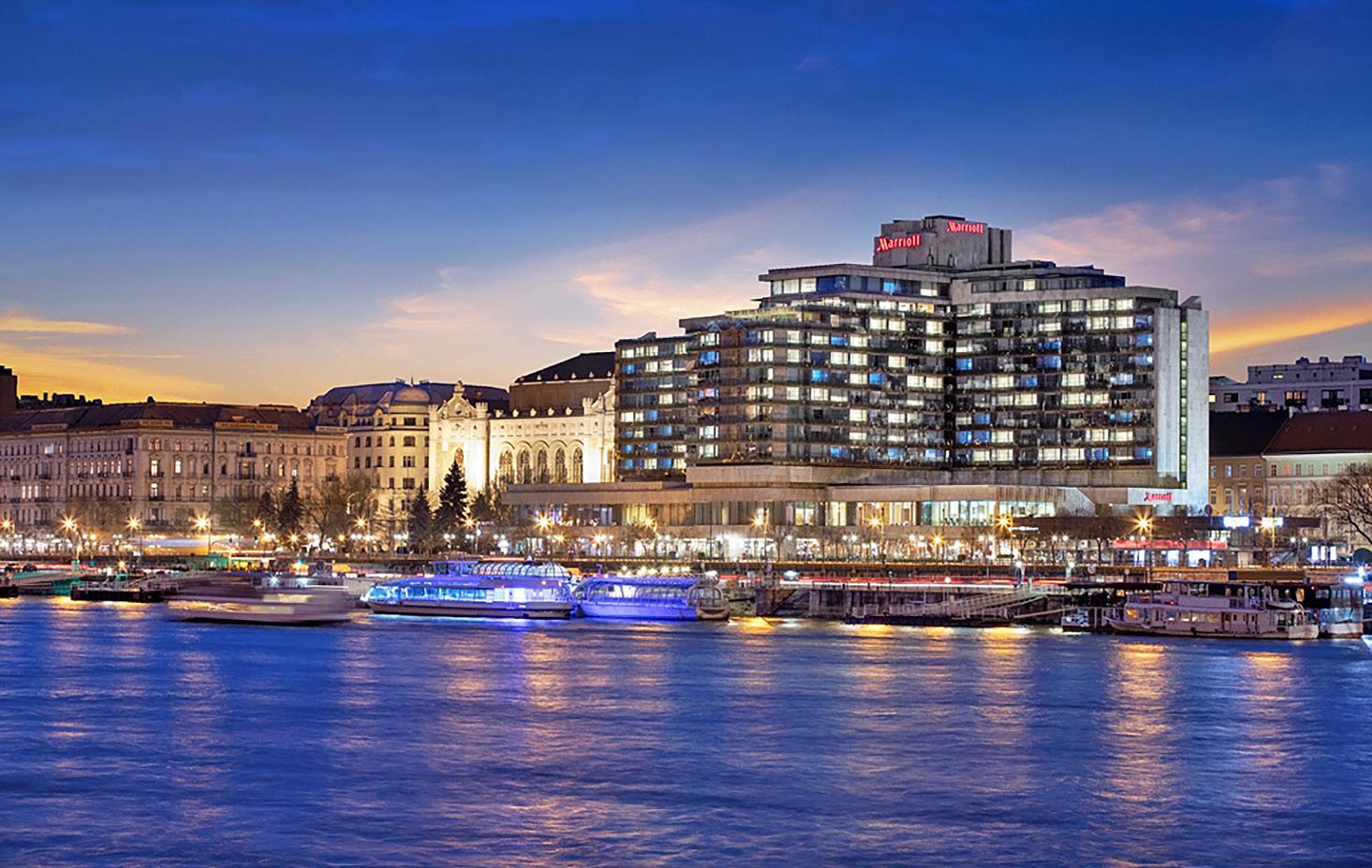
As multi-property general manager Arne Klehn explains to the Budapest Business Journal, various factors contributed, such as expanded tourism offerings, city-wide events like the
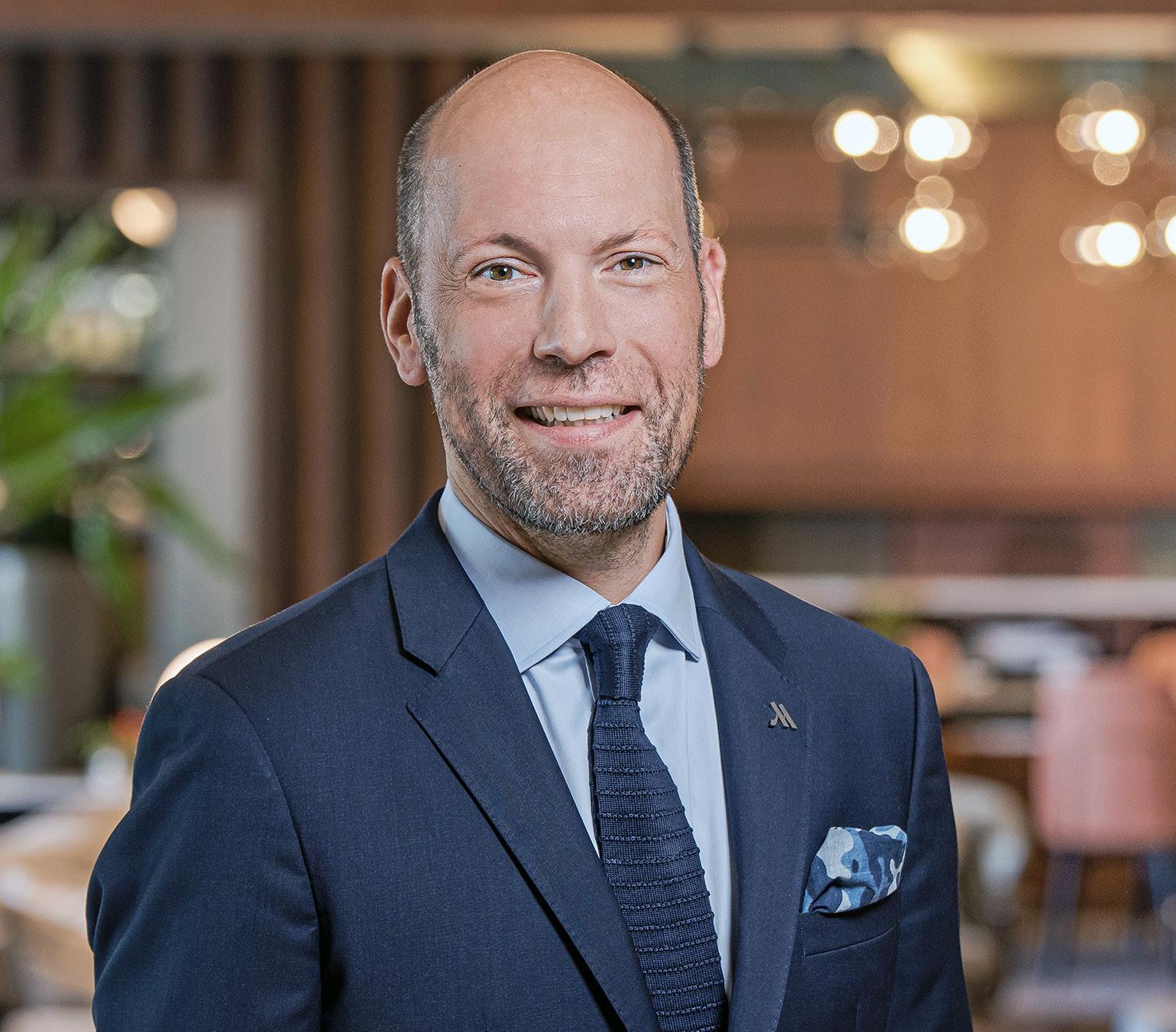
2022
Fina World Aquatics Championships, as well as the returning Formula 1 Grand Prix.
Apart from that, enhanced marketing campaigns by the Hungarian Tourism Agency and the development of new tourist attractions gave further impetus to growth. The fact that the Hungarian
forint lost value to the euro and the dollar also helped usher foreigners in the direction of Hungary. Overall, spending has jumped significantly, with Q1 2023 figures growing by one-third year-on-year. Business travel has been reshaped by the rules of the pandemic that pushed companies towards virtual meeting spaces. However, this shouldn’t be generalized, as evidenced by Marriott’s figures. Given that the hotel says about 45% of the total rooms sold were associated with this segment, it seems to have kept a solid base in the corporate field. Yet, that doesn’t mean nothing has changed.
Changing Face
“Former volume-producing companies, which once played a major role in the market, have experienced a significant decrease in production,” Klehn explains. “This decline has prompted new players in the industry.”
One key factor is the Hungarian Investment Promotion Agency, which has done award-winning work in attracting foreign investors and promoting Budapest as an ideal destination for business. Additionally, the film sector is of significant importance to Budapest’s overall economy. The city has become a prominent film production location, attracting domestic and international filmmakers. Prominent industry experts have emphasized the necessity of positioning Budapest as a luxury destination, and investors seem to agree that the city has untapped potential in this regard. Marriott International alone has scheduled significant openings from among its brands this summer, such as W Hotels, the Sheraton, and the Autograph Collection. Other projects planned to be up and running in the next couple of years foretell that more than 1,000 new five-star rooms will be available soon.
Klehn sees luxury lying beyond material possessions, instead looking for intangible qualities like the quality of time and well-being and a generally more balanced and fulfilling lifestyle. Today’s luxury travelers expect their vacations or travel to be unique and experiential.
Luxury Options
“Budapest has been one of the destinations with limited growth over the past decades, and we believe that by combining all the planned openings and presently open hotels, we will provide our guests and members with a wide range of options for experiencing this magnificent destination,” he adds. An upgraded hotel with breathtaking views, the Marriott is well-known for hosting high-profile events throughout the year.
and the Chess Olympiad in 2024 (September 10-23), among other reoccurring highlights, pays off in attracting more tourists.
“One opportunity would be to further invest in more long-haul direct flight connections towards U.S. destinations and to expand airport activities generally,” the Marriott GM concludes.
Labor Shortage not an Issue
Achieving steeply growing visitor numbers hasn’t come without challenges for the hospitality sector. For one, government support programs and subsidies do not apply to the specific circumstances of multinational hotel chains. On the other hand, the impact of the energy crisis didn’t pass overnight, forcing Marriott to continue looking for energy efficiency opportunities to mitigate the financial burden.
But what about the labor shortage, a critical issue that strains all sectors, particularly tourism? It seems Budapest Marriott might be an exception that proves the rule.
“We are not as concerned about staffing as we were in prior years; we have a team of dedicated employees who make our workplace a friendly and inclusive atmosphere,” multiproperty GM Arne Klehn says.
A vital ingredient of the secret sauce, he believes, is that the chain appreciates the idea of “belonging” and has made it a part of its company culture. It also supports the advancement of apprenticeship programs, fostering the growth and development of aspiring professionals. And to tap into global talent, it seeks to streamline work visa processes, particularly for individuals from outside the European Union.
14 | 3 Special Report www.bbj.hu Budapest Business Journal | June 30 – July 13, 2023
BBJ STAFF
Ever more foreigners are not only putting Budapest on their bucket lists but also crossing it off after a happy visit just to put it back on for a return. The analysts say the appeal of Hungary’s capital is also improving among high-end travelers.
Arne Klehn, Marriott multi-property general manager for Budapest.
PRESENTED CONTENT
The exterior of the Budapest Marriott Hotel.
Budapest Airport is the best in Europe
Thanks to the hard work of the airport community a huge award landed on our runway.

ASQ Awards 2022
(Category: 15 to 25 million passengers per year)
BUD.HU
Embracing Budapest as a Luxury Destination
Budapest has been a pleasant surprise for French hotelier Thibaut Drege, the general manager at Four Seasons Hotel Gresham Palace. He believes the city as a destination has great potential. He emphasizes the capital’s beauty, particularly its stunning architecture, and describes it as an undiscovered gem that has much to offer.
 ROBIN MARSHALL
ROBIN MARSHALL
“I discovered the city one year ago, just coming for a weekend. It was a last-minute plan, not knowing that I would end up living here,” says Drege, who previously held the hotel manager position at the Four Seasons George V in Paris, a flagship property of the brand.
Drege believes that travelers are increasingly seeking cities with a distinct character, which Budapest, with its strong sense of identity, historical significance, cultural richness, and artistic expertise, clearly meets.
“I came from one of the most iconic hotels in the world. If you ask me, Gresham Palace is likely the most beautiful hotel in the portfolio of Four Seasons, or at least the most beautiful city hotel,” says the GM, who took up his role in January of this year.
The hotelier says that Budapest’s unique charm and potential not only continues to captivate visitors with its stunning architecture, but also intrigues competition. New high-end hotel brands are entering the market, presenting a chance for Budapest to attract luxury travelers seeking authentic experiences. Some consider this competition a threat, but Drege says he sees it as an opportunity to establish Budapest as a more prominent luxury destination.
“The only thing very high-end guests are looking for is how to spend their
money. So, you need to give them a good reason to do so, basically,” Drege reasons. “I think this destination, this hotel are already good reasons. But, if they can spend their money in another Michelin-star restaurant, that’s even better; if they can spend more money in a luxury shop, more so,” he adds.
Embracing innovation will be essential for keeping ahead in Budapest’s luxury hospitality business as the market expansion increases. Drege’s earlier career had a strong gastronomic background. The Four Seasons George V Paris is famous, among other things, for having the most Michelin stars under one roof, with its three dining venues boasting five étoiles between them. Drege says he always emphasizes the importance of creating outstanding culinary experiences that appeal to both visitors and to local audience.
“The focus of a hotel restaurant is, of course, to please the guests visiting the city. But we also would like to connect with the local community, and that is a clear strategy we aim at with Kollázs, but the same is true for our luxury craft cocktail bar, Múzsa.”
But even with his extensive professional experience, and the success that Kollázs already enjoys, Drege does not consider Michelin star as a short-term goal.
“Am I aiming for a star in Kollázs? I believe F&B concepts do not always have to be linked to Michelin stars,” the GM teases. “That doesn’t mean that maybe one day, we won’t come up with a concept that could go in that direction.”
Whether it’s restaurant has a star or not, the continued success of the hotel will be built around the staff. That is something of a returning theme for the GM because he says it is the people
who make the difference, and that is what sets Four Seasons apart from its competitors.
“I think we have an amazing team here with a great mindset and with great craftsmanship,” Drege enthuses.
The general manager position represents a step up from hotel manager, although his role at the George V in some ways was an ideal preparation for the Gresham Palace.
“The hotel manager basically runs the day-to-day operations, ensuring that whatever we stand for, we deliver. The general manager has a more strategic approach, is more involved in the owner relationship and has a longer-term vision in terms of the hotel’s future,” Drege explains.
“You don’t have that many cities with such a beautiful Opera House, with such artistic expertise. It’s not only about music; it’s about dancing, it’s about food, it’s about wine. I think more and more people want to go to cities with a real sense of place and to have a hotel and a destination with its own identity. You have such a strong identity here, which has been built through history.”
“I was extremely lucky because, working at the George V, I was also part of all of the above. But there is always a significant difference: accountability, which comes with the moment you are in charge,” he adds.
Drege says he is strongly optimistic about Budapest’s potential and unique appeal in the face of escalating market growth. The Hungarian capital has the chance to become a well-known luxury destination while providing exceptional value for money to luxury visitors in the aftermath of the pandemic by embracing innovation, increasing guest experiences, and leveraging its strong identity and cultural diversity, he argues.
“There is history, there is beauty, there is culture; there is a character here,” Drege says. “You don’t have that many cities with such a beautiful Opera House, with such artistic expertise. It’s not only about music; it’s about dancing, it’s about food, it’s about wine. I think more and more people want to go to cities with a real sense of place and to have a hotel and a destination with its own identity. You have such a strong identity here, which has been built through history,” he argues.
16 | 3 Special Report www.bbj.hu Budapest Business Journal | June 30 – July 13, 2023
Thibaut Drege, general manager at Four Seasons Hotel Gresham Palace.
‘Bringing Back to Life’ Hungary’s Castles and Palaces
In December 2022, Zsanett Oláh was appointed head of the NÖF National Heritage Protection and Development Non-profit Ltd., which is responsible for the asset management of more than 50 monuments in Hungary. The organization also implements the National Castle and National Fortress Programs. We asked the managing director about NÖF’s recent achievements.

BBJ: What was your vision when you took over NÖF at the end of 2022?
Zsanett Oláh: I aim to make this state-owned non-profit company with national coverage and scope a proactive organizing force in municipalities with historical monuments. I also want to create opportunities for grass-roots initiatives tailored to the needs of local communities while at the same time bringing the national heritage network into the international tourism space. I believe it is essential that our monuments and built heritage are not only kept alive by the memory of local communities. This can be achieved by integrating them into the everyday lives of local people. My aim is to restore these centuries-old assets to their original function as economic, cultural, tourist or knowledge centers, and to bring them back to life and make creative use of them as an opportunity to become one of the most exciting social innovations of rural life.
BBJ: NÖF is a non-profit organization. What resources are available to you?
ZsO: Our company covers its costs from public and European Union subsidies and the turnover of the company.
BBJ: NÖF manages and develops the assets of more than 50 of Hungary’s most important monuments. Which would you highlight in particular from the overall portfolio?
ZsO: Every location is unique in its way. No two monuments are the same; each has a different charm. So, I’ll focus on our outstanding achievements:
• This year we opened the Kinizsi Castle in Nagyvázsony (136 km southwest of Budapest by road), Sümeg Castle (174 km southwest), the Zrínyi Castle in Szigetvár (226 km southwest), the Museum Quarter and the Ruin Garden connected to the castle wall in Sopron (217 km west), and the Castle of Füzér (268 km northeast).
• The Nádasdy Castle in Nádasdladány (92 km southwest of the capital), which could not function as an independent tourist destination before its complete renovation, welcomed its 150,000th visitor in just one-and-a-half years since its reopening on August 1, 2021, which is an excellent professional success. In December 2022, the castle was also honored with the Architecture of Excellence Award.
• The Sándor-Metternich Castle, a classicist mansion complex in Bajna 48 km northwest of Budapest, is one of our most impressive sites, which was recognized by the Icomos Hungarian National Committee with the Icomos Award in 2021.
• Another matter of great pride is that Wenckheim Palace in Szabadkígyós (221 km southeast of Budapest) won this year’s Business Excellence Audience Award for “Best New Market Player,” created by the editors of Business Traveler Hungary magazine. The 2023 Cycling Route of the Year leads to this castle.
• We joined the Night of Museums again this year on June 24 with a large number of venues and welcomed nearly 15,000 visitors.
BBJ: Which are the most significant projects under the National Castle and National Fortress Programs?
“My aim is to restore these centuries-old assets to their original function as economic, cultural, tourist or knowledge centers, and to bring them back to life and make creative use of them as an opportunity to become one of the most exciting social innovations of rural life.”
ZsO: Within the framework of the respective programs, a total of 17 castles and 11 fortresses have or are being renovated between 2016 and this year to the highest professional standards of monument protection and in line with today’s tourism needs. A total of HUF 52.105 billion will be invested in the projects under the Operational Program for Economic Development and Innovation (Ginop) program. Of this, HUF 43.548 bln is EU money and HUF 8.557 bln comes from the state coffers. A further HUF 4.324 bln of pure domestic funding will be used. The most notable
projects in terms of funding are the Eszterházy Castle in Fertőd (189 km west of Budapest); Festetics Palace in Dég (100 km southwest); the Museum Quarter and Ruin Garden in Sopron; the Wenchkheim Palace in Szabadkígyós; and the Károlyi Castle in Füzérradvány (267 km northeast).
BBJ: What is on the agenda for domestic and international visitors this tourist season?
ZsO: A range of activities for the whole family. There’s a petting zoo, a bird park, a miniature railway, a horse show, crafts, and museum education for the little ones. All of our sites are also part of the Kajla program for young schoolchildren [the aim of which is to encourage young people to develop an interest in tourism within Hungary and to acquaint themselves with the diverse cultural heritage, natural resources and historical monuments that the country has to offer through discounted travel], so there are plenty of “passport” stamps to collect. Youngsters can enjoy music concerts, garden cinema screenings, interactive equipment in the exhibition spaces, tempting selfie points, shaded picnic areas in the castle gardens and lawns for light sports. But we’ve also considered the arts-loving public with jazz and classical music concerts, theater performances and special guided tours. In addition to cultural, social and sporting experiences, most castle gardens are also open to responsible dog owners.
3 Special Report | 17 www.bbj.hu Budapest Business Journal | June 30 – July 13, 2023
BBJ STAFF
PRESENTED CONTENT
Zsanett Oláh, head of the NÖF National Heritage Protection and Development Non-profit Ltd.
Tourism and Business Travel Driving Hotel Occupancy
Stephan Interthal of the Kempinski Hotel

Corvinus Budapest is one of the bestknown and longestserving general managers of an international hotel in Hungary. The Budapest Business Journal asked him to reflect on the year to date, the challenges framing business, and state support for tourism.
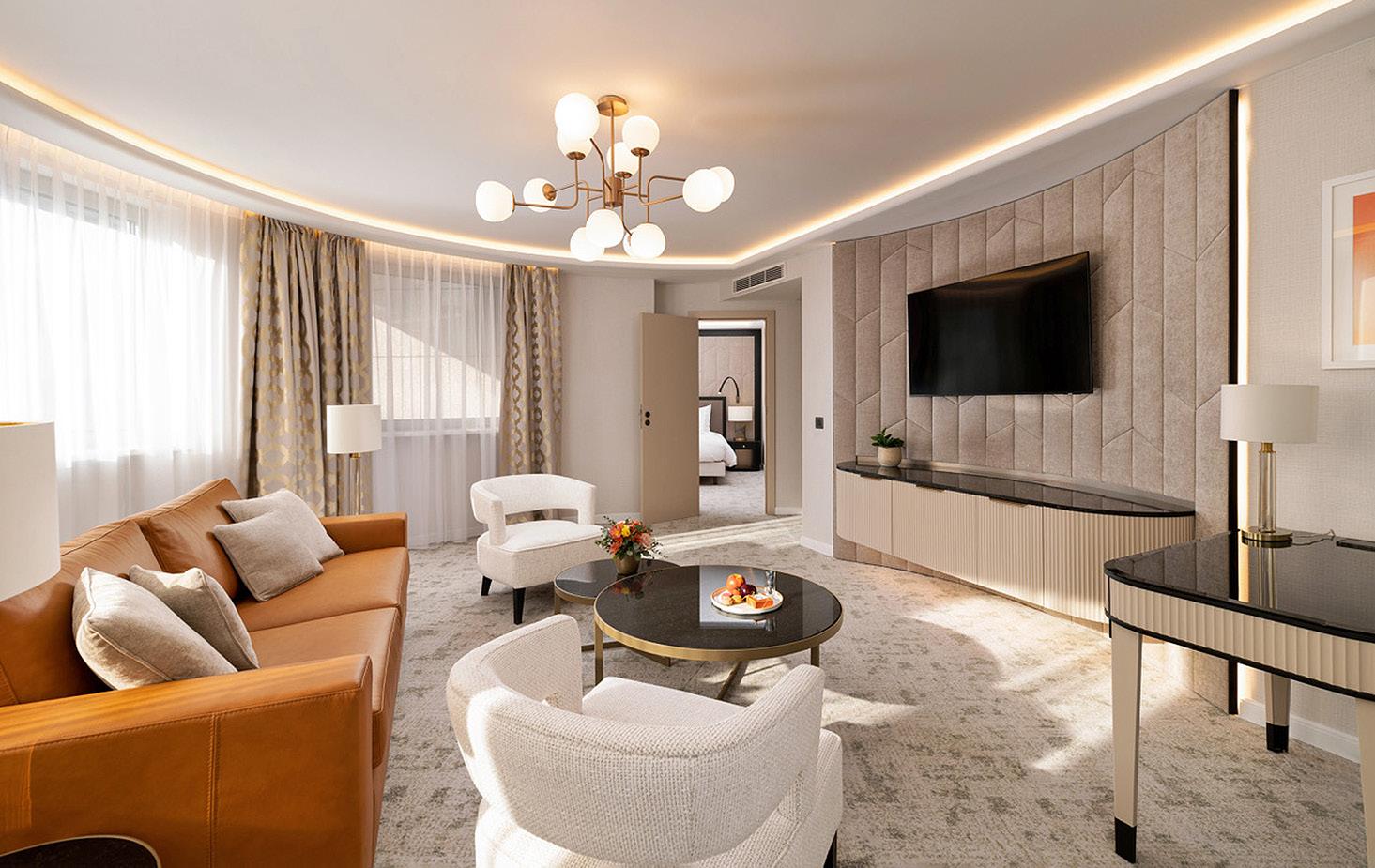
BBJ: What are your expectations for the 2023 business year?
Stephan Interthal: As we are already halfway into the year, I can say that our expectations after the third and fourth quarters of 2022 were already quite ambitious; so were our budget numbers for this year. It is very likely that we will over-achieve our expectations and show a performance at year-end over and above the budget, and definitely over and above that of 2019 [the last full year before the pandemic]. Therefore, all in all, 2023 will be a successful year from the revenue side. On the other hand, we are also realizing that the costs of doing business are increasing significantly year-on-year, putting pressure on our margins.
BBJ: Does the ongoing war in Ukraine have a dampening effect on any parts of the market?
SI: It pains me to say that the Ukrainian war, as we are here today, has no dampening effect on the market anymore. Sadly, it has become normal, so we have to deal with that reality. I would assume that there are limitations in some markets, and there is also limited demand for Mice [meeting, incentives, conferences and exhibitions] business. We have lost the entire Russian market, which was very solid (not substantial,
but very solid), as a consequence of the Ukrainian war. Moreover, due to COVID19 and its aftermath, we still have not seen the Chinese market coming back. So, there is some dampening effect, but, on the other hand, we can gladly say that we are showing a serious increase in other markets, such as Israel and the United Kingdom. The United States is also back; not at the same level as before the coronavirus and the war, but it is back. Overall, we have no complaints, but, of course, from humanity’s point of view, we wish the Ukrainian war would be over tomorrow. There is no question about that.
BBJ: In which sector (tourism, business, MICE) do you see the most growth right now? How do you expect this to change, if at all?
SI: The biggest growth is definitely in tourism and business. Mice is not growing, and I don’t think it will grow back to its level before coronavirus. I think larger meetings with 150 or more participants will be more selective or even more digital in the future, with business intelligence, etc. On the other hand, we have leisure groups. Budapest and Hungary, as a whole, are very attractive leisure destinations. There is very good value for money, as it is perceived that every euro is worth 1.5 here in Hungary. I see the tourism sector as growing. Business may not be growing, but it is positive and solid.
Notably, Mice has not grown for quite some time. We are not concentrating on volume but on stable occupancy with a very good average rate, eliciting a nice RGI [Revenue Generating Index] or RevPAR [revenue per available room] in the future, possibly in the next two-to-three years.
BBJ: How much of a problem does staff recruitment and retention pose?
SI: I have been asked this question for years. We are all dealing with and working in a limited labor market. We are in a very employee-friendly environment, so people can change jobs tomorrow. However, relating this to Kempinski, I can say that we experience a high degree of loyalty and dedication from our staff. In fact, we have many returners. When we rebounded after COVID19, we had a nice recovery, and I think our loyalty towards our team, having retained 150 employees during the entire coronavirus period, has paid off in the end. Finding and retaining employees is a difficult and critical situation, but we deal with it. We have reason to be concerned but no reason to complain.
“The biggest growth is definitely in tourism and business. Mice is not growing, and I don’t think it will grow back to its level before coronavirus. […] On the other hand, we have leisure groups. Budapest and Hungary, as a whole, are very attractive leisure destinations.”
BBJ: How happy are you with the promotion of Budapest as a destination and the support for your industry, in general, from the authorities?
SI: I attended the general assembly of the Hungarian Hotel Association a few weeks ago, and I saw the presentation of the deputy CEO of the Hungarian Tourism Agency. Honestly, I did not know about the many initiatives and activities the agency has rolled out or is about to roll out on the destination, Budapest, Hungary, the countryside, and various regions. I was really impressed, along with the other 300 participants, with what is planned to happen or what is already going on. Understandably, we had some breaks during the pandemic and the war, and there were a lot of personnel changes within the agency. I now have the feeling that they have a plan, and they clearly see the rollout of destination marketing. Budapest is the main destination, but there is also a focus on different regions because Hungary has more to offer than just Budapest and Balaton.
18 | 3 Special Report www.bbj.hu Budapest Business Journal | June 30 – July 13, 2023
ROBIN MARSHALL
Stephan Interthal, general manager of the Kempinski Hotel Corvinus Budapest.
Reborn Drechsler Palace Promises ‘Originality and Curiosity’
throughout the hotel, mirroring icons from the city, such as the Hungarian State Opera House, the Széchenyi Baths and neighboring buildings on Andrássy Avenue.
“When we started the project, we were presented with a rich feast of inspirations from which the various narratives were born, one of which was Hungary’s famous export, Harry Houdini, and his life’s work inspired our ‘grand illusion’ design narrative,” explains Bowler James Brindley.
Optical Illusions
“We have used mirrors in creative ways throughout the hotel to create optical illusions on ceilings, walls and floors, allowing Harry Houdini’s legacy to live on through W Budapest’s illusionary aesthetic.”
Houdini was not the only Hungarian celebrity from whom the interior design draws inspiration, however.
“Zsa Zsa Gabor, another celebrated Hungarian who was at the vanguard of introducing European sophistication to Hollywood in the
1940s,
has also been celebrated through playful touches of retro glamour.”
Originally from Switzerland, Buercher speaks German and English fluently and has more than 25 years of experience in the hospitality industry. Having lived in multiple countries, including 12 years in the United States, he brings a wealth of luxury knowledge from GM and leadership roles in New York, London, Greece, Azerbaijan, Turkey, and Stockholm. Most recently, he was the opening GM at two W Hotels in Ibiza and Amsterdam.
“I am excited to be opening the first W Hotel in Eastern Europe along with my team. W Hotels embraces originality and curiosity, much like the spirit and character of this beautiful city,” Buercher says.
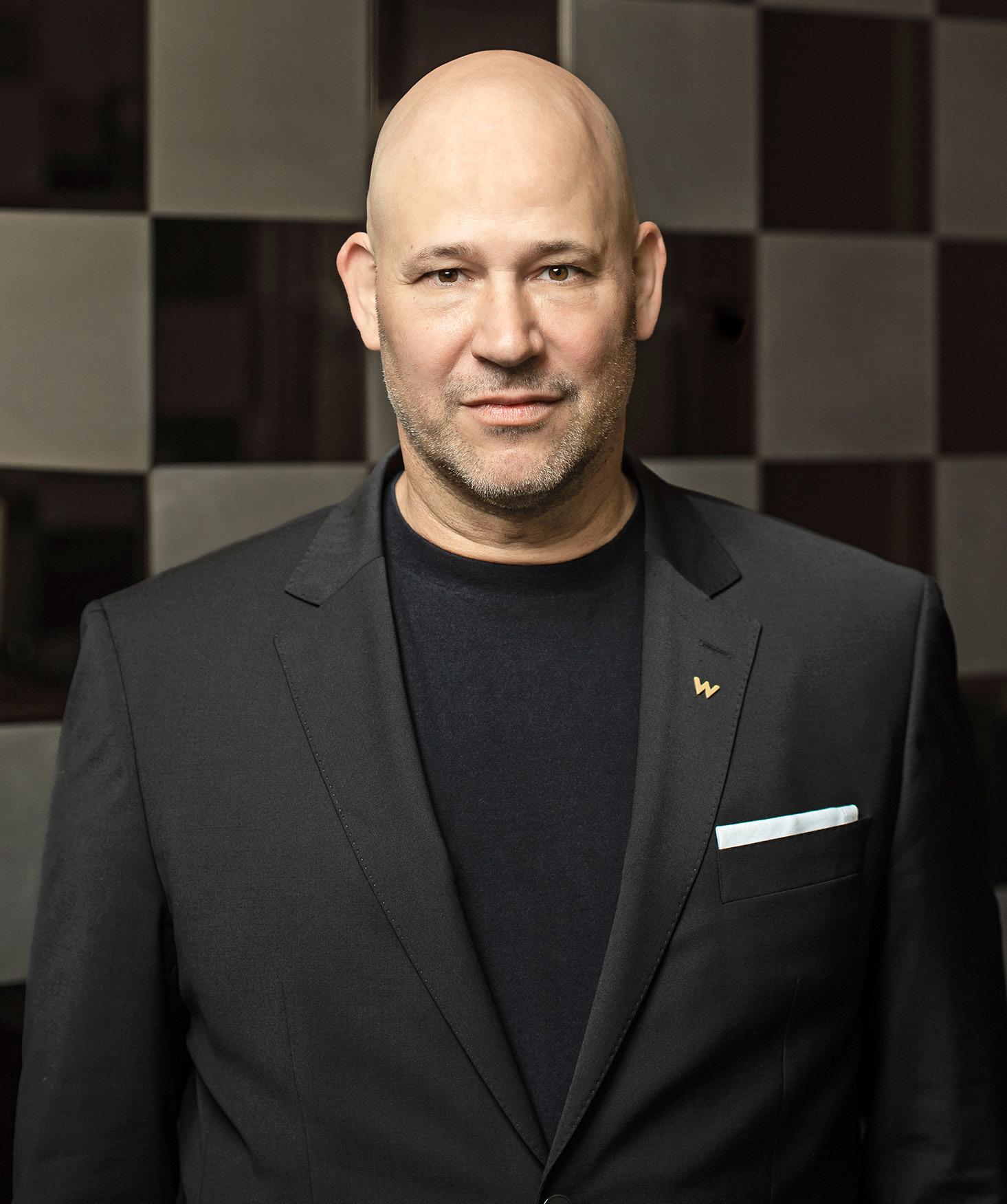
“W Budapest is set to be an authentic destination for locals and visitors to connect and be inspired, and we can’t wait to welcome you all this summer.”
Located on the UNESCO World Heritage-listed Andrássy Avenue, directly across from the State Opera House, the W Budapest will re-open its doors in July. The original Drechsler Palace was built between 1883 and 1886 to the designs of Ödön Lechner and Gyula Pártos. The Drechsler Café was home to the Institute of Ballet and the State Artistic Institute.
Part of the Marriott International stable of brands, the hotel promises “visionary design, eclectic gastronomy, and a socially driven spirit drawn from the cosmopolitan capital.”
Exciting Chapter
“The arrival of W Hotels in Budapest will offer an unexpected, captivating hotel experience and an exciting next chapter for the iconic Drechsler Palace,” says Jenni Benzaquen, SVP for Europe, Middle East and Africa Brand Portfolio at Marriott International.

W Budapest will have
151 guestrooms and suites, including one so-called “Extreme WOW” presidential suite. Nightingale, the hotel’s destination
restaurant, a bar, and W Lounge will be open to locals and travelers as a place to connect. It will also offer three meeting and event spaces, including a “Great Room” for larger-scale celebrations, alongside a spa, fitness center, and pool.
The original inner courtyard at the heart of the Drechsler Palace is newly enclosed by glass to protect the space from the elements. The fifth floor’s unique wooden-centric design is sympathetic to the original roof that has been restored.
The ornate building has been restored and transformed by interior designers Bowler James Brindley of London and the Hungarian Bánáti + Hartvig. According to the hotel’s publicity team, the studios drew inspiration from the palace’s rich cultural history and multiple identities as a café, social hub and former Hungarian State Ballet Academy.
The designers talk of a “Loire Valley-inspired French Renaissance architectural aesthetic” that features
The interior also celebrates the building’s past associations with dance through soft pink hues and curved lines “inspired by graceful fluidity.” The “ballet etoile” aesthetic is celebrated in the all-black Extreme WOW suite and all-white WOW suite, taking inspiration from Swan Lake.
The hotel also nods to the city’s love of chess throughout its “Budapest Gambit” design. Chequerboard patterns make unexpected appearances, including monochrome tiled marble flooring, a chess board-inspired ceiling mirror in the W Lounge (a signature feature of W Hotels across the world), guestrooms that feature black and white tiled walls and recesses, and lamps that emulate chess pieces to bring soft lighting throughout the hotel.
Artwork throughout the hotel that intends to “spark conversations and connections” has been created by Adam Ellis Studio. Highlights include a tapestry trio of Hungarian mythological creatures made from grasscloth and a welcome area dressed in green and gold metallic artwork detailing Houdini’s famed aviary of tropical birds suspended from a chandelier chain.

3 Special Report | 19 www.bbj.hu Budapest Business Journal | June 30 – July 13, 2023
Igor A. Buercher, general manager of W Budapest, is busily preparing the much-anticipated Andrássy út hotel ahead of its summer opening. The building will, he promises, embrace “originality and curiosity.”
BBJ STAFF
Igor A. Buercher, general manager of W Budapest.
Tackling the Urban-Rural Gap and HR Challenges in the Tourism Industry
How are the war in Ukraine and HR challenges in the hotel industry shaping the Hungarian tourism market? Is there a gap between urban and rural tourism destinations? We spoke with Zoltán Somlyai, CEO of BDPST Hotel Management Zrt., about the most relevant issues in the industry and the firm’s move towards the premium segment.
BBJ: What is Hotel Management Zrt.’s overarching philosophy, and how many hotels belong to the group?
Zoltán Somlyai: When we formulated the basic vision of BDPST Hotel Management Zrt., the hotel management and development consultancy company of BDPST Group, our goal was to provide a transparent, high-quality hotel management service based on international standards, which would give us a competitive edge over competitor companies. We offer the widest range of hotel services at every project stage. These are not limited to a single type of hotel; our references include operating and/or owning urban business hotels, mansions, wellness hotels and bed and breakfast establishments. At the moment, we are operating four hotels: the first five-star hotel in BorsodAbaúj-Zemplén county, the Andrássy Kúria & Spa; the Botaniq Turai Kastély, located 50 km from Budapest; the fivestar Verno House next to Szabadság tér; and the Lifestyle Hotel Mátra in Mátraháza. We operate all these with an expanding, renowned group of experts with decades of international and national experience in hospitality.
BBJ: You mentioned experienced colleagues. Is there a steady supply of professional staff?
ZS: The owners of BDPST Group have built the team with excellent insight and strategy, even in times of crisis. During the pandemic, when many employers got rid of employees, we not only retained colleagues but continued to build. In addition, we are finding that we have a good reputation in the profession, which is why professionals are keen to join us. From renowned hotel industry managers to talented chefs, we’re confirming new recruits.
BBJ: Speaking of crises, how has the war in Ukraine affected tourism?
ZS: Any international disaster is felt immediately in tourism, but the public’s capacity to accept it has accelerated. Tourism is responding to the upheavals of recent years, such as the economic crisis, the coronavirus pandemic, and now the war; it has recovered more quickly because people have a tremendous need to travel and relax. However, there is also a difference between nations. For example, an American citizen will not attend a conference in Budapest but will travel to the Spanish capital. It is very noticeable, and not only for the American traveling public; if there is a hindrance to travel or even to hospitality in any country, it is felt by other nations. I would say that if a German coughs, a Hungarian gets sick! Tourists from neighboring countries are increasingly opting for Hungary. This is sort of a legacy of COVID; perhaps because of uncertainty, they do not want to choose a more distant destination, but this can boost tourism in Budapest and the countryside.
BBJ: Is there a gap between tourism in the capital and rural areas?
ZS: There is still a vast gap between Budapest and the countryside; many locations and regions in Hungary deserve a better fate and more attention. However, we often start from the assumption that a Hungarian family visits a rural spot (for example, the wonderful scenery of Zemplén) and says that if it were in another country, it would be considered a great attraction. This is why more development and marketing are needed to improve the standard. The countryside has developed a lot, but many still question whether it can progress enough to overcome decades of backwardness. Examples include the Tarcal mansion and the Bobajka restaurant, long owned by the Andrássys, which opened as a hotel in 2008 in the middle
of an economic crisis. We took over its operation in 2017, and then, following the parent company’s guidelines, several developments and expansions were launched, unprecedented in the region. Recently, we purchased the winery next to the hotel, where we created a 150-seat conference room. We are also developing the wellness area of the mansion.
So far, the region, the home of the worldfamous Tokaj wine, is not getting the attention it deserves. Perhaps one reason for this is that, although there is great demand for travel, purchasing power is diminishing, and tourism is a market for disposable income. Individuals and companies could travel twice a year; international visitors come to the capital, while in the countryside, there is domestic tourism, with Hungarians generally looking for spa towns, as are ever more people from neighboring countries.
In the metropolitan segment, Verno House and the Flava Kitchen & More restaurants have great potential, an excellent location, and a new product, having been open since December 2022 in the heart of Budapest as a five-star hotel. Also opening soon in Budapest will be our exclusive private club, Botaniq Budai Klub, the latest addition to our own premium Botaniq Collection brand.
Zoltán Somlyai Bio Box
Zoltán Somlyai is the CEO of BDPST Hotel Management Zrt. and head of the hotel business of BDPST Group. He started his career as a bellboy in 1983 in the Flamenco Hotel, then became a concierge and receptionist. He then moved to the Kempinski Hotel Corvinus, where he became front office manager, rooms division manager, marketing director, deputy director
BBJ: Given the situation, it is logical that the number of guests with less money would increase, but the group is pushing toward the premium segment. What was the thinking behind this move?
ZS: As the gap opens up, it will be felt that guests can finance the existing demand for travel, but clearly, a four-star hotel cannot offer a room at three-star rates, nor can a five-star offer four-star rates. These are not workable solutions in the long term, even in the face of the toughest price competition. However, it should be mentioned that there is room for improvement in the premium segment. Foreign tourists, especially from overseas, often visit Austria and the Czech Republic as well as Hungary. BDPST Group’s tourism developments are targeting this demographic, hoping for a trend that will increase the value of Budapest in the Prague-ViennaBudapest triangle.
BBJ: The Botaniq Budai Klub is new to the range of services offered. Such places were important social hubs more than 100 years ago. Is this nostalgia or a niche market?
ZS: Our exclusive leisure and recreational club will offer a restaurant, various wellness and fitness services, tennis courts, a children’s club and a multifunctional sports field for those who want to play sports and unwind from this summer. The club will operate on a closed system, where the first step to becoming a member will be a recommendation and then a committee will decide whether the applicant should be granted membership. The venue is interesting because the former Fonográf Club operated here in Költő utca from 1985 to 2003. So, if you were a member of this private club in the late 1990s and early 2000s, you could experience that exclusive feeling once again if you become a member.
BBJ: Does membership status give you portability to other Botaniq sites?
ZS: The Budai Klub will be part of the Botaniq Collection, along with Turai Kastély, Andrássy Mansion and Spa, and Verno House. The umbrella brand will include premium quality hotels and gastronomic units that, although different in theme, share the same values. We aim to expand the list of branded entities continuously. Indeed, the group’s range of services will be extended with the Pannónia Golf & Country Club. What makes the brand unique is the personality and history of the units, which makes them signature destinations with an authentic atmosphere.
and finally director. During his 20 years at Kempinski, he also held hotel management positions abroad, working in the Czech Republic, Croatia and Azerbaijan. He has studied in several places, including the International Concierge Institute, Reims Management School and the Szolnok School of Economics. In addition to his position at BDPST Group, he is a member of the board of trustees of the Hungarian Tourism Association Foundation.
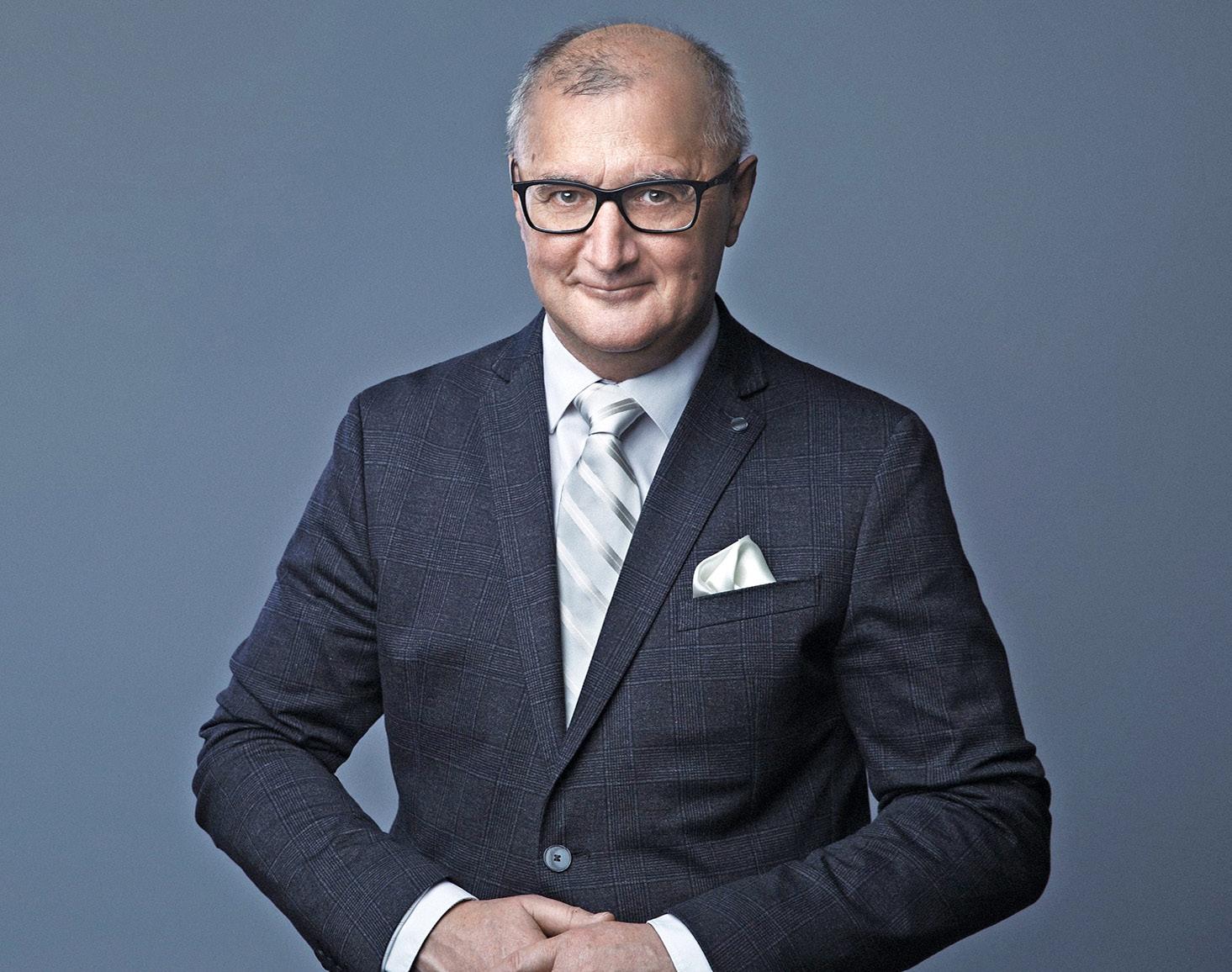
20 | 3 Special Report www.bbj.hu Budapest Business Journal | June 30 – July 13, 2023
BBJ STAFF
PRESENTED CONTENT
Zoltán Somlyai



















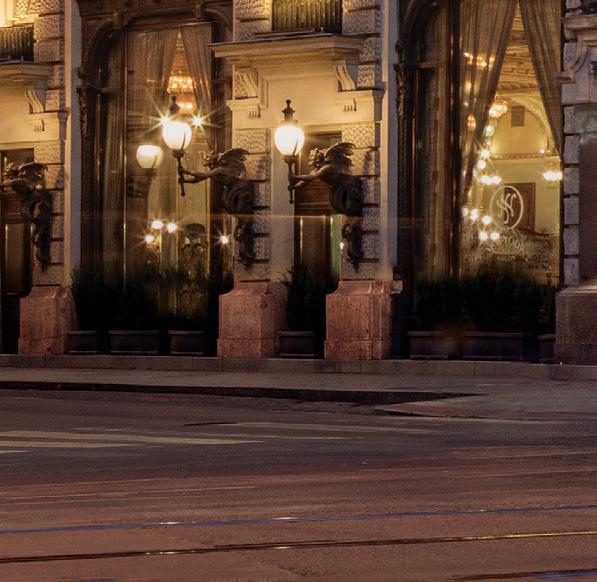
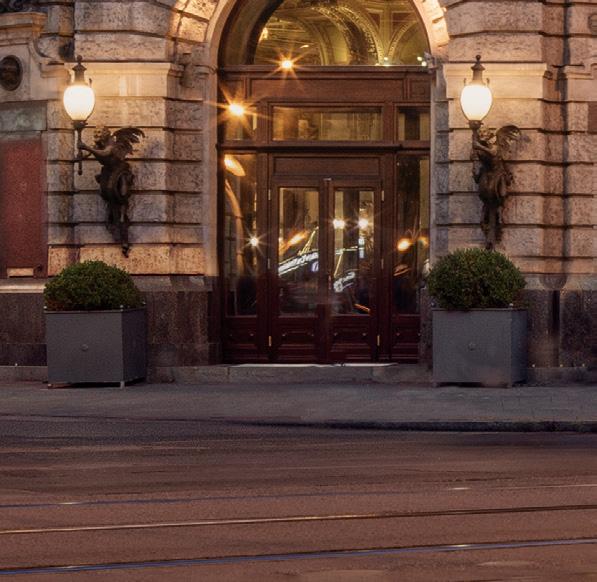
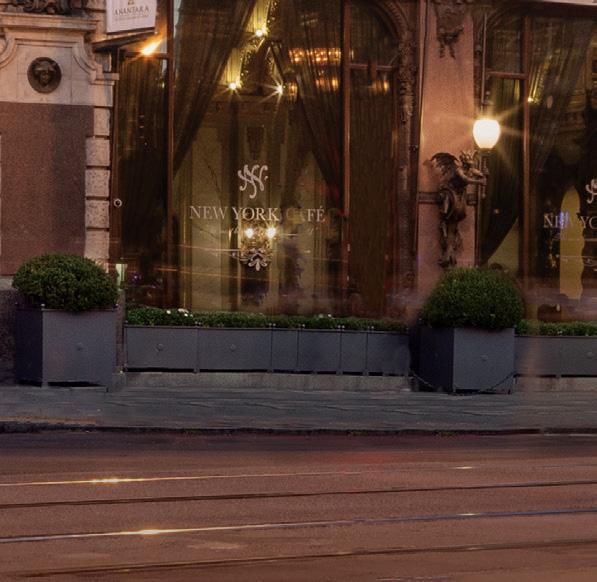
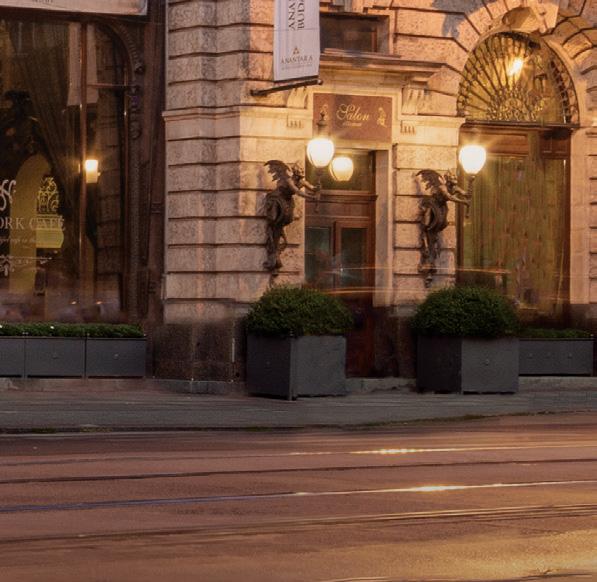
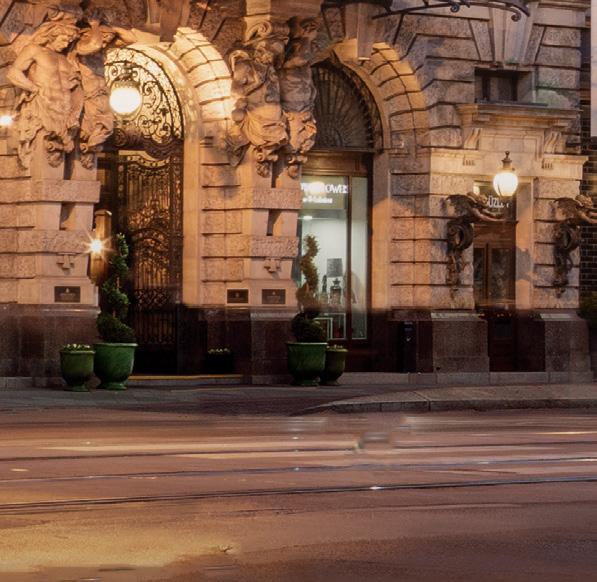
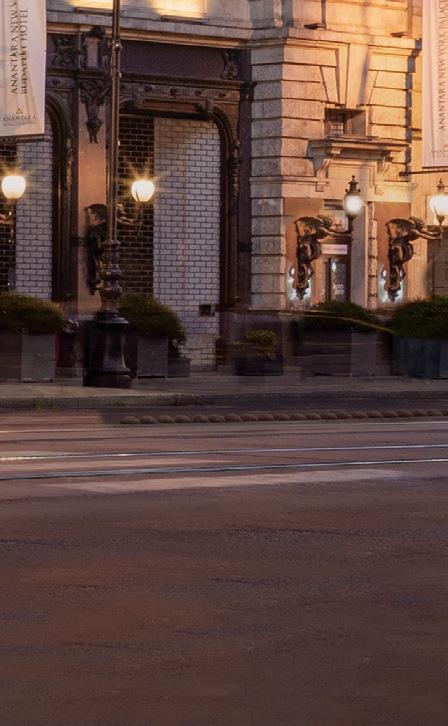


Hungarian Tourists Embracing Digital Payments on Their Holidays Abroad
Respondents in the countries surveyed cited convenience (58%), security, such as not having to worry about losing cash (53%), and speed (52%) as advantages of paying abroad with a card.
A fifth of Hungarian travelers (21%) would like to pay with a smartphone or smartwatch. Mobile payments abroad are also popular among Polish and Romanian tourists, with 22% planning to pay this way in each nation.
“Mobile wallets are one of the most popular payment methods, including when traveling abroad, supported by Visa’s systems and technologies,” Bence Sármay, Visa Hungary’s country manager, told journalists at a recent press conference.
“When a user adds their card to a smartphone’s digital wallet, Visa replaces the data with a unique set of numbers. This technology, called tokenization, is an extra layer of security. With Visa, consumers are protected against fraud, card loss ortheft, as they have the option to request a refund if something goes wrong,” he explained.

Digital payment is the most popular method among respondents in Central and Eastern Europe, with more than three-quarters planning to use it when they go on holiday
abroad. Hungary leads this trend among the countries surveyed, with 83% of Hungarians expecting to use a card, smartphone or smartwatch to pay during their holiday abroad.
Stylish Spaces for Every Occasion at InterContinental Budapest

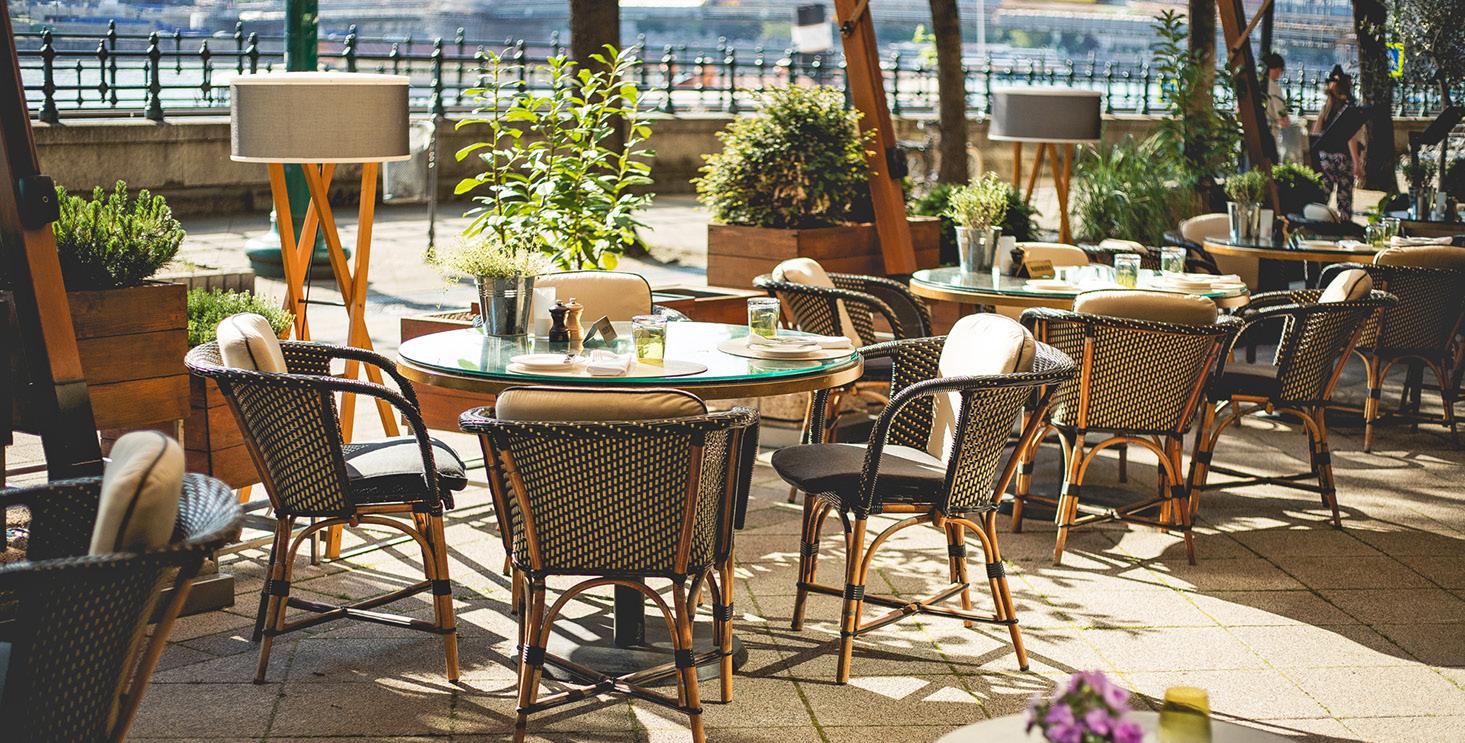
& Restaurant and ARZ Lebanese Restaurant, located on the vibrant Danube Promenade. Delight in panoramic views of the river as you savor delectable dishes and expertly crafted cocktails. The Corso Bar & Restaurant offers a chic and inviting ambiance, perfect for enjoying refreshing beverages and soaking in the beauty of the surroundings. Indulge in the vibrant flavors of Lebanon at ARZ Lebanese Restaurant, where our skilled chefs create authentic and tantalizing culinary delights that will transport your taste buds on a gastronomic journey.
Lajos Bartha, executive director of financial infrastructure and banking operations at the National Bank of Hungary (MNB), noted the growth rate in noncash payments.
InterContinental Budapest offers more than just a hotel stay; it’s a complete, immersive experience that seamlessly blends luxury, convenience, and sophistication. Join us and create unforgettable memories in the heart of Budapest.
Experience the epitome of luxury at the InterContinental Budapest, perfectly situated along the UNESCO World Heritage Danube Promenade. Immerse yourself in the breathtaking vistas of Budapest’s iconic landmarks, including the Széchenyi Chain Bridge, Parliament, and the magnificent Buda Castle. Step into a world of refined elegance as you choose from our 402 exquisitely designed rooms, where comfort and sophistication meet.
Whether you’re planning an intimate meeting, a grand convention, or a memorable gala dinner, our hotel
offers the perfect spaces to meet your needs. We provide the ideal setting for productive gatherings with 1,982 sqm of flexible event space, including the city’s largest naturally lit ballroom and 12 well-appointed meeting rooms with stunning river views. Our grand ballroom can accommodate up to 850 guests, and we offer an additional 926 sqm of exhibit space for up to 20 booths. With our in-house AV partner, you can rest assured that seamless audiovisual capabilities will support your event.
For an exceptional dining experience, look no further than our Corso Bar

22 | 3 Special Report www.bbj.hu Budapest Business Journal | June 30 – July 13, 2023
ADVERTISEMENT
GAÁL
The vast majority of Hungarians aiming to go on holiday abroad this year plan to pay on the spot with a card, smartphone or smartwatch, according to Visa’s most recent study looking at payment habits in eight CEE countries. BENCE
2022,
so that by the end of the year, 1.7 million cards could be used with smartphones,” he said.
“The use of these services has also grown dynamically, with almost onefifth of card payments in the last quarter of 2022 being made with a card registered in a mobile phone. This data also shows that some customers are open to new technologies, and these services can simplify payments both at home and when traveling.”
Switching Cards
More than half of Hungarians (57%) plan to use the same payment card abroad as at home. Some 23% of Hungarian respondents will change to another card; 33% of Hungarians who have switched to a different card have a multi-currency bank account.
Visa debit cards are also available in the offer of MBH Bank, recently created following the mega-merger of three other banks.
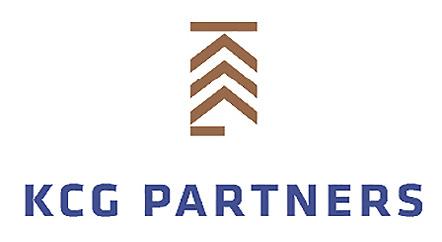
“To ensure a carefree journey, we recommend our customers make sure that, before traveling abroad, they find out whether their bank card (be it a retail or corporate, debit or credit card) has built-in travel insurance and, if so, on what terms,” suggested Tamás Kelemen, head of product management at MBH Bank.
“If there is no insurance or if a higher amount of insurance is required for a particular trip, optional travel insurance can be taken out in addition to the existing built-in insurance,” he noted.
“Optional travel insurance can also be applied for with the Visa Sustainable Credit Card, a great choice for environmentally conscious customers, as it not only provides favorable conditions for purchases abroad, domestically, online or even in digital form on the phone but is also made of
100% recycled
material,” Kelemen added.
With the rise of e-commerce, Hungarians are increasingly buying goods and services online. Some 80% of individual domestic travelers will buy some kind of service online: 69% will pay for accommodation, 27% will spend on transport, and 21% on entrance fees and excursions.
According to Visa’s study, almost half (49%) of Hungarians who buy a holiday package abroad do so online, through the websites of travel agencies or through platforms aggregating offers. More than two-thirds (67%) of holidaymakers who choose package holidays pay for their trip by card or digital wallet.
Foreign Travel
Some 32% of Hungarians surveyed plan to go on holiday abroad this year. One in every two Hungarians plan to spend
between EUR 200 and EUR 400 per person on a foreign vacation, with the average length of the planned trip being seven days.
About 44% of those traveling across the borders would not want to give up their travel plans even if inflation remained high and the cost of living increased. However, 55% of Hungarians would look for more economical accommodation, and 55% would consider shortening their trip.
“Visa believes that travel and tourism play an important role in economic development and job creation while allowing us to understand and appreciate the cultural richness of the world around us. Our survey proves that Hungarians will not stop exploring the world this year,” argued Sármay.

“Visa believes that travel and tourism play an important role in economic development and job creation while allowing us to understand and appreciate the cultural richness of the world around us. Our survey proves that Hungarians will not stop exploring the world this year.”
Hungarians most frequently mentioned Croatia (24%), Italy (20%), Austria (19%) and Greece (14%) as their holiday destinations. Most simply want to relax, mixing leisure with sightseeing. Only 13% of respondents plan to spend their holidays abroad actively, hiking and playing sports.
“The return to travel, whether for a longer holiday or a weekend city break, suggests that Hungarian consumers are more positive. This could boost the local economy and many industries, including the tourism sector,” Sármay commented.
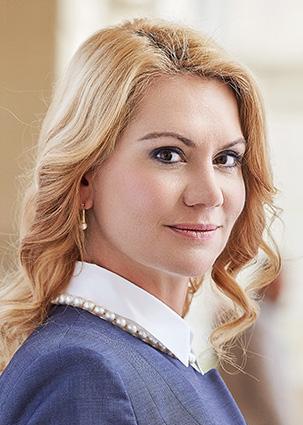
Two-thirds of Hungarians planning to travel abroad want to do so at least twice this year, but the second trip will usually be just one or two days. These are mainly city breaks, particularly popular with Millennials and Generation Zers. In such cases, paying by card, smartphone, or smartwatch can be particularly useful.
In London, public transport tickets can only be paid for digitally, and in Sweden, considered the world’s most cashless country, digital payment may be the only option in many cinemas, restaurants and shops.
Businesses to Contribute to the Tourism Budget
Tourism is an important economic sector substantially contributing to Hungary’s economy. Achieving growth in this increasingly competitive national and international market requires a supportive regulatory environment. Governments are introducing tax systems that are core to the sector’s development potential.
The EU has recently conducted a study on “The Impact of Taxes on the Competitiveness of European Tourism.” It suggests reducing tourism taxes to improve tourist destinations’ competitiveness and support the local tourism sector.
Hungarian Tourism Numbers
If we compare the figures of Q1 2023 to the same period in 2022, we see that foreigners made 8.8% more trips to Hungary, and their expenditure increased by more than a third. The number of Hungarian trips abroad increased by 29% compared to a year earlier. Foreigners arriving in Hungary spent HUF 517 billion, and Hungarians traveling abroad spent HUF 252 bln.
All these figures show that domestic tourism has performed well above expectations, and it is expected that, in»2023, the sector can experience a year similar to 2019, which brought the highest numbers before the coronavirus pandemic.
Tourism-specific Taxes
Seeing the vitality of tourism, the Hungarian state has recently re-introduced taxation of the tourism sector. One way of helping businesses hit hard by the coronavirus pandemic was for the state to waive the tourism development contribution (TDC) for touristic operators. However, this moratorium is now over, and the 4 % tax became due again from April 1. The TDC was introduced in 2018 under the tax package adopted in 2016, and it is payable on services such as:
• catering services of food and nonalcoholic beverages prepared on the premises (catering services can be restaurant services, confectionery services, catering vehicles, self-service catering, or other catering services);
• commercial accommodation services.
TDC shows similarities to VAT. The service providers, however, pay 4% as TDC in addition to 5% as VAT. Both are calculated on the VAT-exempt income from the services. Another similarity is the due date of the contribution. Those who declare VAT monthly must also declare TDC by the 20th of the month following the month in question. Those who report quarterly must do so by the 20th of the month following the quarter, while those obliged to file an annual return must do so by February 25 of the following year.
A significant difference between the two burdens is that TDC shall also be paid by those who are not liable to pay VAT, for example, because they received a tax exemption. This is typically the case for properties rented out for short periods for tourism purposes via Airbnb, where the contribution is also payable on the income generated.
The revenue from TDC must be used by the state for tourism development purposes included in the state budget’s tourism earmarking, such as spending on promotion activities related to the Tour de Hongrie, the organization of Hungarian regional tourism development projects or the development of sector-specific IT systems.
Similar Taxation Schemes
A similar tax is payable by a wide range of Croatian businesses and individuals working in the tourism industry to help fund Croatia’s tourism boards. This tax is applied to total income, with rates varying according to a business’s location and activities. A total of 24 different rates apply, ranging from as low as 0.00646% to as high as 0.1615%. As with the accommodation tax, the law specifies the proportion of revenues generated by this tax that must be transferred to each level of tourist board (municipal, city, county and national).
In summary, regulators have a crucial role in maintaining competitiveness in the tourism industry, particularly with the increasing global competition. Given the need of the governments to raise revenue on the one hand and to maintain competitiveness on the other, policymakers need to design the tax system carefully to balance these conflicting objectives.
3 Special Report | 23 www.bbj.hu Budapest Business Journal | June 30 – July 13, 2023 INSIDE VIEW NOTE: ALL ARTICLES MARKED INSIDE VIEW ARE PAID PROMOTIONAL CONTENT FOR WHICH THE BUDAPEST BUSINESS JOURNAL DOES NOT TAKE RESPONSIBILITY
KCG Partners Law Firm
Dr. Eszter KamocsayBerta Managing Partner, Attorney at Law
KCG Partners Law Firm www.kcgpartners.com
Dr. Lilla Majoros Attorney at Law
“According to the data of the MNB, the number of cards registered in mobile wallets increased significantly in
Matild Palace Hotel Celebrates 2nd Anniversary
ourselves extremely fortunate here in Budapest, as we have been blessed with the former Matild Palace, standing majestically in the heart of the city, along with our exceptional team and valuable connections,” he notes.
Evident Rewards
“While implementing our plans hasn’t always been easy, the rewards are evident when we witness the contentment and loyalty of our returning guests,” the general manager adds.
Since May, Matild Palace has joined Imagine Budapest’s themed and alternative sightseeing tours, offering visitors a unique opportunity to delve into the former palace’s rich history and explore its diverse culinary delights.
Matild Palace welcomed its first guests two years ago after an extensive renovation. The historic building, initially constructed 120 years ago under the patronage of Her Imperial and Royal Highness Maria Klotild of Saxe-Coburg and Gotha (later Archduchess of Austria), was designed to serve as a social center for the capital.
In the summer of 2021, Matild Palace opened its doors as part of The Luxury Collection portfolio, one of the Marriott International brands. The hotel also unveiled the
first European outpost of Spago, now a Michelin-recommended restaurant, the signature restaurant of the world-renowned Austrian master chef Wolfgang Puck.
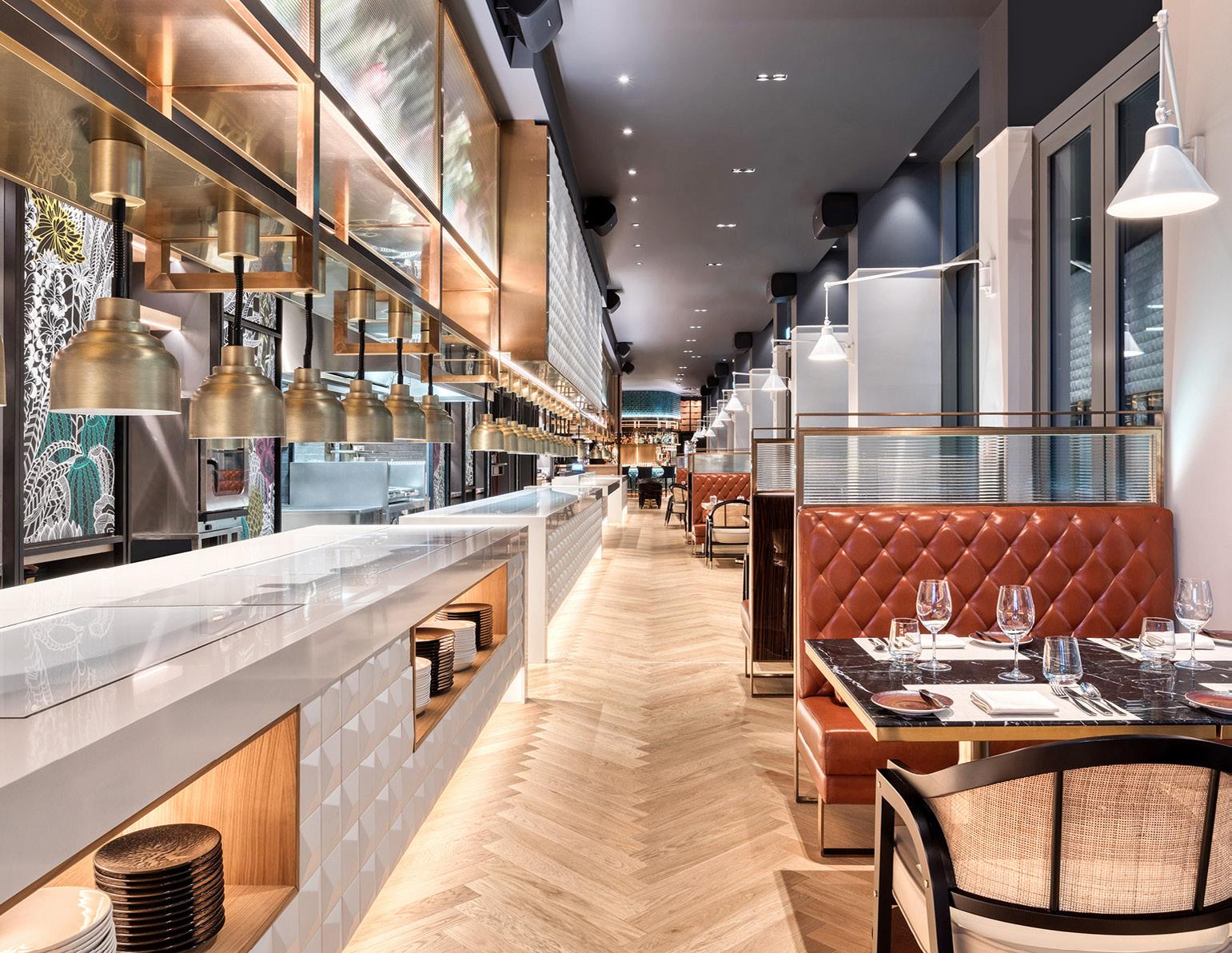
The Duchess rooftop bar (named for the former owner) offers a captivating entertainment venue with breathtaking views. The Matild Café & Cabaret, formerly known as Belvárosi Kávéház, brings a fresh and glamorous experience to local and international guests, establishing itself as a prominent venue for cultural life.
“Matild Palace is more than just a hotel; it is a social center that warmly welcomes Hungarian guests as well. We always strive to serve the local community, and it’s gratifying to see that the majority of our guests are Hungarian,” comments general manager Selim Ölmez.
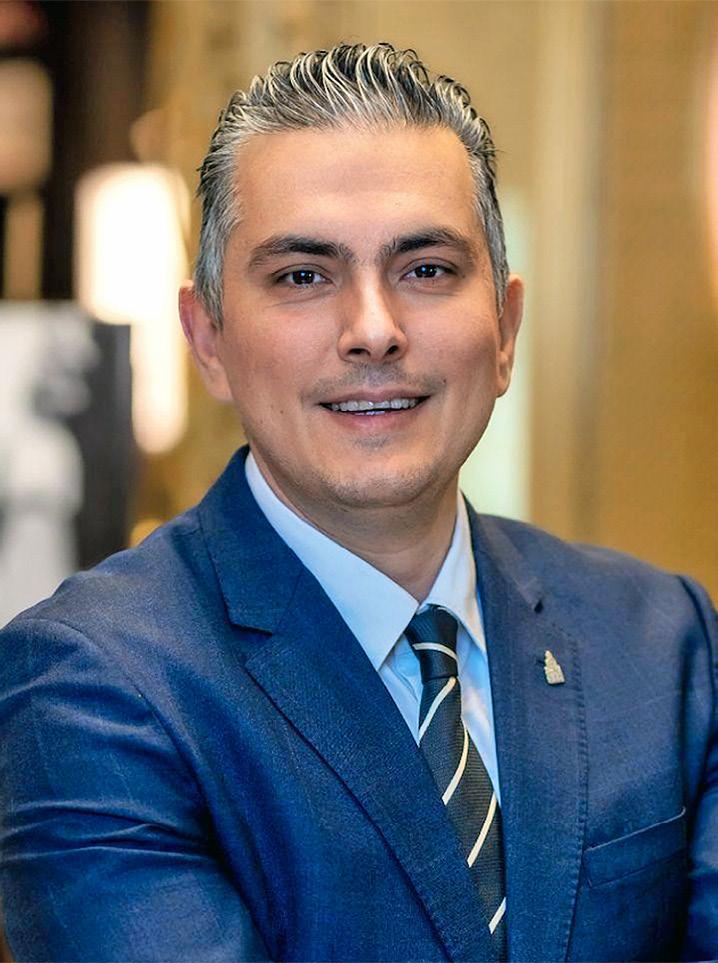
Since its inauguration, the luxury hotel, situated in a neo-Baroque building that is part of a designated UNESCO World Heritage site, has received numerous accolades. It was
honored with the Best Luxury Hotel and Best Luxury Guest Room titles at the Gold Key Awards for Excellence in Hospitality Design in 2021.
Architectural Excellence
In 2022, the hotel received the Architectural Excellence Award from the Foundation for Constructors’ Masterworks and secured top honors in three categories at the Klasszis TopDesign 2022 Awards, Hungary’s exclusive international hospitality and hotel design competition.
As a result, Matild Palace was recognized as the Klasszis TopDesign Capital Hotel of the Year 2022, with its guest rooms earning the distinction of the Klasszis TopDesign Guest Room of the Year. The Matild Café & Cabaret, known for its revue shows, was named Klasszis TopDesign Café of the Year.
In February of this year, Matild Palace garnered six additional titles at the International Property Awards in London, representing a globally recognized standard of excellence. These spanned various categories, including the hotel’s conference rooms, suites, and bathrooms, as well as the renowned Spago by Wolfgang Puck Budapest and The Duchess rooftop bar.
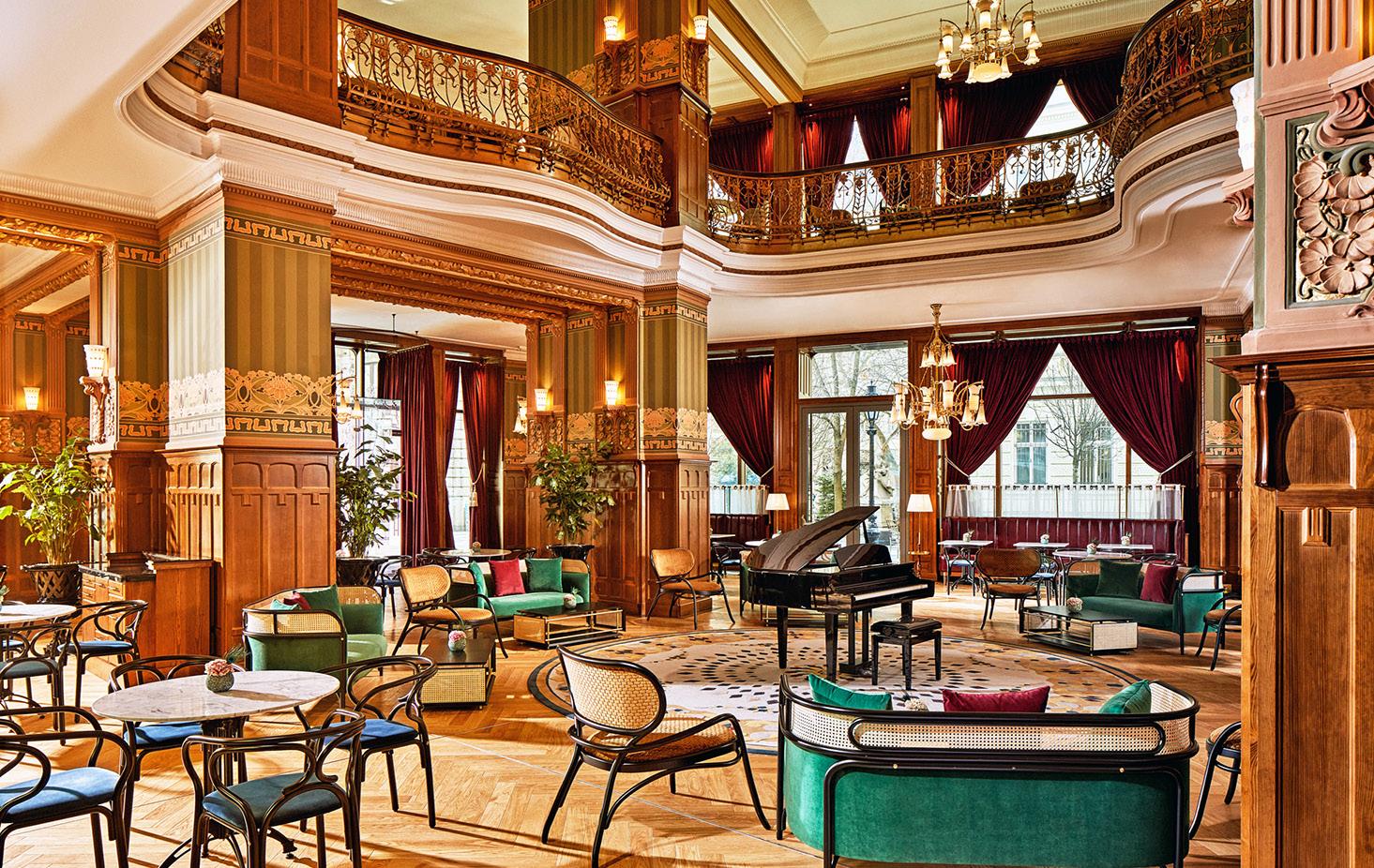
The most recent honor received by Matild Palace was at the Audi-Dining Guide TOP 100 Restaurant Awards 2023, which recognized five-star luxury hotels this year, with Matild Palace emerging as the winner.
“A building or property may possess beauty and a rich history, but it is the people who ultimately drive its success. When you put your heart into it and prioritize the satisfaction of your guests, success becomes almost inevitable,” says Ölmez.
“You don’t need to operate the world’s most exquisite or lavishly appointed hotel to achieve this. We consider
Accompanied by gastronomic journalist Györgyi Kalas and Imagine tour guide Elza Morcsányi, guests are led on an enthralling journey through the captivating ambiance of the former Belvárosi Kávéház, steeped in literary figures, the legendary cabaret shows of Lido, the exquisite flavors of fashionable cakes, the lingering aroma of coffee beans discovered in the cellar after World War II, and the sophistication associated with the world-renowned chef legend, Wolfgang Puck.
Guests can tour some of the hotel’s most noteworthy areas and indulge in dessert specialties at the meticulously restored Matild Café & Cabaret. This includes savoring the signature Matild Cake, as well as an exciting new addition by executive pastry chef Tristan Tuaud.
The hotel’s management team says it eagerly anticipates the challenges that lie ahead in the coming year.
“We thrive on variety and constantly seek out new and exciting opportunities. We are exploring innovative concepts, including collaborations with Wolfgang Puck. During the summer, we will strive to complete all the projects we have yet to finalize, with our primary focus centered on delivering personalized service,” says Ölmez.
24 | 3 Special Report www.bbj.hu Budapest Business Journal | June 30 – July 13, 2023
One of Budapest’s iconic buildings, which has established itself as an awardwinning luxury destination and one of the capital’s most elegant social hubs, was due to celebrate the second anniversary of its reopening as this issue of the Budapest Business Journal went to print on June 28.
BBJ STAFF
Selim Ölmez, general manager of the hotel.
PRESENTED CONTENT
The Spago by Wolfgang Puck restaurant.
4-star hotels in Budapest
4-star Hotels in Budapest
1044 Budapest, Íves út 16. (1) 231-3600 reservation@ aquaworldresort.hu
3 Special Report | 25 www.bbj.hu Budapest Business Journal | June 30 – July 13, 2023
Ranked by no. of rooms Rank hotel name / name of opeRating company WeBsite n o. of R ooms t otal net R evenue in 2022 ( huf mln) s ingle R ate ( e u R o/night) Dou B le R ate ( e u R o/night) seRvices y ea R esta B lishe D oWneRship (%) hungaRian non-hungaRian hotel manageR cfo maRketing DiRectoR aDDRess phone email Business co R ne R Wellness Beauty salon f amily f R ien D ly g a R age i nte R net in R ooms c a R R ental e vents p ools t he R apy o the R 1 DanuBius hotel hungaRia city centeR / DanuBius hotels ZRt. www.danubiushotels.com 499 7,998 66-76 70-95 ✓ ✓ ✓ ✓ ✓ ✓ – ✓ ✓ ✓ – A Danubius Hotels Zrt. (100) –edit nagy ––1074 Budapest, Rákóczi út 90. (1) 889-4400 hungaria.booking@ danubiushotels.com 2 meRcuRe BuDapest koRona / accoR-pannonia hotels ZRt. www.mercure.com 446 7,186 (2021) 89-300 89-300 ✓ – – ✓ ✓ ✓ ✓ ✓ – – Fitness 1990 –Accorinvest (100) gergely kollin ––1053 Budapest, Kecskeméti utca 14. (1) 486-8800 h1765@accor.com 3 aquaWoRlD ResoRt BuDapest / aquaWoRlD ZRt. www.aquaworldresort.hu 319 8,807 164 189 ✓ ✓ ✓ ✓ ✓ ✓ – ✓ ✓ –Massage, playhouse, spa, child care, fitness, squash, tennis, shop, parking lot, deep garage 2006 Aquaworld Zrt. (100) –Roland sivó Istvánné
Opoczki Szabolcs Kiss
4 novotel BuDapest city & BuDapest congRess centeR / accoR-pannonia hotels ZRt. www.bcc.hu 319 7,186 (2021) A A ✓ ✓ – ✓ – ✓ – ✓ ✓ –Massage, congress center, parking lot, bus parking 1982 Accor-Pannonia Hotels Zrt. (100) –christophe le Brun ––1123 Budapest, Alkotás utca 63–67.
5 inteRcityhotel BuDapest / stag hotels hungaRy kft. www.budapest.intercityhotel.com 312 1,474 A A ✓ – – ✓ ✓ ✓ ✓ ✓ – –Bistro lounge & bar, BistroBox 2021 –(100) tibor polgár ––1087 Budapest, Baross tér 7–8. (1) 279-9000 budapest@ intercityhotel.com 6 continental hotel BuDapest / Joy hotels kft. www.continentalhotelbudapest.com 272 2,735 150 159–259 ✓ ✓ – – ✓ ✓ – ✓ ✓ –Sauna, galeria café & bar, massage, fitness room 2010 Joy Hotels Kft. (100) –Zoltán géher Brigitta Tóth –1074 Budapest, Dohány utca 42–44. (1) 815-1000 continentalinfo@ zeinahotels.com 7 DanuBius hotel helia / DanuBius hotels ZRt. www.danubiushotels.com/hu/ szallodak-budapest/danubius-hotelhelia 270 3,580 98 105 ✓ ✓ ✓ ✓ – ✓ – ✓ ✓ ✓ Massage 1990 Danubius Hotels Zrt. (100) –istván heréb Zsuzsanna Böhm Vanda Takács 1133 Budapest, Kárpát utca 62–64. (1) 889-5800 reception.helia@ danubiushotels.com 8 meRcuRe BuDapest castle hill / accoR-pannonia hotels ZRt. https://all.accor.com/hotel/1688/index. en.shtml 255 7,186 (2021) A A ✓ – – – ✓ ✓ – ✓ – – – 1982 Accor-Pannonia Hotels Zrt. (100) –Zsombor Jávorka ––1013 Budapest, Krisztina körút 41–43. (1) 488-8185 h1688@accor.com 9 RaDisson Blu Béke hotel / DanuBius hotels ZRt. www.danubiushotels.com 247 7,998 52–76 52–86 ✓ ✓ ✓ ✓ ✓ ✓ ✓ ✓ ✓ ✓ – 1914 Danubius Hotels Zrt. (100) –istván heréb ––1067 Budapest, Teréz körút 43. (1) 889-3900 manager.budapest@ RadissonBlu.com 10 couRtyaRD By maRRiott BuDapest city centeR / cpi hotels euRopeum kft. www.marriott.com/en-us/hotels/ budcy-courtyard-budapest-city-center/ overview/ 234 933 85 100 ✓ – – ✓ ✓ ✓ – ✓ – –Massage, fitness, sauna, steam cabin 2017 –CPI Hotels, a.s. (100) istván nagy-szász Zsuzsanna Batykó Szűcsné Dóra Anek 1088 Budapest, József körút 5. (1) 327-5100 reception.mbcc@ cpihotels.com
(1) 372-5400 h0511-rm@accor.com
Margit-sziget (1) 889 4700 res.th@ hu.ensanahotels.com
Budapest, Városház utca 20. (70) 645-9590 info@emeraldsuites.hu
26 | 3 Special Report www.bbj.hu Budapest Business Journal | June 30 – July 13, 2023 Rank hotel name / name of opeRating company WeBsite n o. of R ooms t otal net R evenue in 2022 ( huf mln) s ingle R ate ( e u R o/night) Dou B le R ate ( e u R o/night) seRvices y ea R esta B lishe D oWneRship (%) hungaRian non-hungaRian hotel manageR cfo maRketing DiRectoR aDDRess phone email Business co R ne R Wellness Beauty salon f amily f R ien D ly g a R age i nte R net in R ooms c a R R ental e vents p ools t he R apy o the R 11 novotel BuDapest centRum / accoR-pannonia hotels ZRt. www.novotel.com 227 7,186 (2021) 75-110 85-120 – – – ✓ ✓ ✓ – ✓ – –Palace restaurant, fitness room, children's corner 2002 Accor-Pannonia Hotels Zrt. (100) –Zoltán Árvai ––1088 Budapest, Rákóczi út 43–45. (1) 477-5300 h3560@accor.com 12 k+k hotel opeRa / k+k hotel kft. www.kkhotels.com 200 240 (2021) 120 120 ✓ ✓ ✓ ✓ ✓ ✓ ✓ ✓ ✓ ✓ – 1993 –K+K Hotels GmbH, K+K Management GmbH (100) gergely Dobos ––1065 Budapest, Révay utca 24. (1) 269-0222 opera@kkhotels.com 13 leonaRDo hotel BuDapest / hotel pÁva plaZa kft. www.leonardo-hotels.com 182 313 (2021) 58–105 58–105 ✓ ✓ ✓ ✓ ✓ ✓ ✓ ✓ ✓ ✓ – 2010 Millenium Properties Zrt. (100) –istván mike ––1094 Budapest, Tompa utca 30–34. (1) 477-7200 reservations.budapest@ leonardo-hotels.com 14 novotel BuDapest DanuBe / accoR pannonia hotels ZRt. https://all.accor.com/6151 175 7,186 (2021) 80–250 80–250 ✓ – ✓ – ✓ ✓ ✓ ✓ – –Fitness room, sauna 2006 Accor Pannonia Hotels Zrt. (100) –tamás pintér ––1027 Budapest, Bem rakpart 33–34. (1) 458-4900 h6151@accor.com 15 gRanD maRgitsZiget ensana health spa / DanuBius hotels ZRt. www.danubiushotels. com/grandhotel 164 7,998 A A A A A A A A A A A A – –Danubius Hotels Zrt. (100) –péter mácsai ––BUdapest,
16 emeRalD hotel & suites / continental gRoup kft. www.emeraldhotel.hu 161 633 A 150 ✓ ✓ – – – ✓ – ✓ – – – 2021 (100) –tibor szajcz ––
17 nh BuDapest city nh hungaRy / sZÁlloDaüZemeltető kft. www.nh-hotels.com 160 425 (2021) 84–105 84–120 ✓ ✓ ✓ ✓ ✓ ✓ ✓ ✓ ✓ ✓ – 2003 NH Hungary Szállodaüzemeltető Kft. (100) –Róbert Weinraub ––
18 hotel pResiDent BuDapest / pResiDent management kft. www.hotelpresident.hu 152 493 (2021) 130 150 ✓ ✓ – – – ✓ – ✓ – –Massage, jacuzzi 2009 –(100) anita siklósi ––1054 Budapest,
19 DanuBius hotel astoRia / DanuBius hotels ZRt. www.danubiushotels.com/astoria 138 7,998 110–120 125–140 ✓ ✓ ✓ ✓ ✓ ✓ ✓ ✓ ✓ ✓ – 1914 Danubius Hotels Zrt. (100) –Balázs Bánhegyi ––
Kossuth Lajos utca 19–21. (1)
20 paRk inn By RaDisson BuDapest / maD hotel és iRoDa kft. www.parkinn.hu/hotel-budapest 138 1,894 64–86 64–86 ✓ ✓ ✓ ✓ ✓ ✓ ✓ ✓ ✓ ✓ – A MAD-Hotel és Iroda Kft. (100) –mariann lukács ––
1052
1137 Budapest, Vígszínház utca 3. (1) 814-0000 nhbudapestcity@ nh-hotels.com
Hold utca 5. (1) 510-3400 info@hotelpresident.hu
1053 Budapest,
889-6000 astoria.reservation@ danubiushotels.com
21 hotel oktogon haggenmacheR / continental gRoup kft. www.hoteloktogon.hu 121 633 A 163 ✓ ✓ – – – ✓ – ✓ – – Massage 2022 (100) –gyula kanel ––
1138 Budapest, Szekszárdi utca 16–18. (1) 688-4900 info.budapest@ rezidorparkinn.com
Andrássy út 52.
1062 Budapest,
(1) 884-8750 hotel@hoteloktogon.hu
1051 Budapest, Vigyázó Ferenc utca 5. (1) 920-1000 prestigereception@ zeinahotels.com
1063 Budapest, Munkácsy Mihály utca 5–7. (1) 462-2100 reservations.andrassy@ mamaison.com
(1) 610-4700 fo-lifestylehotel@ threecorners.hu
1064 Budapest, Izabella utca 61. (1) 475-5900 reservations.izabella@ mamaison.com
3 Special Report | 27 www.bbj.hu Budapest Business Journal | June 30 – July 13, 2023 Rank hotel name / name of opeRating company WeBsite n o. of R ooms t otal net R evenue in 2022 ( huf mln) s ingle R ate ( e u R o/night) Dou B le R ate ( e u R o/night) seRvices y ea R esta B lishe D oWneRship (%) hungaRian non-hungaRian hotel manageR cfo maRketing DiRectoR aDDRess phone email Business co R ne R Wellness Beauty salon f amily f R ien D ly g a R age i nte R net in R ooms c a R R ental e vents p ools t he R apy o the R 22 museum hotel BuDapest / neXt sZÁlloDaüZemeltető kft. www.museumhotel.hu 104 917 85–95 95–115 ✓ ✓ ✓ ✓ ✓ ✓ ✓ ✓ ✓ ✓ – A Next Szállodaüzemeltető Kft. (100) –Balázs Boda ––1088 Budapest, Trefort utca 2. (1) 485-1080 reception@ museumhotel.hu 23 hotel moments BuDapest / continental gRoup kft. www.hotelmomentsbudapest.hu 99 633 A 170 ✓ ✓ – – – ✓ – ✓ – – Massage 2016 (100) –gyula kanel ––1061 Budapest, Andrássy út 8. (1) 611-7000 hotel@hotelmoments.hu 24 hotel Zenit BuDapest palace / apÁcZai hÁZ kft. https://budapest.zenithoteles.com/ 97 1,169 120 120 ✓ ✓ ✓ ✓ ✓ ✓ ✓ ✓ – –Massage, fitness 2012 –Zenit Abeba SA (100) sára papp ––
Budapest, Apáczai Csere János utca 7. (1) 799 8400 budapest@ zenithotels.com 25 hotel vision BuDapest / migDal magyaRoRsZÁg kft. www.hotelvision.hu 91 1,460 A 150 ✓ ✓ – ✓ ✓ ✓ ✓ ✓ – –Massage, e-car charger 2020 Migdal Magyarország Kft. (100) –Bálint huszár –Kinga Kovács
Budapest, Belgrád
26 pRestige hotel BuDapest / iconic avantgaRDe kft. www.prestigehotelbudapest.com 85 806 159–259 189–269 – – – – ✓ ✓ – ✓ – – Sauna 2015 Iconic Avantgarde Kft. (100) –péter vezekényi ––
27 hotel palaZZo Zichy / A www.hotel-palazzo-zichy.hu 80 A 130 130 ✓ ✓ – ✓ – ✓ ✓ ✓ – – – 2009 –Savim Srl. (100) tibor szajcz ––
Budapest, Lőrinc pap tér 2.
28 mamaison hotel anDRÁssy BuDapest / cpi hotels hungaRy kft. www.mamaisonandrassy.com/hu/ 68 1,322 80 95 ✓ – – ✓ – ✓ – ✓ – –Massage, parking lot 2014 –Radovan Vítek (88.67), A (11.33) istván nagy-szász Zsuzsanna
Szűcsné Dóra Anek
1052
1056
rakpart 24. (1) 550-5800 hotel@hotelvision.hu
1088
(1) 235-4000 info@hpz.hu
Batykó
29 hotel paRlament / ZipaR hungaRy kft. www.parlament-hotel.hu 66 1,565 132 132 ✓ ✓ – ✓ – ✓ ✓ ✓ – – Massage 2006 ZIPAR Hungary Kft. (100) –tibor szajcz ––1054 Budapest, Kálmán Imre utca 19. (1) 374-6000 hotel@ parlament-hotel.hu 30 Bo33 hotel family & suites / ipoly-RÁkócZi kft. www.bo33hotelbudapest.com 62 748 150 150 A A A A A A A A A A – 2015 A A Ákos szabó ––
Budapest, Szövetség utca 33. (1)
31 the thRee coRneRs lifestyle hotel / lifestyle Real estate kft. www.threecorners.com 60 693 89 99 ✓ – – – ✓ ✓ – ✓ – – – 2015 2nd Step Kft. (100) –Zsolt héni ––
1074
796-3270 sales@bo33hotel.hu
utca
32 mamaison ResiDence iZaBella BuDapest / cpi hotels hungaRy kft. www.mamaisonizabella.com 38 1,322 100 115 ✓ – – ✓ ✓ ✓ – – – –Massage, sauna, fitness 2014 –CPI Hotels a.s, (100)
nagy-szász
Batykó Szűcsné Dóra Anek
1092 Budapest, Hőgyes Endre
4.
istván
Zsuzsanna
5-star & boutique hotels in Budapest
5-star & Boutique Hotels in Budapest
events.budapest@ corinthia.com 2
1052 Budapest, Apáczai Csere János utca 12–14. (1) 327-6333 budapest@ihg.com 3
1994 2019
marten schoenrock Éva Alexa –
CEE Property-Invest Inmobilien GmbH (100)
arne klehn Kiril Estatiev Edina Lányi-Biró
kempinski hotel coRvinus budapest /
kempinski
5 hilton budapest / danubius hotels zRt. www.budapest.hilton.com 332 481 25 25 7,998 A A ✓ ✓ – – – ✓ ✓ – ✓
LÁNG Bistro&Grill restaurant, Lobby
1989 2023
Kempinski Hotel Budapest Zrt. (100) –
stephan interthal Zoltán Schubert Judit Dénes
28 | 3 Special Report www.bbj.hu Budapest Business Journal | June 30 – July 13, 2023
Ranked by no. of rooms Rank hotel name / name of opeRating company Website n o. of R ooms n o. of beds n o. of suites n o. of meeting R ooms t otal net R evenue in 2022 ( huf mln) s ingle R ate ( e u R o/night) d ouble R ate ( e u R o/night) seRvices y ea R established y ea R last R enovated oWneRship (%) hungaRian non-hungaRian hotel manageR cfo maRketing diRectoR addRess phone email Restau R ant b usiness co R ne R f amily f R iendly Wellness b eauty salon g a R age i nte R net in R ooms c a R R ental e vents o the R 1 coRinthia budapest / ihi magyaRoRszág szolgáltató zRt. www.corinthia.com/budapest 438 A 31 26 6,018 225 250 ✓ ✓ ✓ ✓ – ✓ ✓ – ✓ –2003 A –International Hotel Investments Plc. (100) lars sammelius ––1073 Budapest, Erzsébet körút 43-49. (1) 479-4706
budapest
danube hungaRy kft.
402 A A A 8,829 259 279 ✓ ✓ ✓ ✓ ✓ ✓ ✓ – ✓ Fitness Center, bar, terrace, car wash 1981 2012 –Al Habtoor Group (100)
inteRcontinental
/ mansion
www.budapest.intercontinental.com
budapest
hotel
duna szálloda zRt. www.marriottbudapest.com 364 478 22 16 10,869 A A ✓ ✓ ✓ ✓ – ✓ ✓ ✓ ✓
maRRiott
/
DNB Budapest, Liz and Chain Sky Lounge, Marriott Fitness Center, laundry, car wash –
budapest zRt.
353 706 38 10 3,588 (2021) 475 500 ✓ ✓ ✓ ✓ – ✓ ✓ ✓ ✓
1052 Budapest, Apáczai Csere János utca 4. (1) 486-5000 reservations@ marriotthotels.com 4
hotel
www.kempinski.com/budapest
ÉS Deli, NOBU Budapest restaurant, Blue Fox The Bar, laundry, car wash, fitness room
Bar, laundry, fitness room, sauna, massage 1976 2018 Danubius
1051 Budapest, Erzsébet tér 7–8. (1) 429-3777 hotel.corvinus@ kempinski.com
Hotels Zrt. (100) –áron szabó ––
(1) 889-6600 info.budapest@ hilton.com 6 the aquincum hotel budapest / theRmal hotel aquincum zRt. www.aquincumhotel.com 310 620 8 14 2,535 285 285 ✓ ✓ ✓ ✓ ✓ ✓ ✓ ✓ ✓ –1991 2018 –Corinthia Investments Ltd. (100) philippe mahuas ––1036 Budapest, Árpád fejedelem útja 94. (1) 436-4100 info@aquincumhotel.com 7 cRoWne plaza budapest / Westend szállodaüzemeltető kft. https://crowneplaza.hu-budapest.com 230 A 21 13 2,592 229 249 ✓ ✓ ✓ – – ✓ ✓ ✓ ✓ –2000 2015 Gránit Pólus Group (100) –maurice Janssen ––1062 Budapest, Váci út 1–3. (1) 288-5500 –8 hilton gaRden inn budapest hotel yasmin budapest kft. www.hilton.com/en/hotels/budccgihilton-garden-inn-budapest-city-centre/ 214 A A A 896 (2021) A A ✓ ✓ ✓ – – ✓ ✓ – ✓ Fitness 2019 2,019 –Longbridge group (100) ernst van zutphen ––1065 Budapest, Lázár utca 11–13. (1) 211-3050 info.gardeninnbudapest@ hilton.com 9 the Ritz-caRlton, budapest / adRia palace kft. www.ritzcarlton.com/en/hotels/ budrz-the-ritz-carlton-budapest/ overview/ 200 A 29 6 5,772 500 525 ✓ ✓ ✓ ✓ – – ✓ – ✓ Cupola bar, fitness room, laundry 2016 A –Al Habtoor Group LLC (100) alper can bulcum ––1051 Budapest, Erzsébet tér 9–10. (1) 429-5500 concierge.budrz@ ritzcarlton.com 10 anantaRa neW yoRk palace budapest hotel / neW yoRk palace kft. https://www.anantara.com/en/ new-york-palace-budapest 185 185 30 11 8,319 390 440 ✓ ✓ ✓ ✓ – ✓ ✓ – ✓ –2009 2019 –Covivio (100) tamás fazekas ––1073 Budapest, Erzsébet körút 9–11. (1) 886-6111 reserveanantara@ anantara.com 11 fouR seasons hotel gResham palace budapest / sas magyaRoRszág vagyonkezelő kft. www.fourseasons.com/budapest 179 203 19 7 9,073 540 540 ✓ ✓ ✓ ✓ – ✓ ✓ ✓ ✓ KOLLÁZSBrasserie & Bar, MÚZSA 2004 2020 –(100) thibaut drege ––1051 Budapest, Széchenyi István tér 5–6. (1) 268-6000 budapest.pbx@ fourseasons.com
1014 Budapest, Hess András tér 1–3.
1065 Budapest, Nagymező utca 38. (1) 472-5299
1056
1052 Budapest, Piarista utca 4. (1) 235-1800 budapest.reservations@ marriotthotels.com
3 Special Report | 29 www.bbj.hu Budapest Business Journal | June 30 – July 13, 2023 Rank hotel name / name of opeRating company Website n o. of R ooms n o. of beds n o. of suites n o. of meeting R ooms t otal net R evenue in 2022 ( huf mln) s ingle R ate ( e u R o/night) d ouble R ate ( e u R o/night) seRvices y ea R established y ea R last R enovated oWneRship (%) hungaRian non-hungaRian hotel manageR cfo maRketing diRectoR addRess phone email Restau R ant b usiness co R ne R f amily f R iendly Wellness b eauty salon g a R age i nte R net in R ooms c a R R ental e vents o the R 12 nh collection budapest city centeR / nh hungaRy kft. www.nh-hotels.com/hotel/ nh-collection-budapest-city-center 138 269 138 A 424 250 250 ✓ ✓ ✓ – – ✓ ✓ – – –2011 2018 –Covivio (100) tamás fazekas ––
Budapest, Osvát utca 2–8. (1)
13 haRd Rock hotel / hRh bud management kft. www.hardrockhotels.com/budapest 136 272 4 2 1,590 259 279 ✓ – – – – – ✓ – ✓ Sessions restaurant, Roxy Rooftop bar, Constant Grind Bar, Body Rock®, The Sound of Your Stay® Unleashed® Rock Om®, Unity by Hard Rock 2021 –Rockwood Ingatlan Kft. (100) –kiy graham stuart, darren
Bence Bayer
1073
424-4700 nhcollectionbudapestcitycenter@nh-hotels. com
darwin –
hrhbudapest.com 14 matild palace, a luxuRy collection hotel, budapest / melis opeRation kft. www.matildpalace.hu 130 152 19 4 1,275 (2021) A A ✓ ✓ ✓ ✓ ✓ ✓ ✓ ✓ ✓ Matild Café&Cabaret, Spago By Wolfgang Puck,The Duchess Rooftop Bar, Swan Spa 2021 2021 (100) –selim Ölmez –Noémi Oláh
starservice@
Budapest, Váci utca 36. (1) 550-5000 inquiries@ matildpalace.com 15 páRisi udvaR hotel budapest / páRizs pRopeRty kft. www.parisiudvarhotel.com 110 230 20 4 2,795 A A ✓ ✓ ✓ ✓ – – – ✓ ✓ Párisi Passage Restaurant and Étoile Champagne Bar 2019 A Párizs Property Kft. (100) –andrea schwindt-kiss ––
Petőfi Sándor utca 2–4. (1)
parisiudvarhotel.com 16 maRRiott executive apaRtments / duna csillaga kft. www.marriott.com/buder 108 216 ––965 (2021) A A – – – ✓ – ✓ ✓ ✓ – –1997 ––CEE PROPERTYINVEST Immobilien GmbH (100) arne klehn Kiril Estatiev Edina Lányi-Biró
1052 Budapest,
576-1600 info@
17 auRea ana palace hotel A www.aureaanapalacehotel.com 107 A A A A A A A A A A A A A A A –A ––Eurostars Hotels (100) –––
18 mysteRy hotel budapest / mysteRy hotel budapest kft. www.mysteryhotelbudapest.com 82 96 2 3 1,275 200 250 ✓ ✓ ✓ ✓ – – ✓ – ✓ Rooftop terrace 2018 2019 (100) –anikó horváth Nóra Szánthó –
Budapest, Podmaniczky utca 45. (1) 616-6000 mystery@ mysteryhotelbudapest. com 19 hotel claRk / unione claRk kft. www.hotelclarkbudapest.hu 79 A 2 A 1,632 A A ✓ ✓ – – – ✓ ✓ – ✓ Rooftop bar 2018 2022 Unione Clark Kft. (100) –istván lukács Zita Egri Réka Kabdebó 1013 Budapest, Clark Ádám tér 1. (1) 610-4890 reception@ hotelclarkbudapest.hu 20 kozmo luxuRy hotel budapest / mhc hotel company kft. www.kozmohotelbudapest.com/hu 61 A 23 A 2,154 172 226 A A A A A A A A A –2021 –MHC Hotel Company Kft. (100) –antonio montoro ––1082 Budapest, Horváth Mihály tér 17. (1) 701-6300 information@ kozmohotelbudapest. com 21 aRia hotel budapest / ik hotels vendéglátó kft. www.ariahotelbudapest.com 49 108 4 2 1,860 A 400 ✓ ✓ ✓ ✓ ✓ ✓ ✓ ✓ ✓ –2015 2023 IBE Kft. (50) Henry Kallan (50)0 ferenc marx Zsombor Buttyán Renáta Maszlag 1051 Budapest, Hercegprímás utca 5. (1) 445-4055 stay@ ariahotelbudapest.com 22 veRno house / leonstRella üzemeltető kft. https://vernohouse.com 47 75 3 1 18 250 250 ✓ – ✓ ✓ – ✓ ✓ ✓ ✓ Flava Kitchen&More restaurant 2022 2022 BDPST Hotel Management Zrt. (100) –máté tolnai Szilvia Sajtos Laura ÉnekesNyakas 1051 Budapest, Október 6. utca 26. (1) 886-1120 hotel@vernohouse.com A = would not disclose, NR = not ranked, NA = not appliacable This list was compiled from responses to questionnaires received by June 28, 2023, and publicly available data. To the best of the Budapest Business Journal’s knowledge, the information is accurate as of press time. The list is based on companies’ voluntary data submissions. While every effort is made to ensure accuracy and thoroughness, omissions and typographical errors may occur. Additions or corrections to the list should be sent on letterhead to the research department, Budapest Business Journal, 1075 Budapest, Madách Imre út 13–14, or faxed to (1) 398-0345. The research department can be contacted at research@bbj.hu
1054 Budapest, Akadémia utca 15–17. (20) 254-0279 –
1064
4 Socialite
Rare Chance to see Rock ‘n’ Roll Legend Iggy Pop in Hungary

On July 30, somewhat battered but still vital rock and roll icon Iggy Pop will play Veszprém’s newly opened pop-up venue Factory’ard CulturePark. He appears with his band as part of the Veszprém-Balaton 2023 European Capital of Culture program.
DAVID HOLZER
Now 76, Iggy (real name James Newell Osterberg Jr.) achieved notoriety around 1967. Early appearances featured Pop with his face painted silver wearing a maternity smock playing an amplified vacuum cleaner as frontman for Iggy and the Stooges. He became a punk rock icon in 1970 when, appearing at the Cincinnati Pop Festival, he was filmed balancing on the raised hands of the audience covering himself in peanut butter.
From then on, Pop achieved a name for himself by challenging audiences, cutting himself on stage, being knocked unconscious by a member of a biker gang, and generally being as confrontational as he could.
Pop has paid the price for pushing his body to the limit for decades. Today, he prowls the stage with a pronounced limp. Although his performances have mellowed enormously, he still does his best to provoke, albeit with a smile on his face.
I’ve seen Pop perform several times since the late
1970s,
and there’s never been any sense that he’s going through the motions. The last time I saw him, he bounded on stage and midway through the first number was crowd surfing, held aloft by a gleefully baying crowd made up of fans, including me.
Liberation is the essence of a Pop performance. He’s the onstage
embodiment of rock and roll’s promise of freedom. If you go to Veszprém, check out the people around you. I guarantee they’ll be transformed, their faces wearing a mixture of glee, cartoonish defiance and bemusement.
But the primal rock and roll joy of being part of a Pop performance shouldn’t ever obscure the power of the music.
Deceptively Simplistic
The sound created by Iggy and the Stooges took the aggressive stomp of 1960s British bands such as the Who and Rolling Stones, the knowingly dumb simplicity of American garagepunk acts like the Kingsmen and the confrontational psychedelic smarts of the Doors and refined them into a deceptively simplistic roar.
In 1968, the Stooges released their first album, “The Stooges,” to widespread indifference. It was followed by “Fun House.” Neither did more than reach the lower numbers of the American album charts. Today, they’re regarded as classics.
Appraising the debut album on the Allmusic website, Mark Deming wrote, “The band managed the difficult feat of sounding ahead of their time and entirely out of their time, all at once.”
Self-revered rock and roll critic Robert Christgau wrote of the second album, “Now I regret all the times I’ve used words like ‘power’ and ‘energy’ to describe rock and roll because this is what such rhetoric should have been saved for. Shall I compare it to an atom bomb? A wrecker’s ball? A hydroelectric plant? Language wasn’t designed for the job.”
Hamstrung by poverty, made even worse by addiction to hard drugs and the alcohol-related death of an original band member, the Stooges staggered on. Their performances became hit-andmiss, but on a good night, they were impossible to follow. Then, in
1971,
Pop met a rabid fan: David Bowie.
Bowie got the band a record deal that resulted in the now classic 1973 “Raw Power” album, which blew me away as a 15-yearold punk obsessive. Like its predecessors, it was a failure commercially but hailed by rock and roll critics with a taste for the extreme.
‘Fascinating and Authentic’
Gonzo rock critic Lester Bangs wrote of “Raw Power” and the Stooges, “Whether you laugh at them or accept their
chaotic rumble on its own terms, they’re fascinating and authentic, the apotheosis of every parental nightmare.”
Despite receiving Bowie’s blessing, the Stooges continued their downward plummet to oblivion. The band split. Pop spent time living in a garage in Los Angeles and committed himself to a mental institution suffering from the side effects of horrendous heroin addiction.
Bowie and Pop reconnected when the latter was at his lowest ebb around 1975. It took a while, but eventually, they got it together sufficiently to record what became “The Idiot” album in 1976. Described by Pop as “a cross between James Brown and Kraftwerk,” the album was far more successful than anything the Stooges had ever done, making it into the U.S., U.K., and Australian charts.
“Now I regret all the times I’ve used words like ‘power’ and ‘energy’ to describe rock and roll because this is what such rhetoric should have been saved for. Shall I compare it to an atom bomb? A wrecker’s ball? A hydroelectric plant? Language wasn’t designed for the job.”
“The Idiot” was also serendipitously timed to bring Pop to the attention of a new, younger audience who only knew of him as a legend, and he began touring the United Kingdom and the States. He followed that album with the superb, groundbreaking “Lust for Life” in 1977.
It included Pop classics, its title track and “The Passenger.” Featured in movies and TV commercials, these have gone a long way to secure Pop a healthy degree of financial security. Now touring his
19th album
“Frenzy,” Pop lives in Miami, Florida, with an Amazonesque Argentinian former model.
“Frenzy” mostly features punkish hard rock, emphasizing that Pop has no intention of going quietly. The galloping title track includes the apt line, “My mind is on fire when I ought to retire.” But it also includes quieter, more intriguing cuts such as “New Atlantis,” a twisted hymn to Pop’s adopted Miami.
If you do choose to head for Veszprém to catch Iggy Pop and his band, the inaptly named Losers, which may well include Guns and Roses bass guitarist Duff McKagan, you’ll have the opportunity to witness one of rock and roll’s authentic originals in glorious action.
www.bbj.hu Budapest Business Journal | June 30 – July 13, 2023
Go to www.veszpreminfo.hu for ticket information.
File photo shows Iggy Pop during his performance at the Metronome Festival in Prague, the Czech Republic, on June 25, 2016. Photo by yakub88 / Shutterstock.com
Chamber of Commerce Corner
Canadian Chamber of Commerce in Hungary (CCCH)
The CCH Canada Day Celebration hosted its annual Canada Day celebration on June 26 from 6-10 p.m. This traditional event attracted a diverse and enthusiastic audience eager to immerse themselves in the vibrant Canadian spirit.
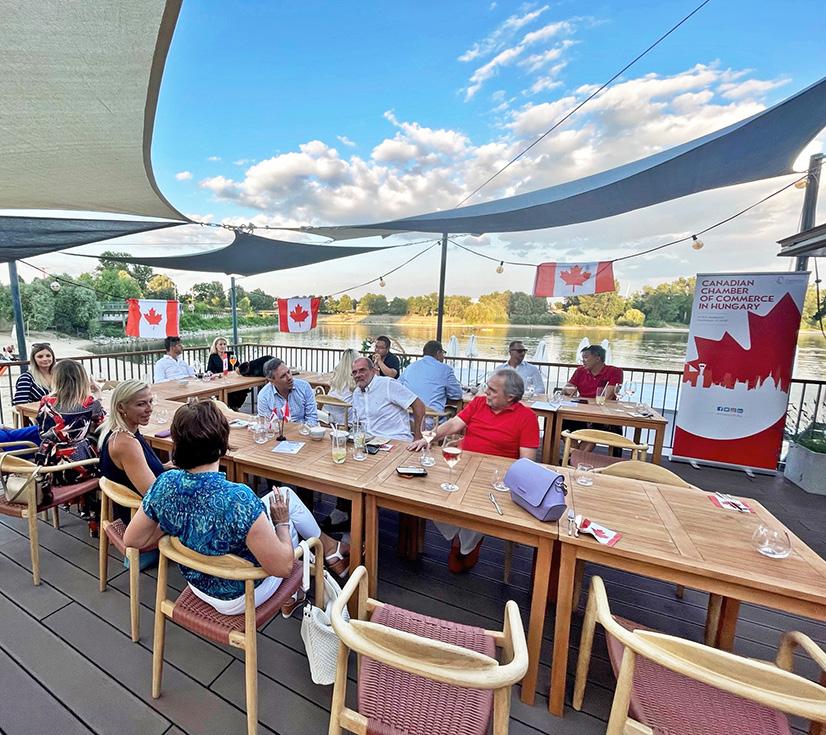
Attendees were treated to an array of offerings throughout the evening.
Mouthwatering burgers were matched with a carefully curated selection of beers and wines. The highlight of the culinary experience was the delightful donuts provided by The Box Donut.
More than just a celebration, this informal gathering provided an ideal platform to expand professional connections. Attendees could engage in lively conversations, fostering new relationships and strengthening existing ones.
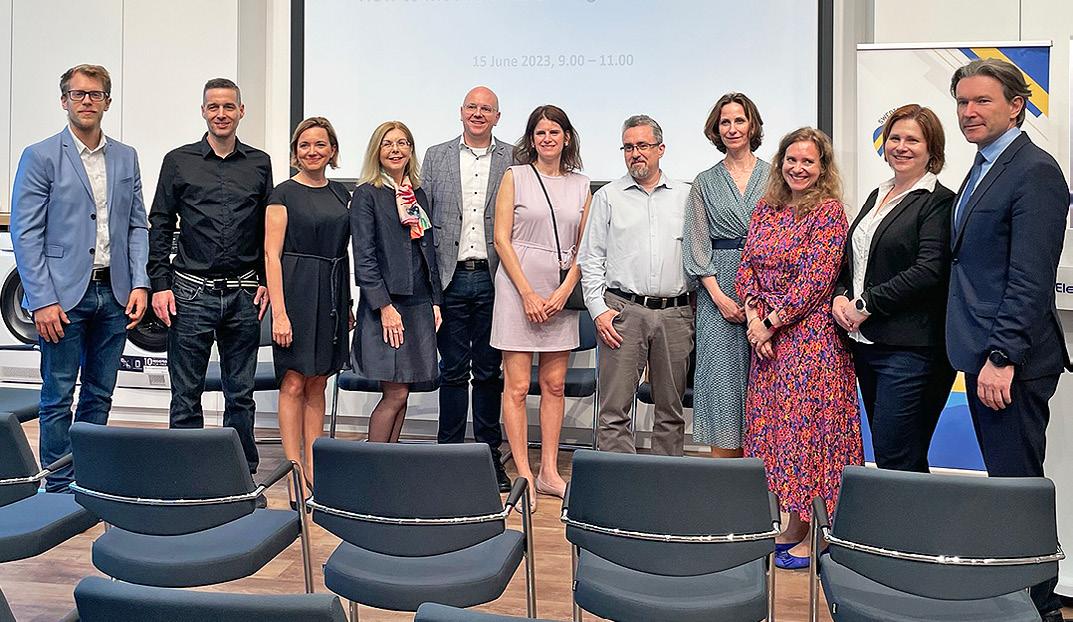
The relaxed atmosphere cultivated an environment conducive to meaningful interactions, creating a perfect blend of business and pleasure. As the evening unfolded, conversations flowed effortlessly, reflecting the strong sense of community that embodies the Canadian Chamber in Hungary. The CCCH Canada Day event proved once again to be a highlight on the social and professional calendars, showcasing the organization’s commitment to fostering networking opportunities.
Belgian Business Club (Belgabiz)
At the invitation of Walter Holzhammer, representative of the Port of Antwerp-Bruges, and Wim Dillen, international development manager, Belgabiz participated in the company’s Midsummer Night networking event in Budapest on June 21. This port in the heart of Europe is crucial in connecting with the Central European hinterland. By joining forces in 2022, the platforms of Antwerp and Zeebrugge strengthened their position within the global supply chain. The event offered a perfect opportunity to network with international businesspeople from the logistics sector. The Ambassador of Belgium, Siegfried Peinen, also attended the evening. The plans presented promise to build relations even “stronger and smarter” in the coming years.
This regular section of the Budapest Business Journal features news and events from various international business chambers. For further information and to register for specific events, visit the website of the organizing chamber. If you have information for inclusion on this page, send an email in English to Annamária Bálint at annamaria.balint@bbj.hu
French-Hungarian Chamber of Commerce and Industry (CCIFH)
With the sponsorship of Pure Air Ltd. and Decathlon, the CCIFH organized its first French Chamber Open Tennis Tournament on the court of the MLTC Tennis Club in Mátyásföld on Saturday, June 17. Players came from more than 12 different member companies to play together in singles and doubles (with individuals paired via a random draw) matches. The day provided the perfect occasion to play as much tennis as possible, network and establish new business relations. The chamber intends to organize the event again and asks interested parties to contact it directly.

German-Hungarian Chamber of Commerce (DUIHK)
The summer break is only just beginning, but at some point, we know we will have to get back to work. To sweeten this moment, the DUIHK cordially invites members and friends to a Back-to-Work Cocktail event in the beautiful historic garden of Haris Park, with delicious cocktails and live music.

• When: Thursday, August 31, 6:30-10 p.m. • Where: Haris Park, Marczibányi tér 6, 1022 Budapest • Further information and registration: www.duihk.hu
Dutcham, Swisscham, Swedish Chamber team up
How do you motivate the members of different generations at the workplace? How do you attract, retain and engage them? Do their attitudes and preferences resonate with our (un)conscious biases? These were the main topics of the recent Dutcham CEO/HR meet-up co-organized with the Swedish Chamber of Commerce in Hungary and the Swiss-Hungarian Chamber of Commerce. Electrolux Group provided the venue, with the speakers and panelists being: Erika Némethi, Gergely Pomázi, Balázs Feitel Annamaria Foldes, Zoltán Könczöl, Zoltan Csorogi, Kinga Máté, and Botond Mihályi.
American Chamber of Commerce in Hungary (AmCham)
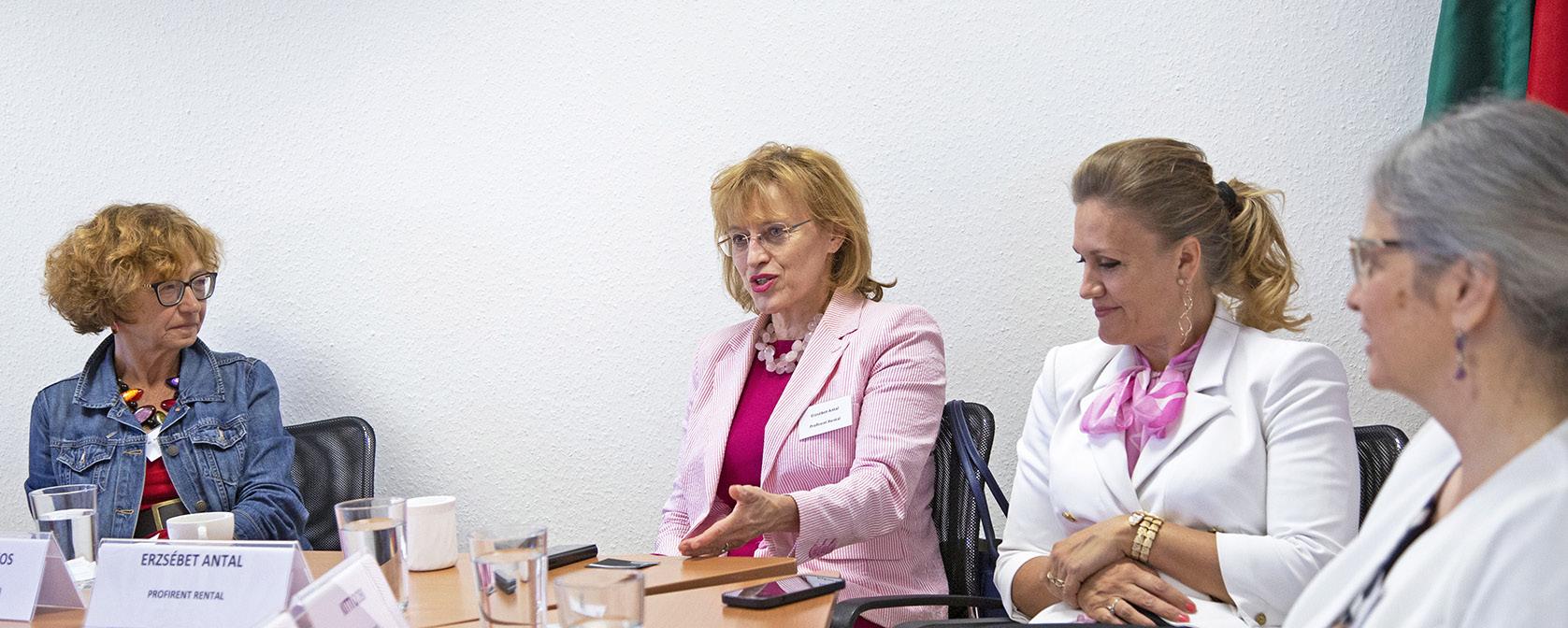
On June 12, AmCham Hungary’s HR Committee hosted an open meeting on embracing experience and overcoming ageism in the workplace. The event featured highly accomplished professionals who are actively researching and trying to draw attention to ageist practices and their negative impact on society and businesses. During a roundtable discussion, panelists Kitti Dobi (MBH Bank Nyrt), Katalin Tardos (International Business School), Erzsébet Antal (Profirent Rental) and
Andrea Juhos (Lee Hecht Harrison) talked about the most relevant skills and personality traits of the 50+ age group that have proved to be competitive or even irreplaceable in the job market. Panelists also highlighted the significance of life-long learning, thus developing resilience and becoming more flexible towards the new demands of not only the labor market but the challenges of life, as well as corporate programs targeting several generations to mitigate the effects of ageism.
4 Socialite | 31 www.bbj.hu Budapest Business Journal | June 30 – July 13, 2023
























OUR RENTAL MODEL HAS BEEN SPECIALLY DESIGNED FOR OUR HORECA PARTNERS TO ENABLE THEM TO UPGRADE THEIR EXISTING COFFEE MACHINE TO A HIGHER-END MACHINE ON FAVORABLE TERMS, WITHOUT REQUIRING A MANDATORY CAPSULE COMMITMENT. FOR MORE DETAILS VISIT OUR WEBSITE! WWW.NESPRESSO-PRO.HU Phone: +36 80 08 01 08 (call free of charge) E-mail: nespresso.hu@lyreco.hu LEARN MORE ABOUT OUR COFFEE MACHINE RENTAL MODEL





























 ROBIN MARSHALL
ROBIN MARSHALL









































































